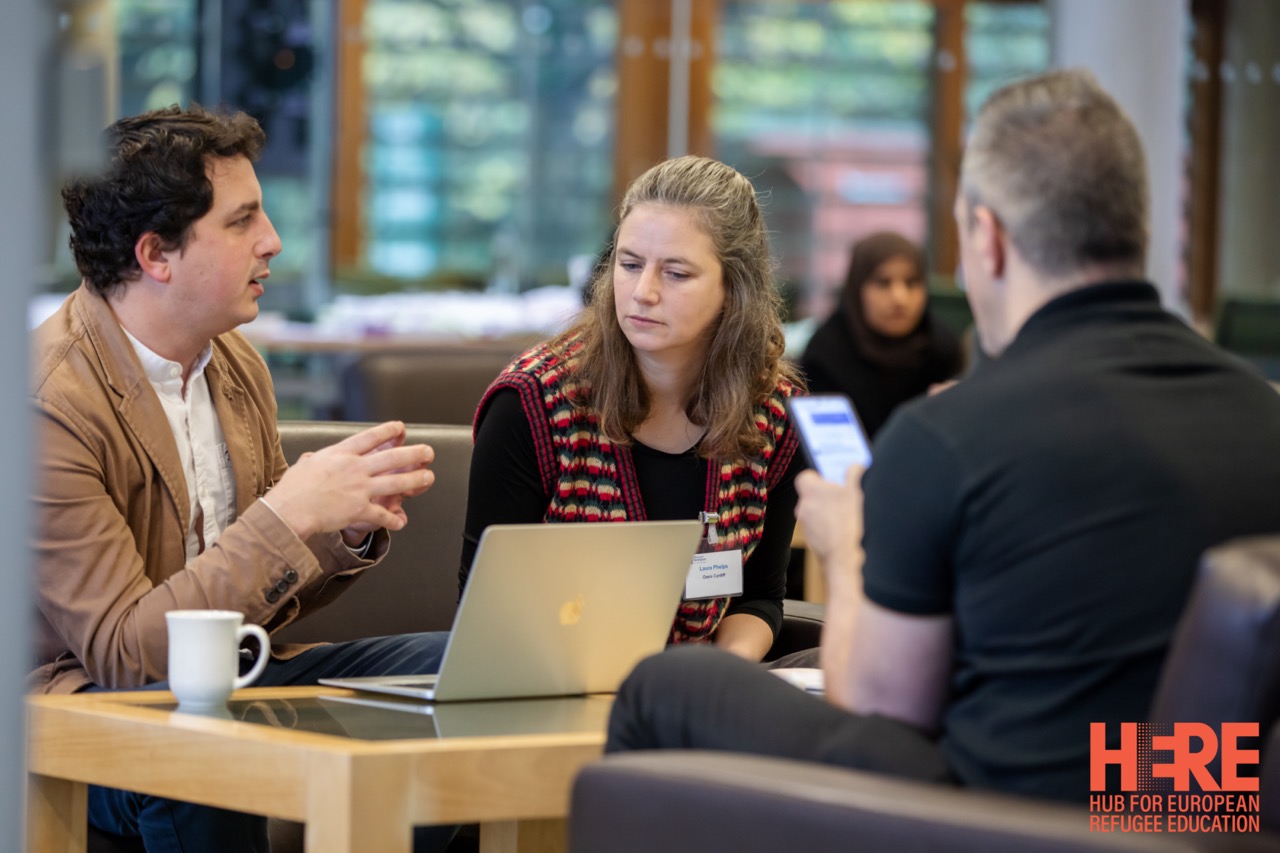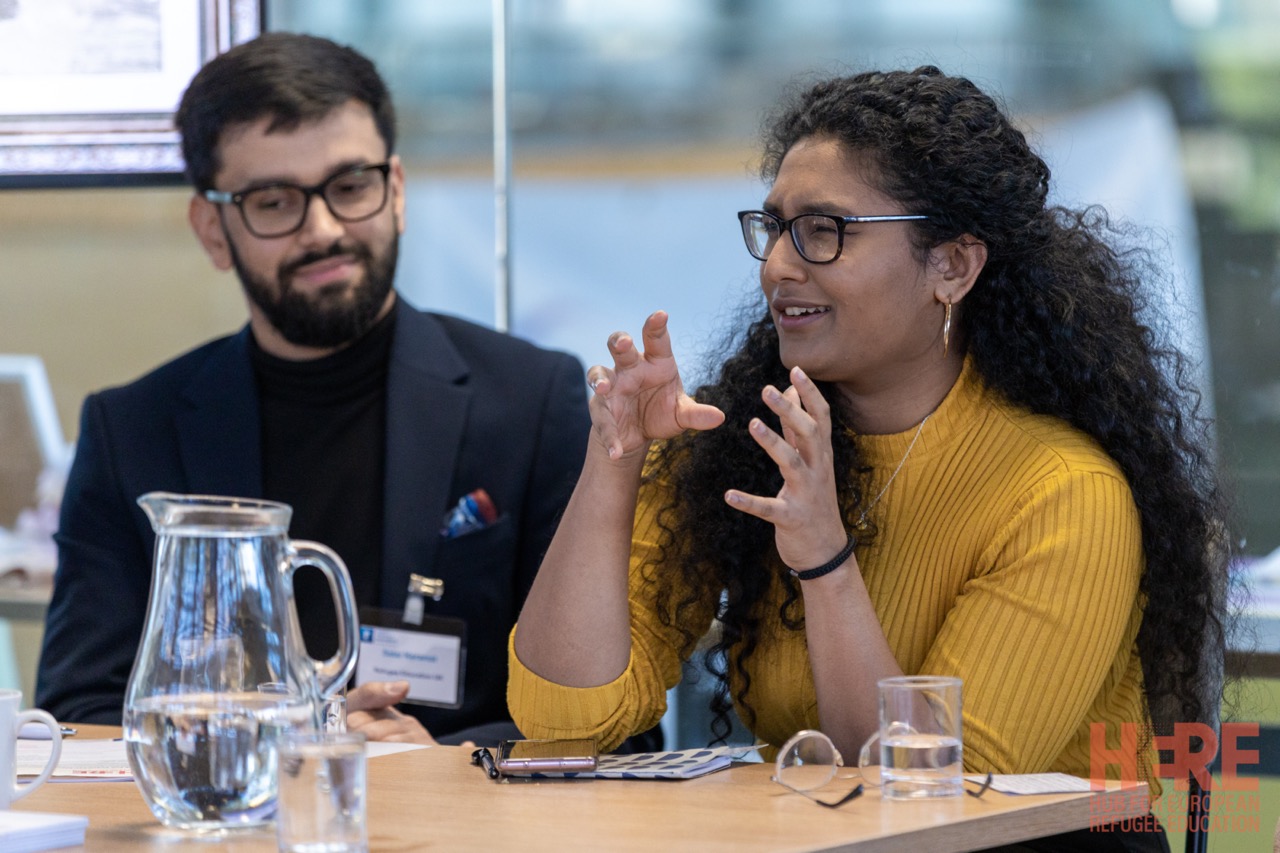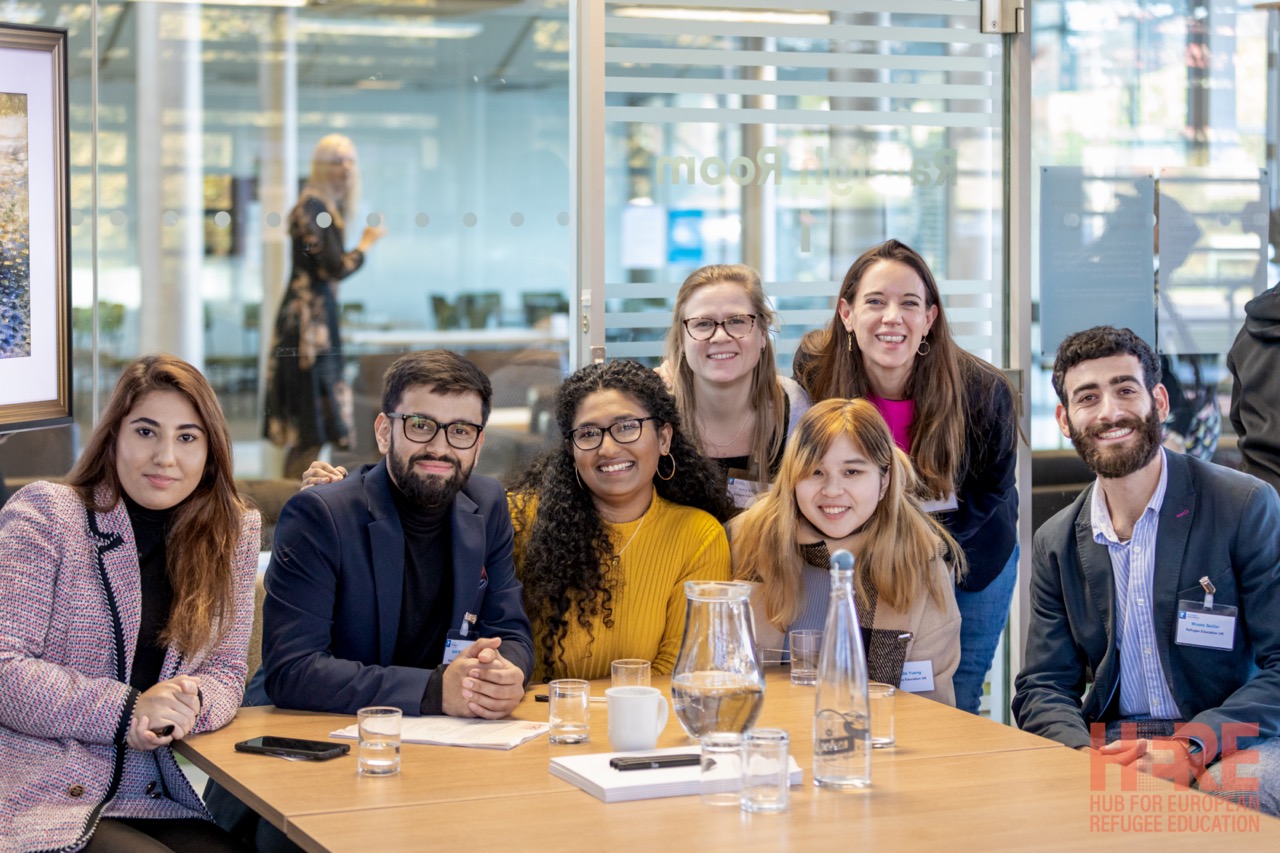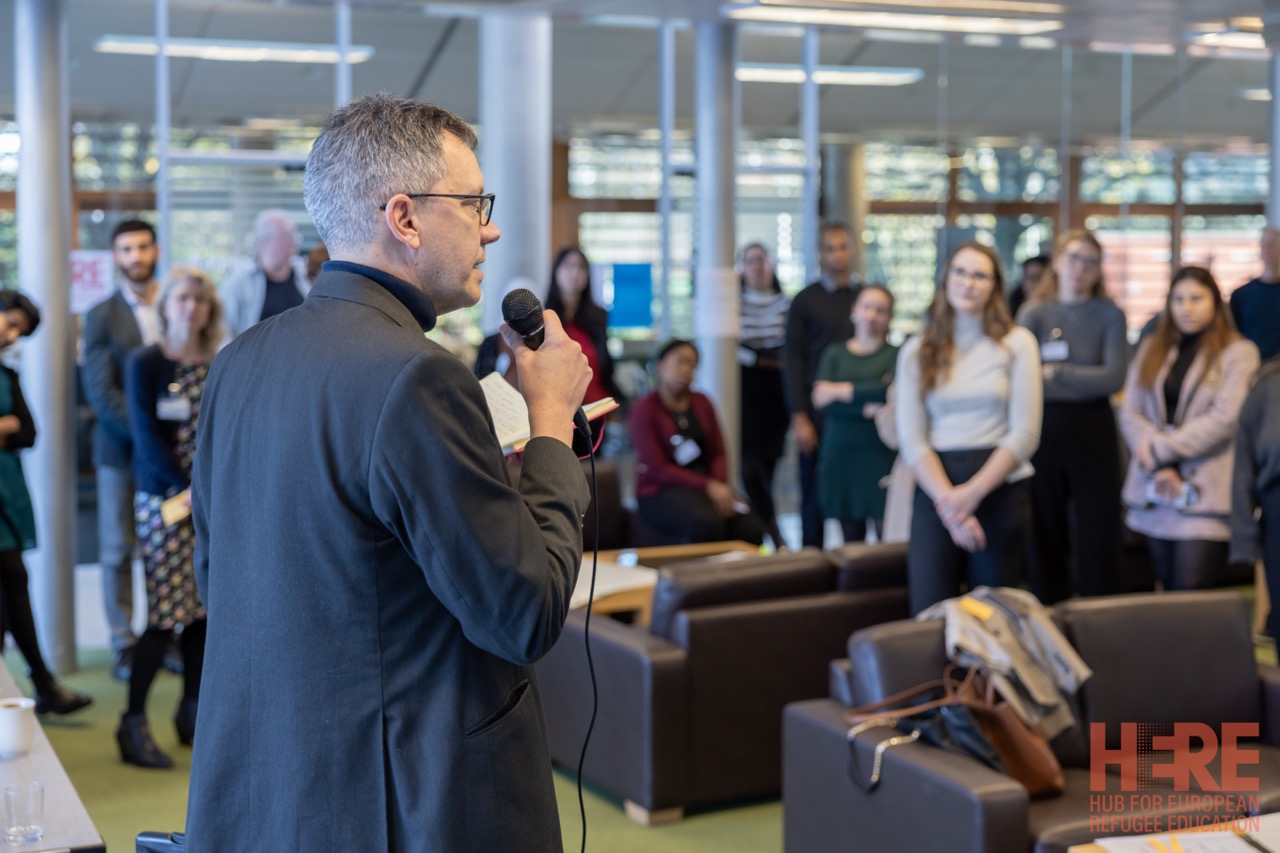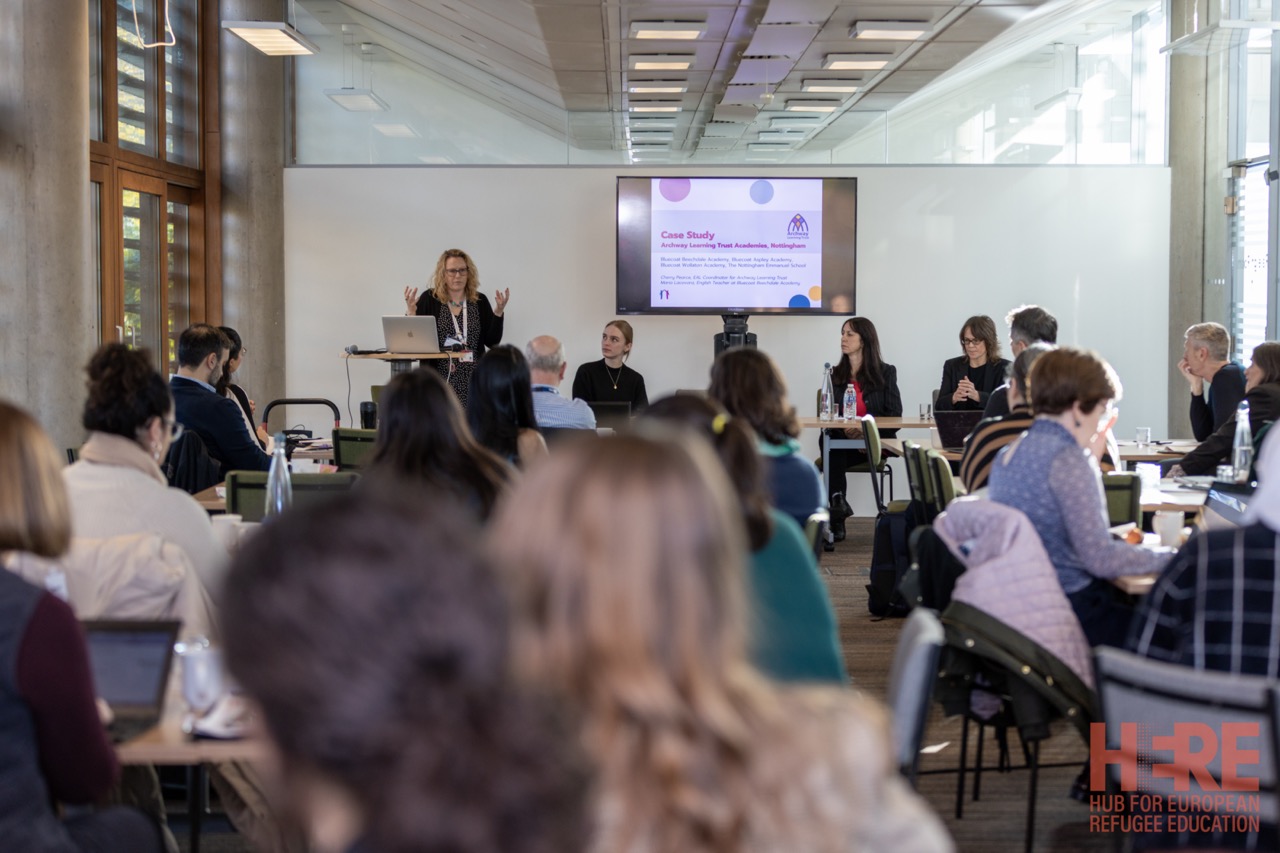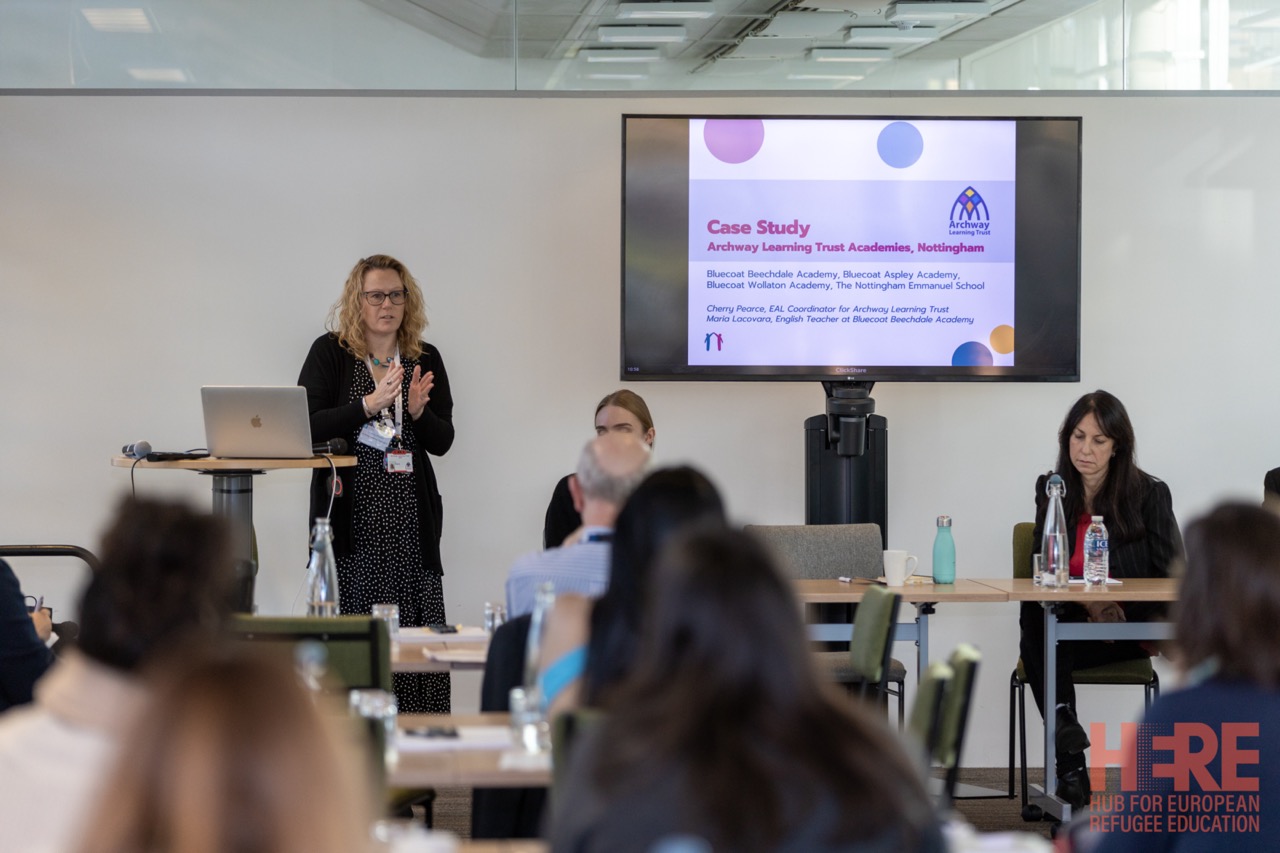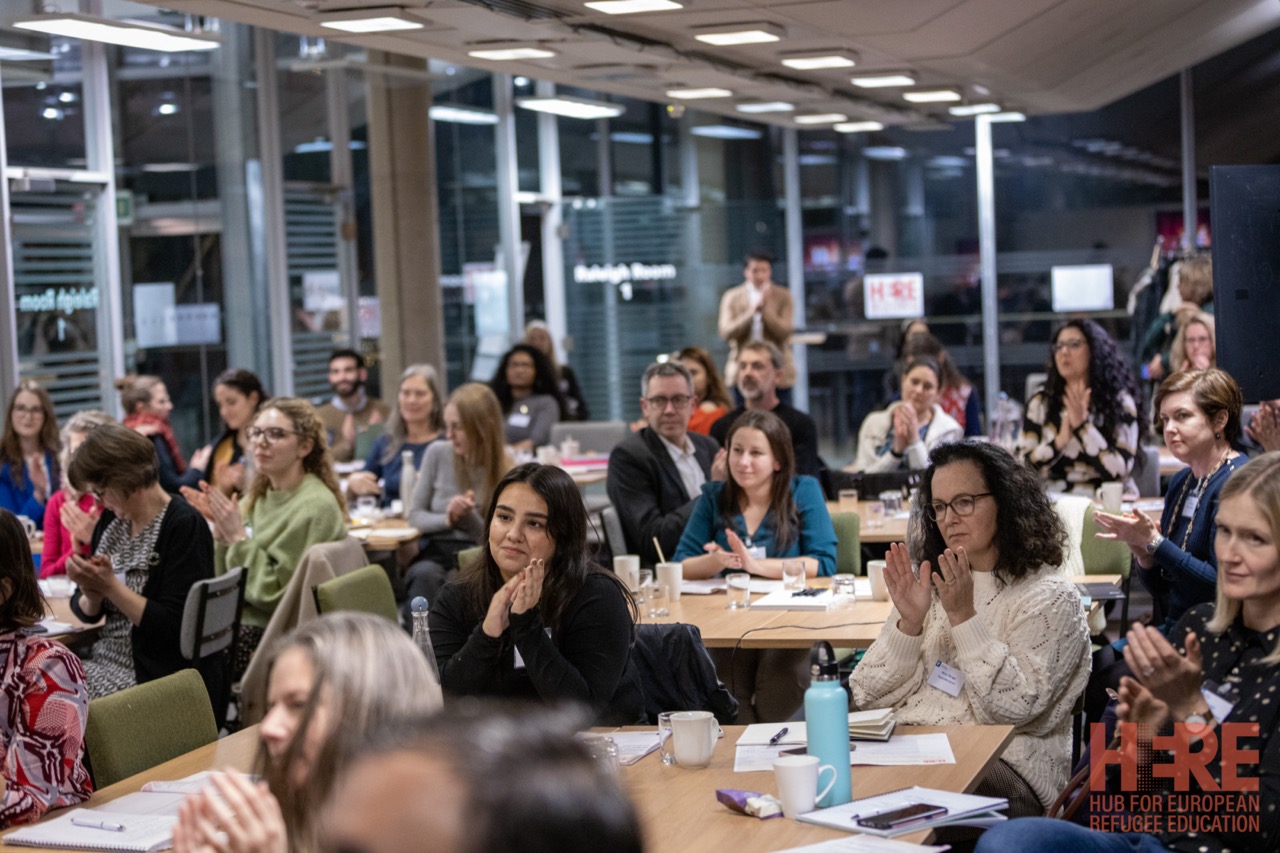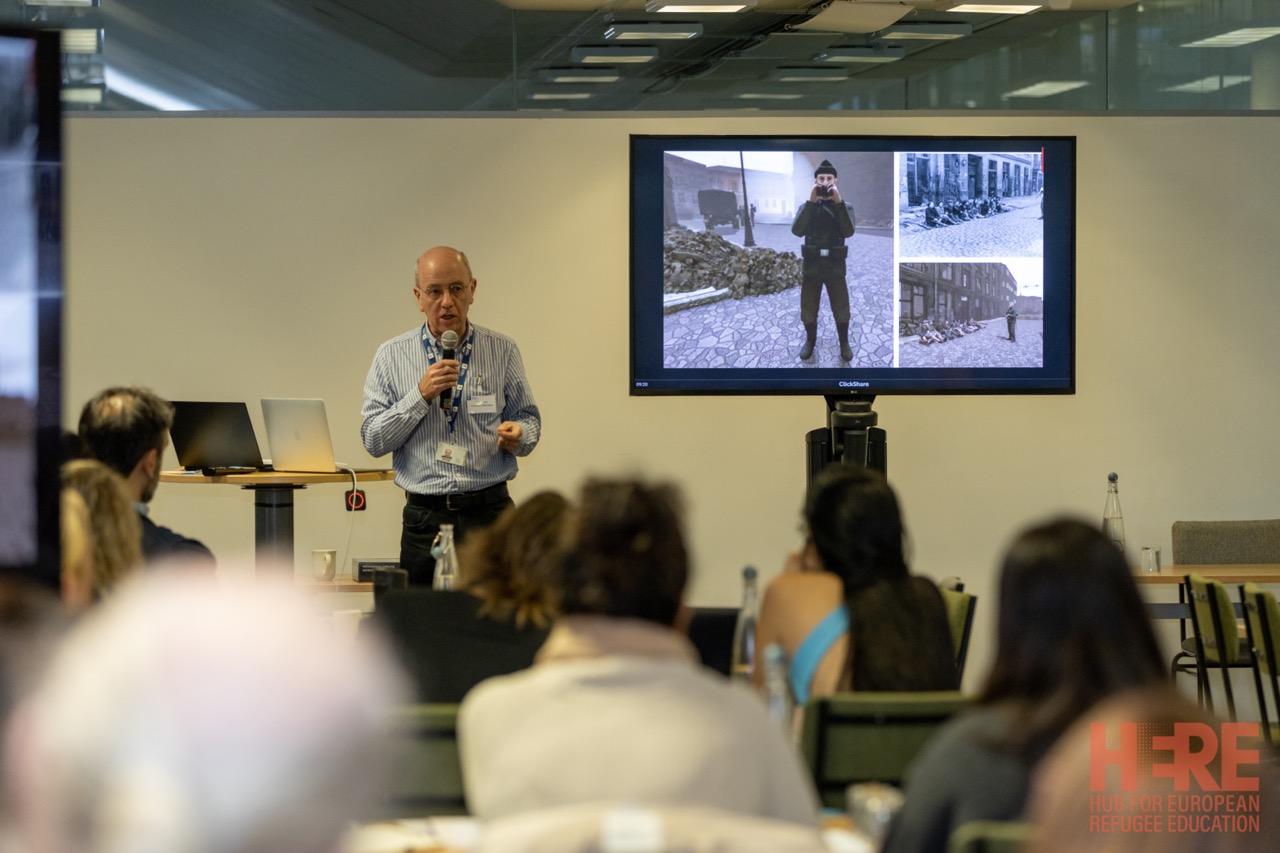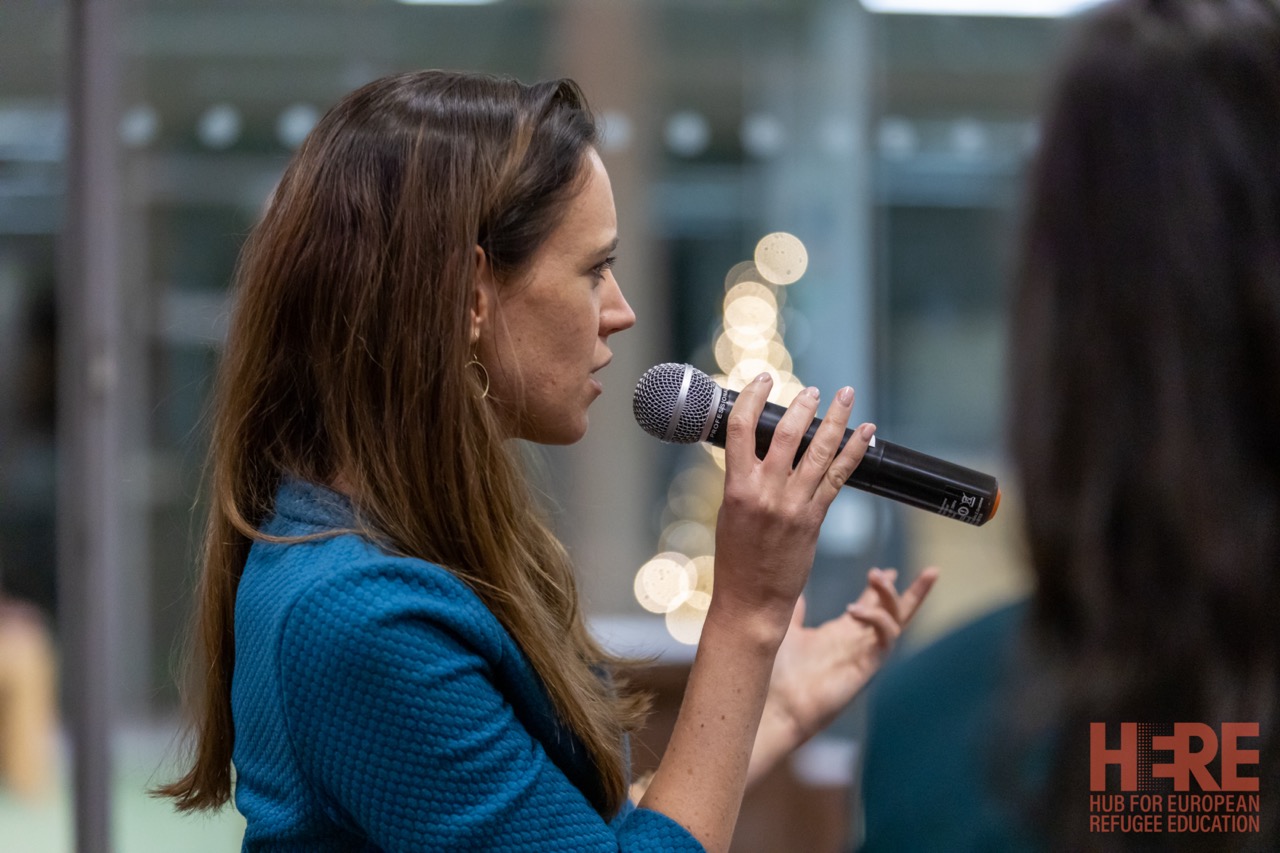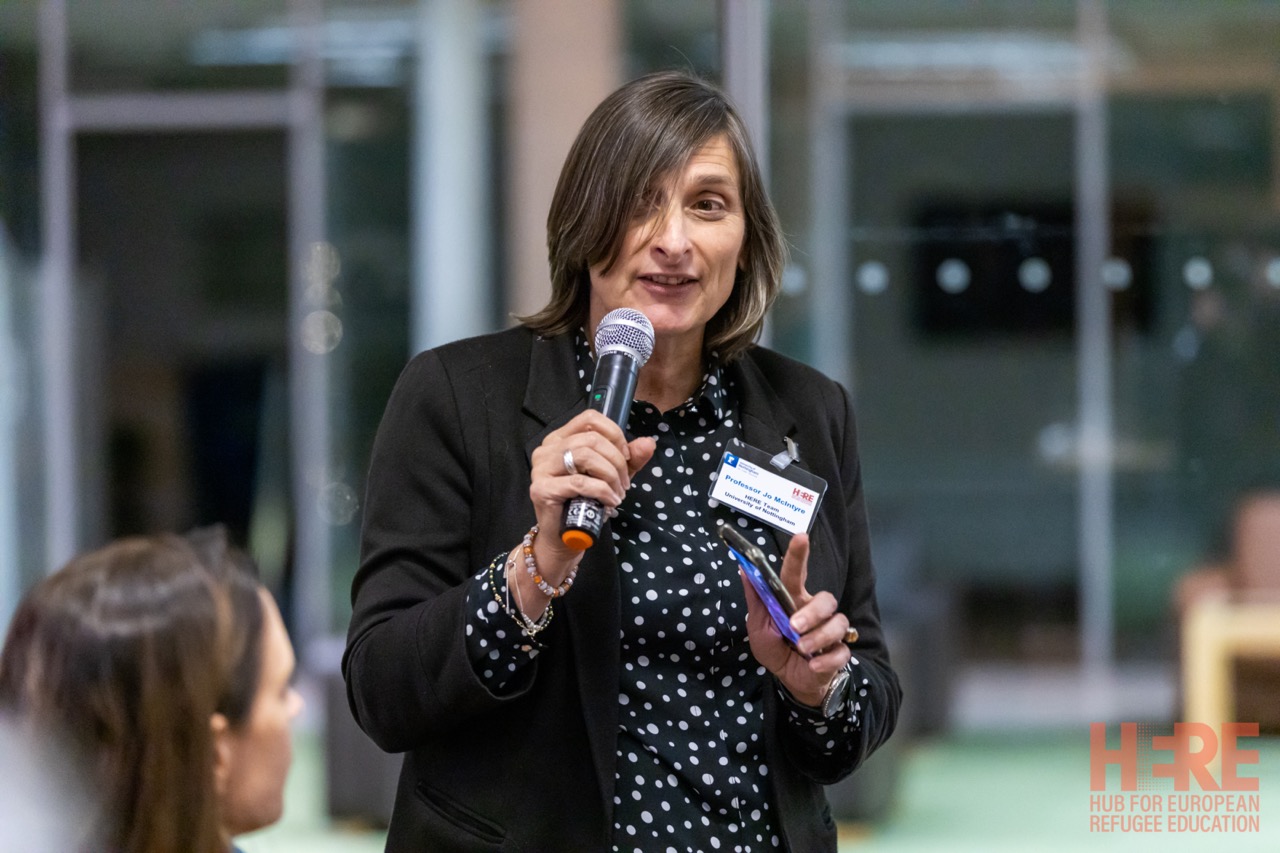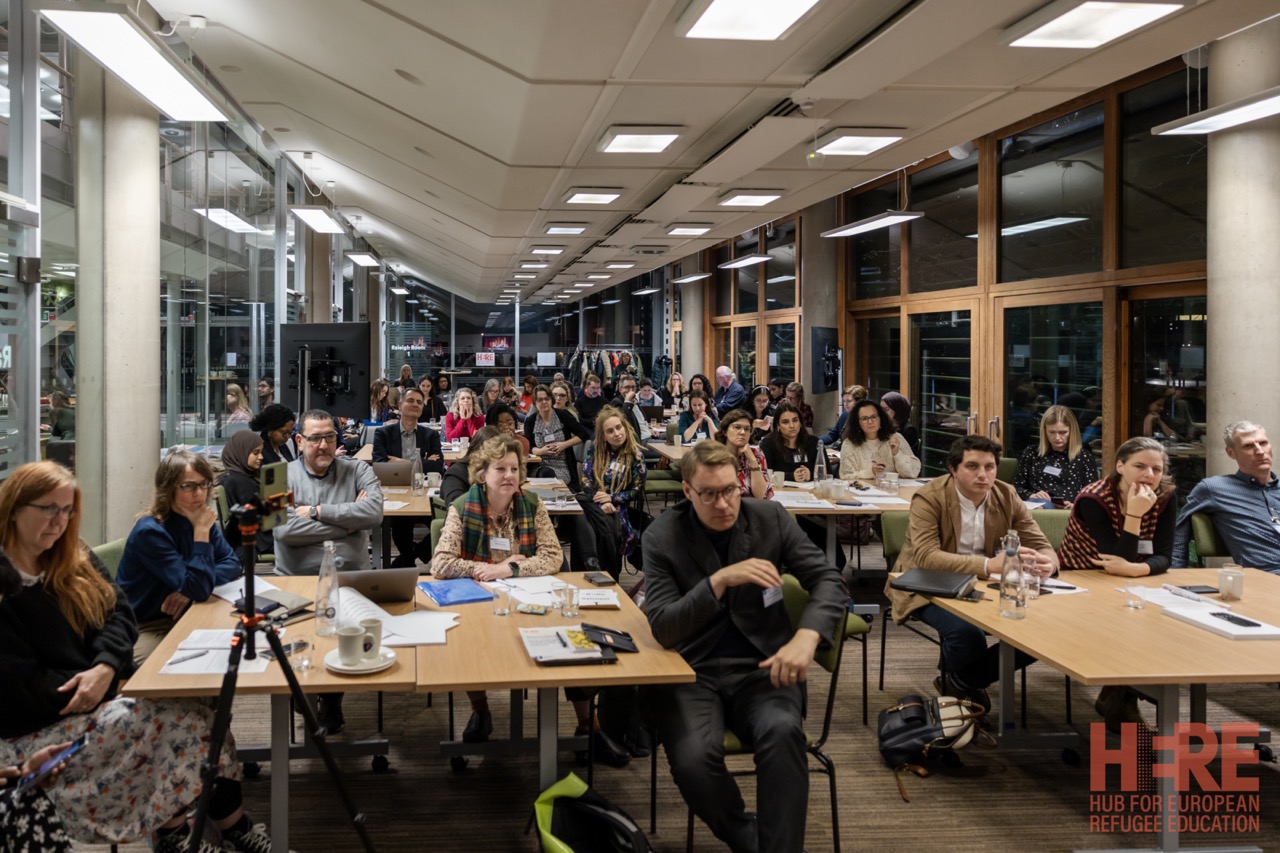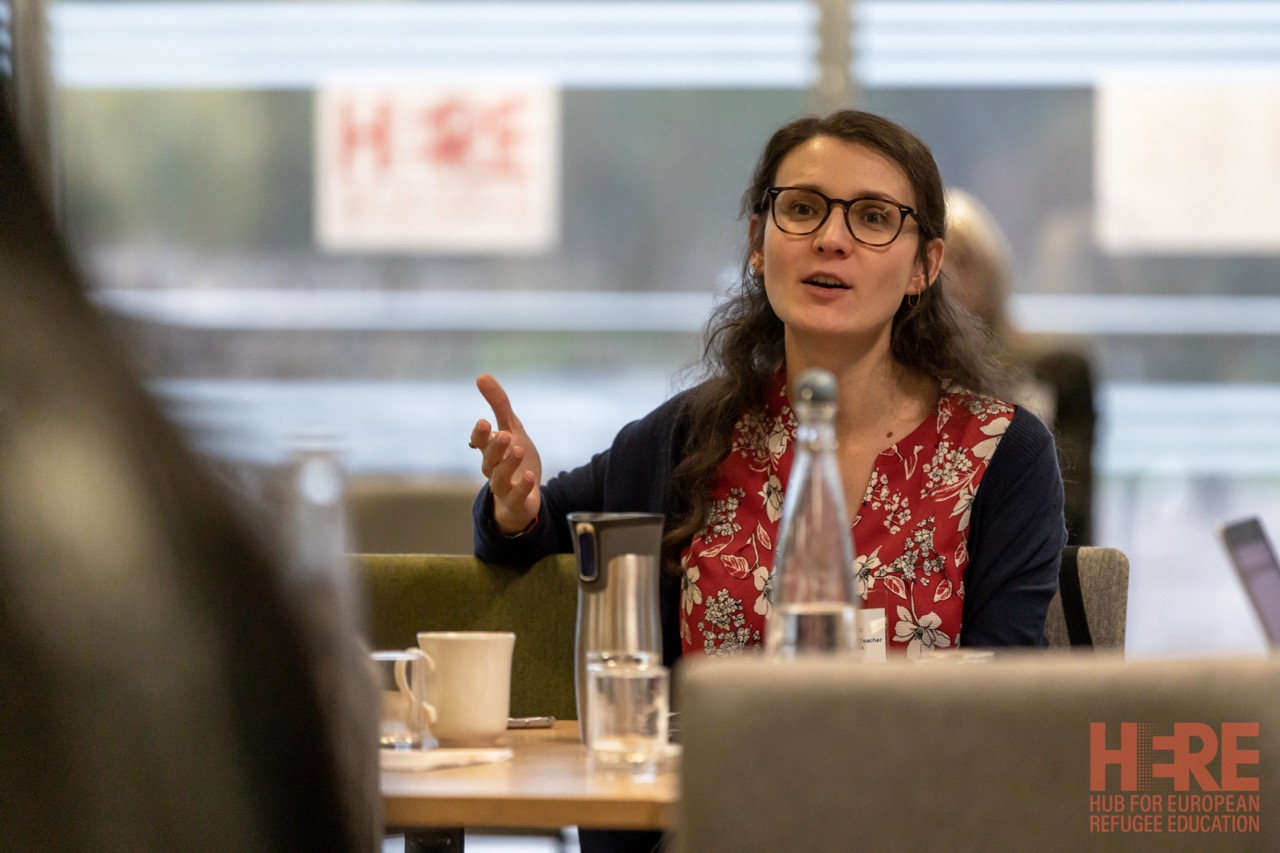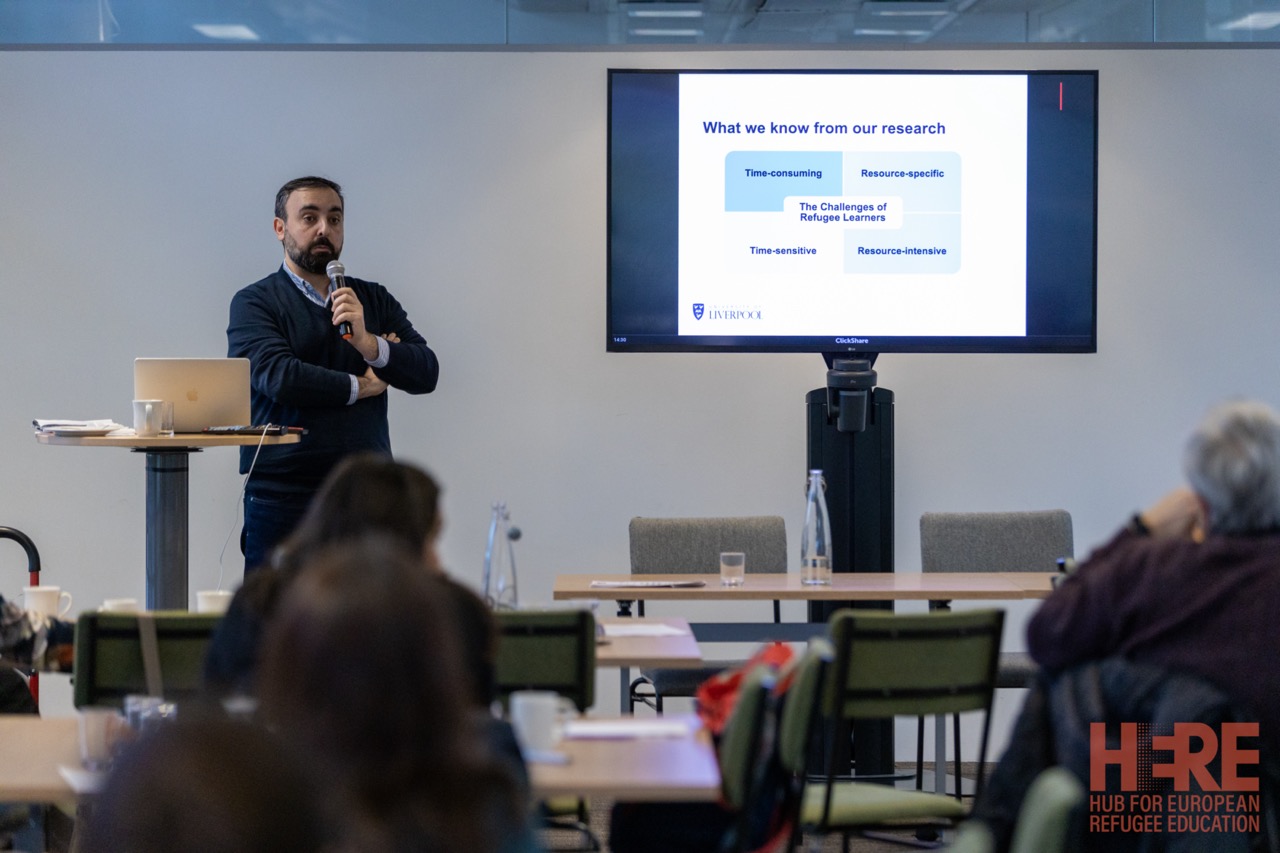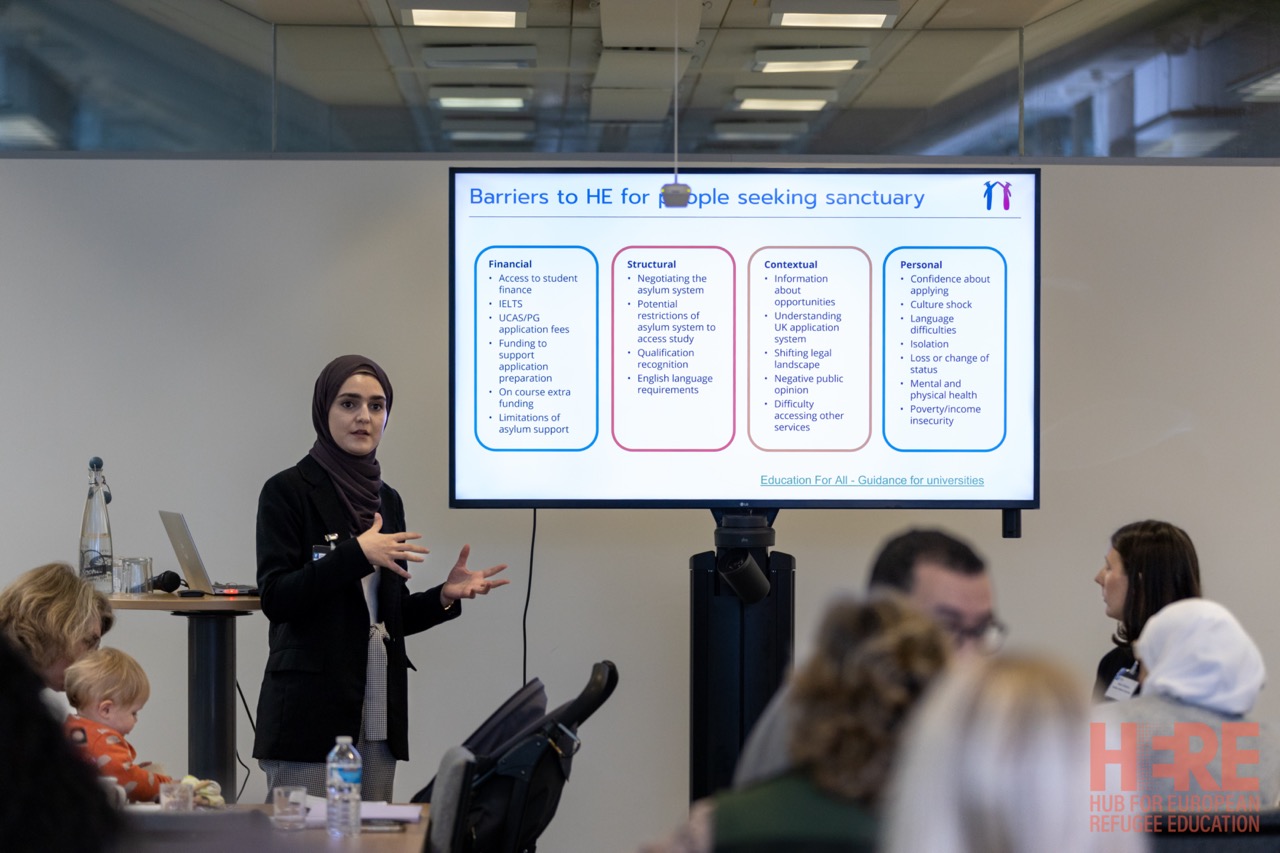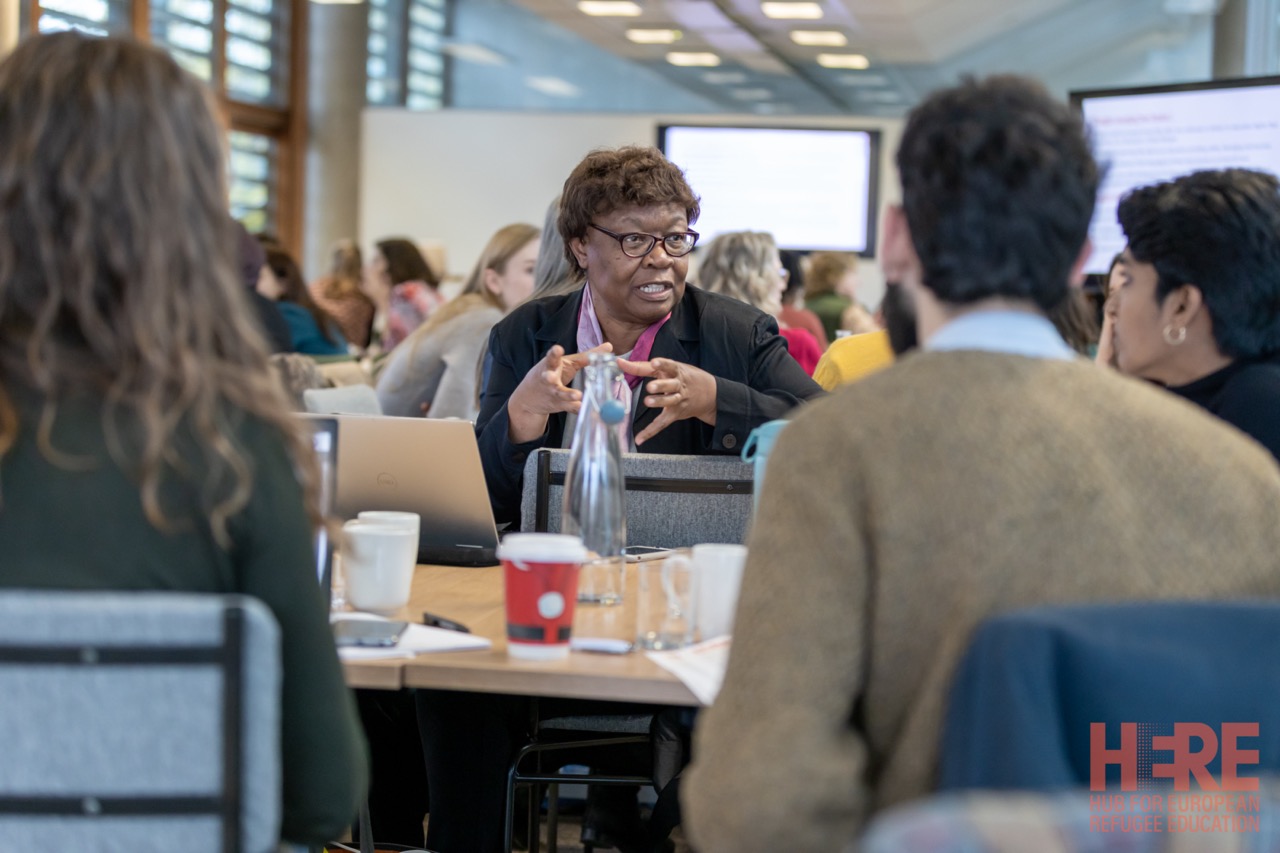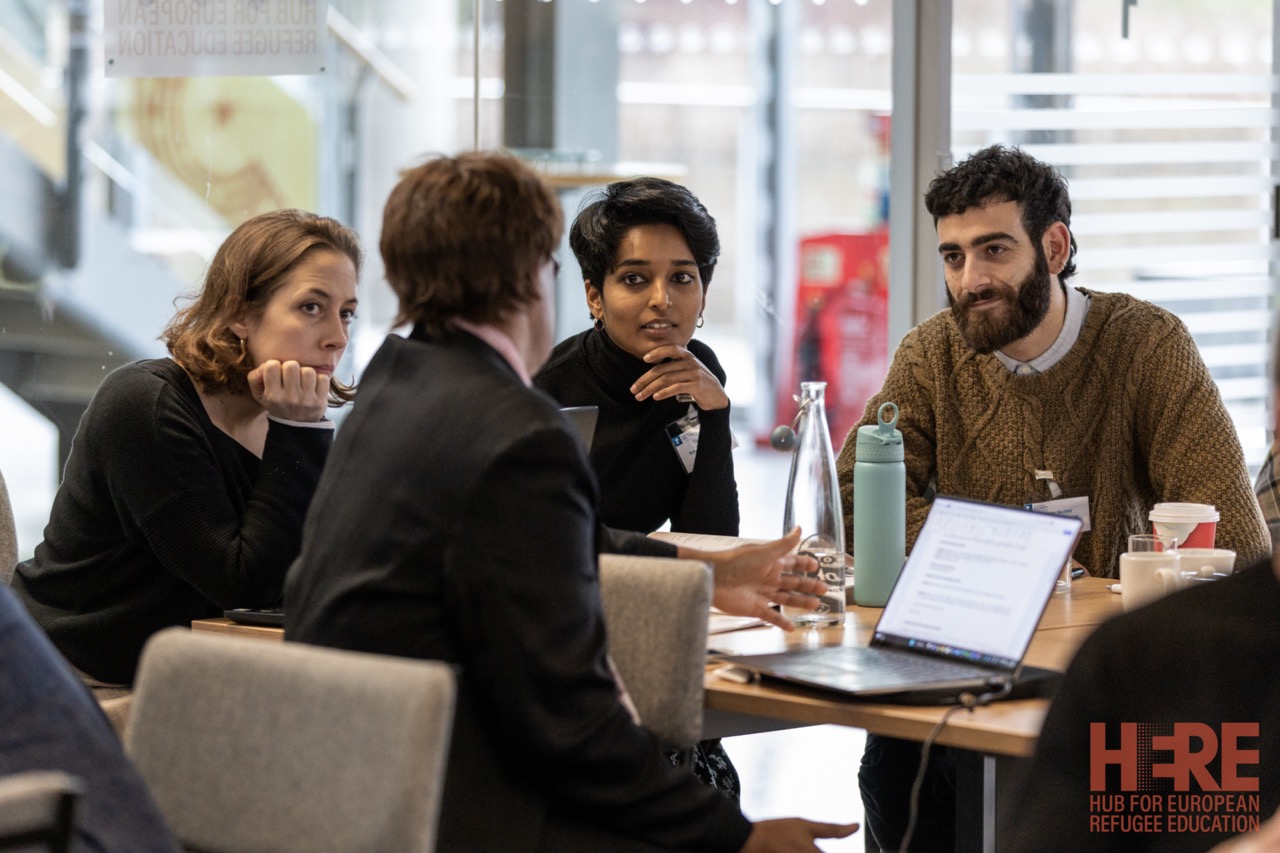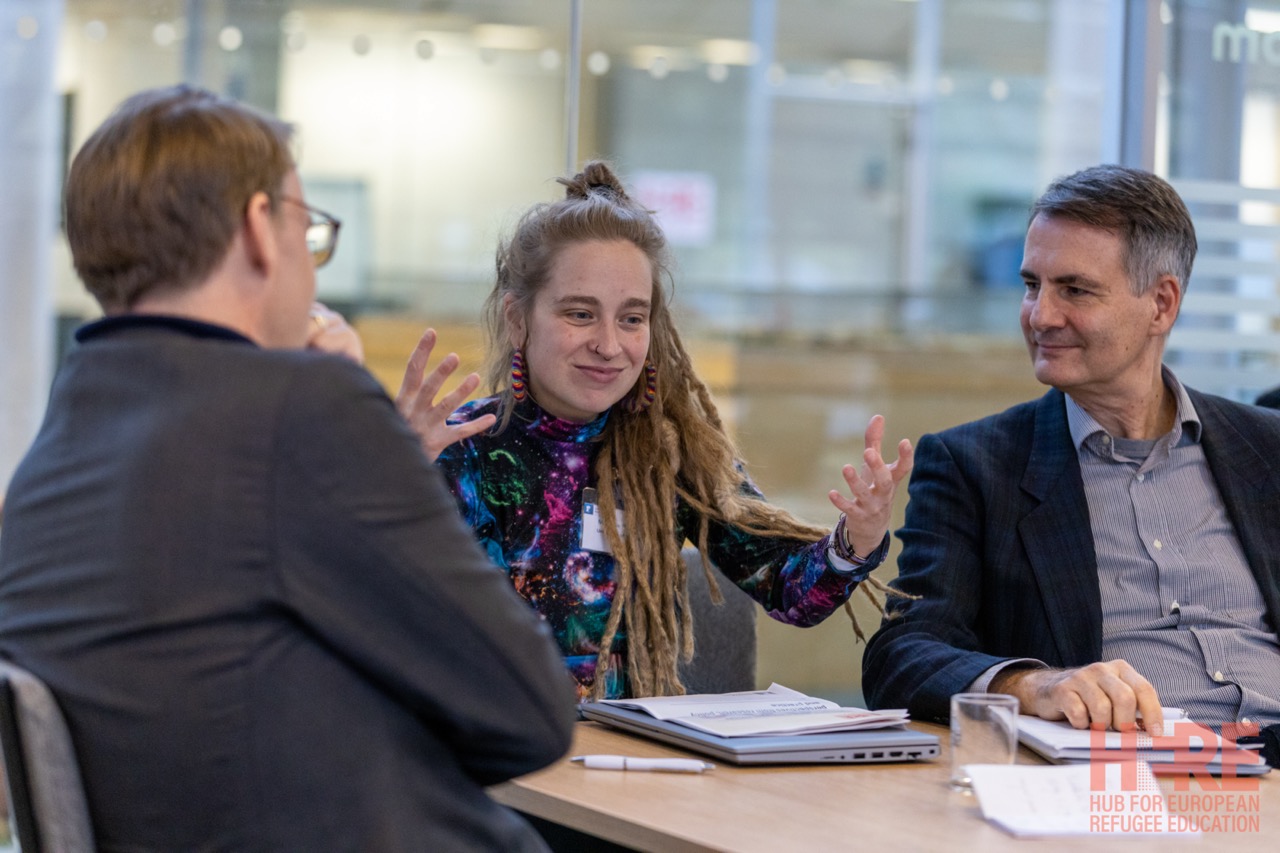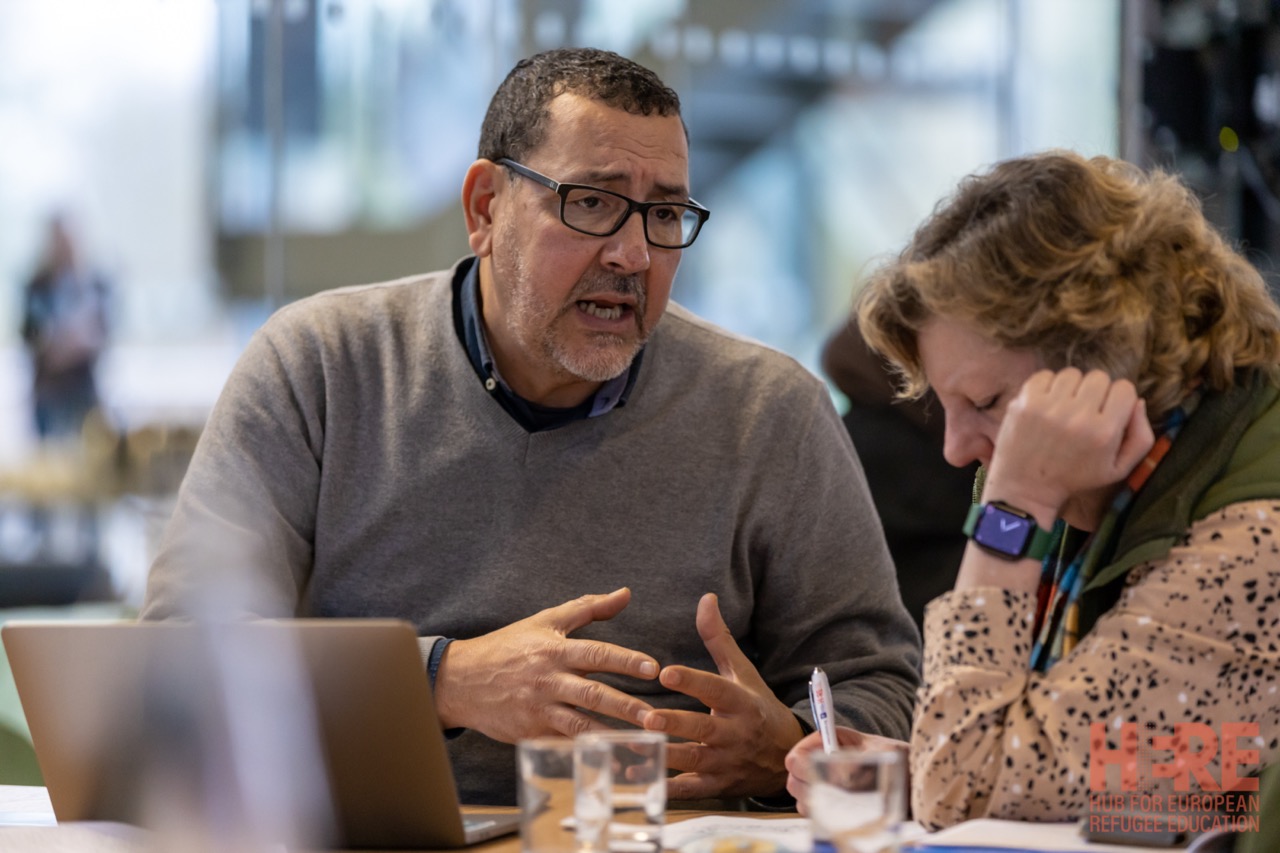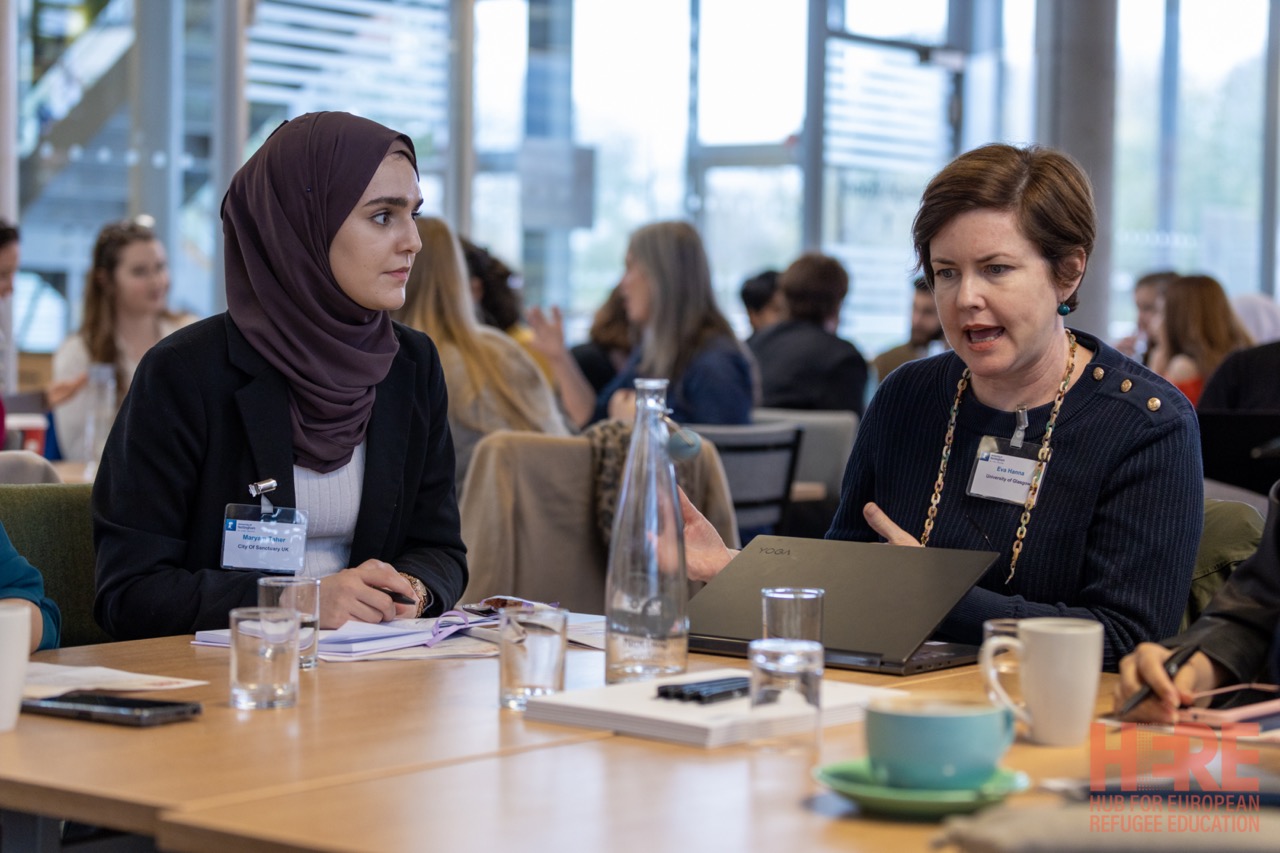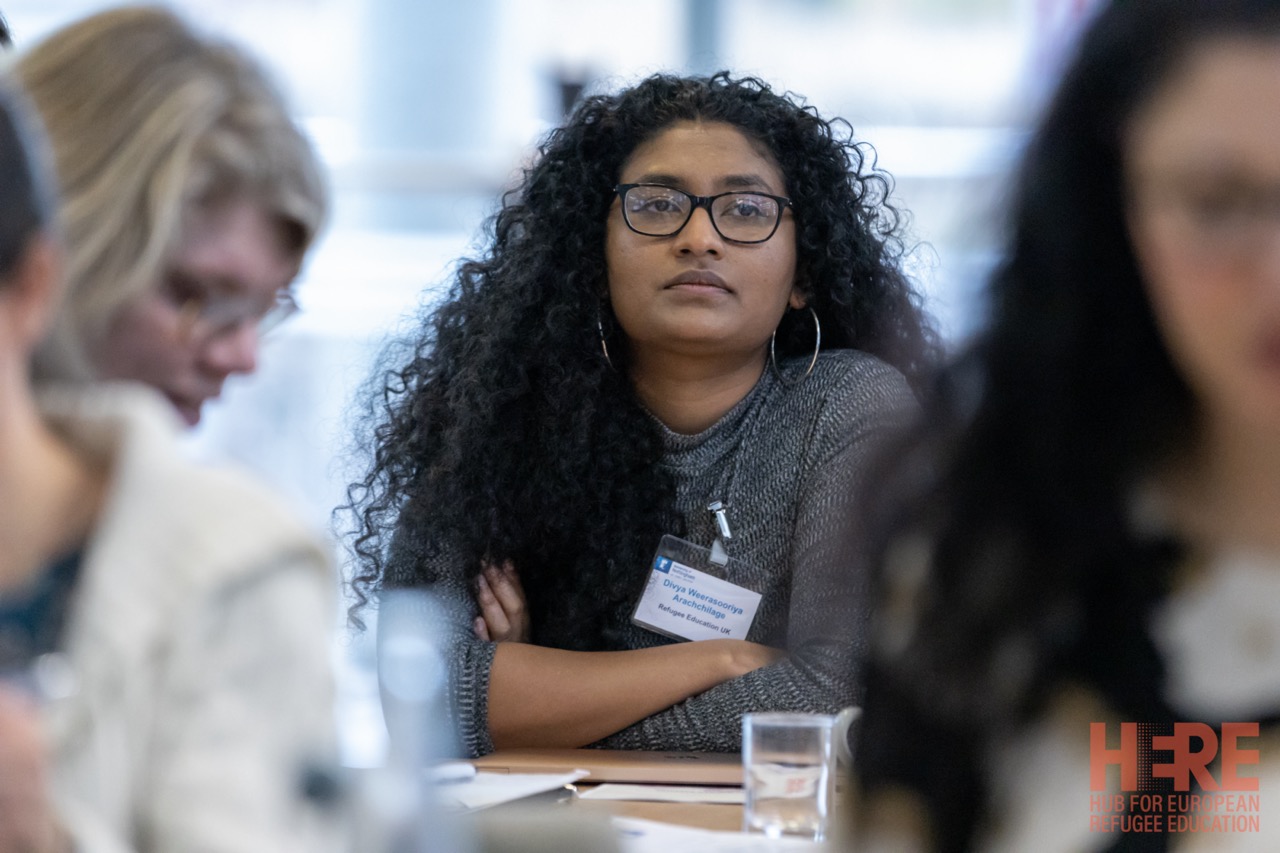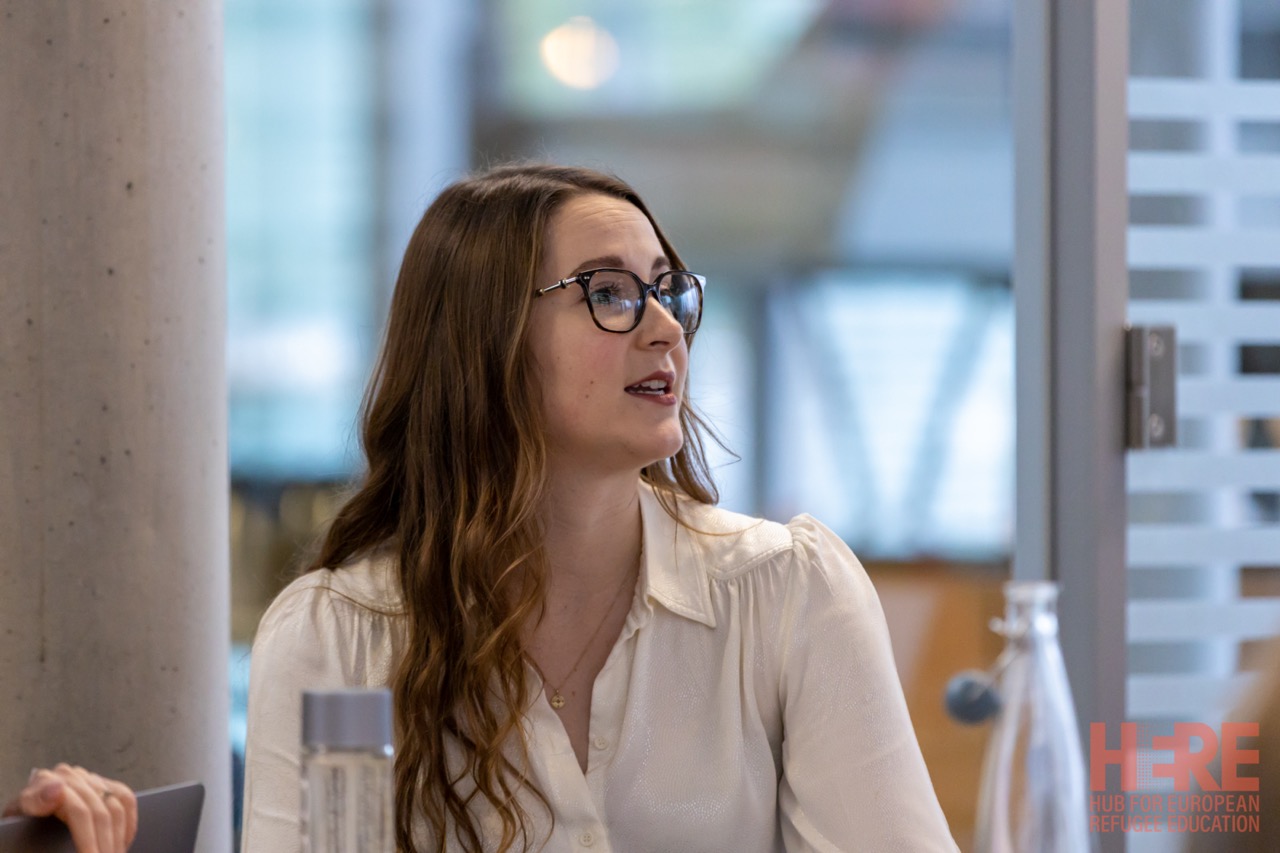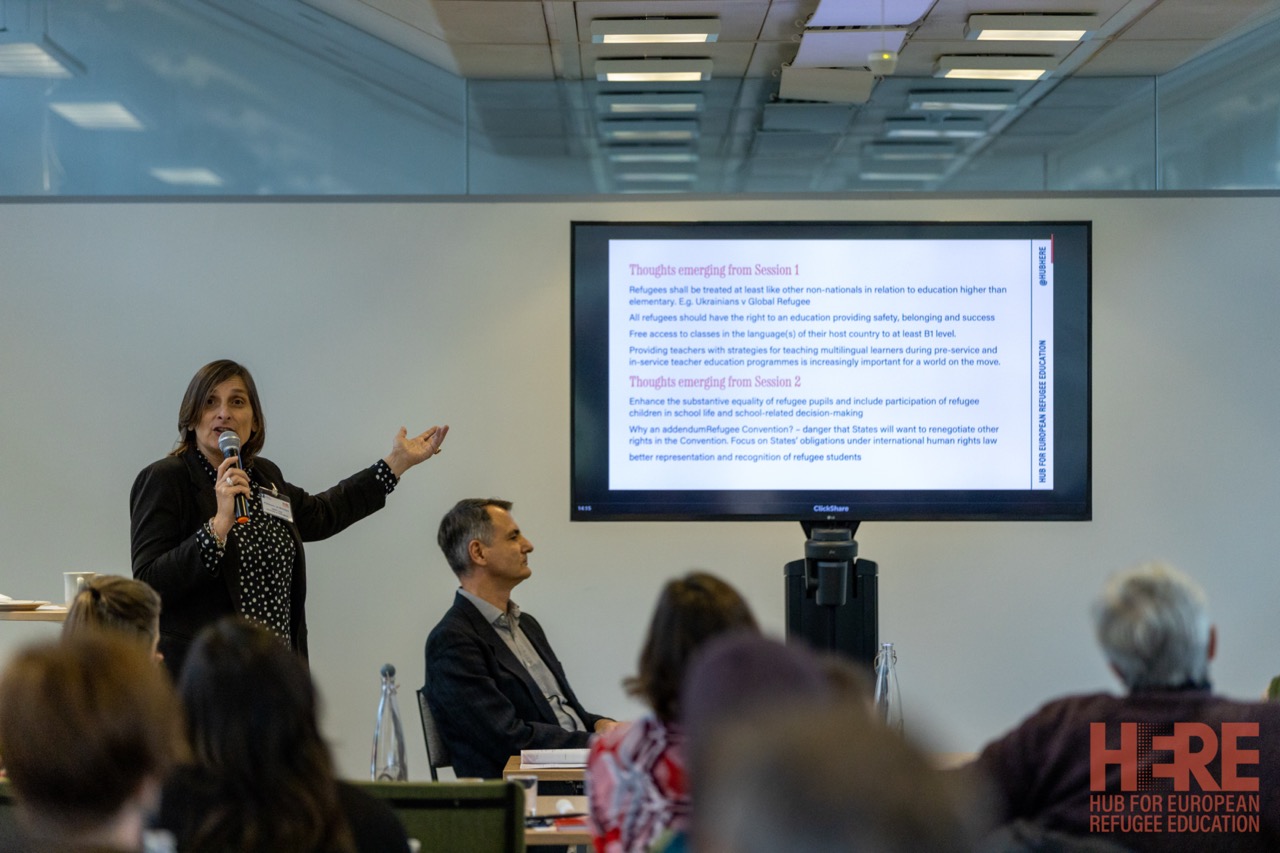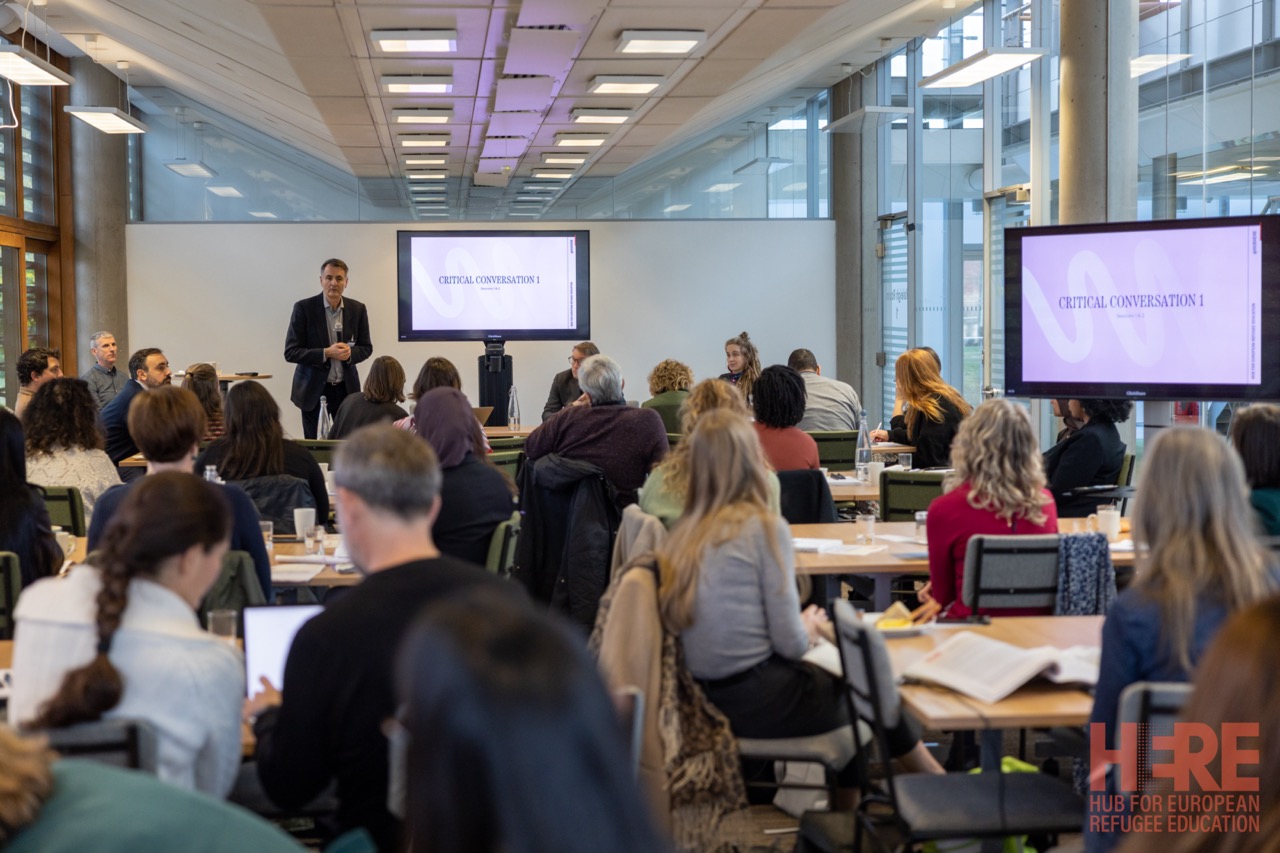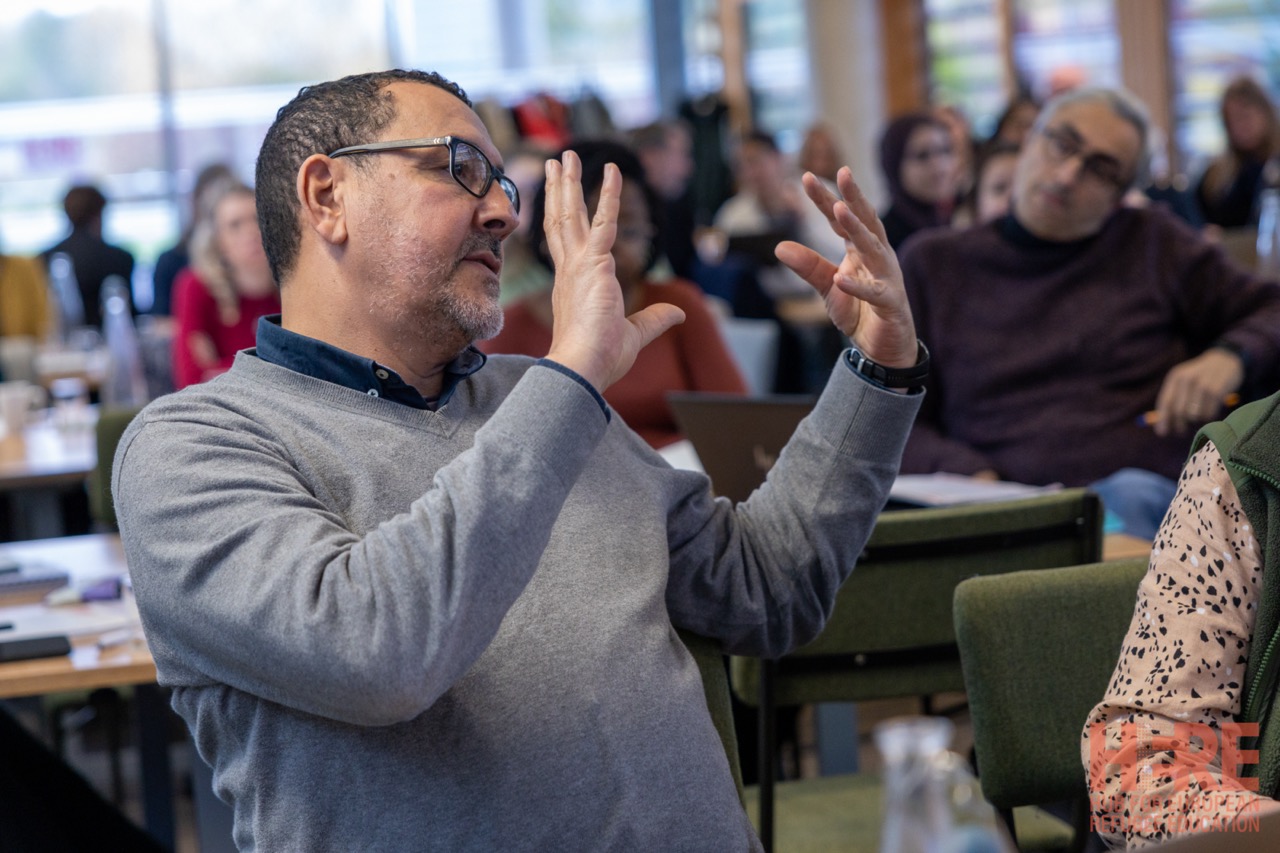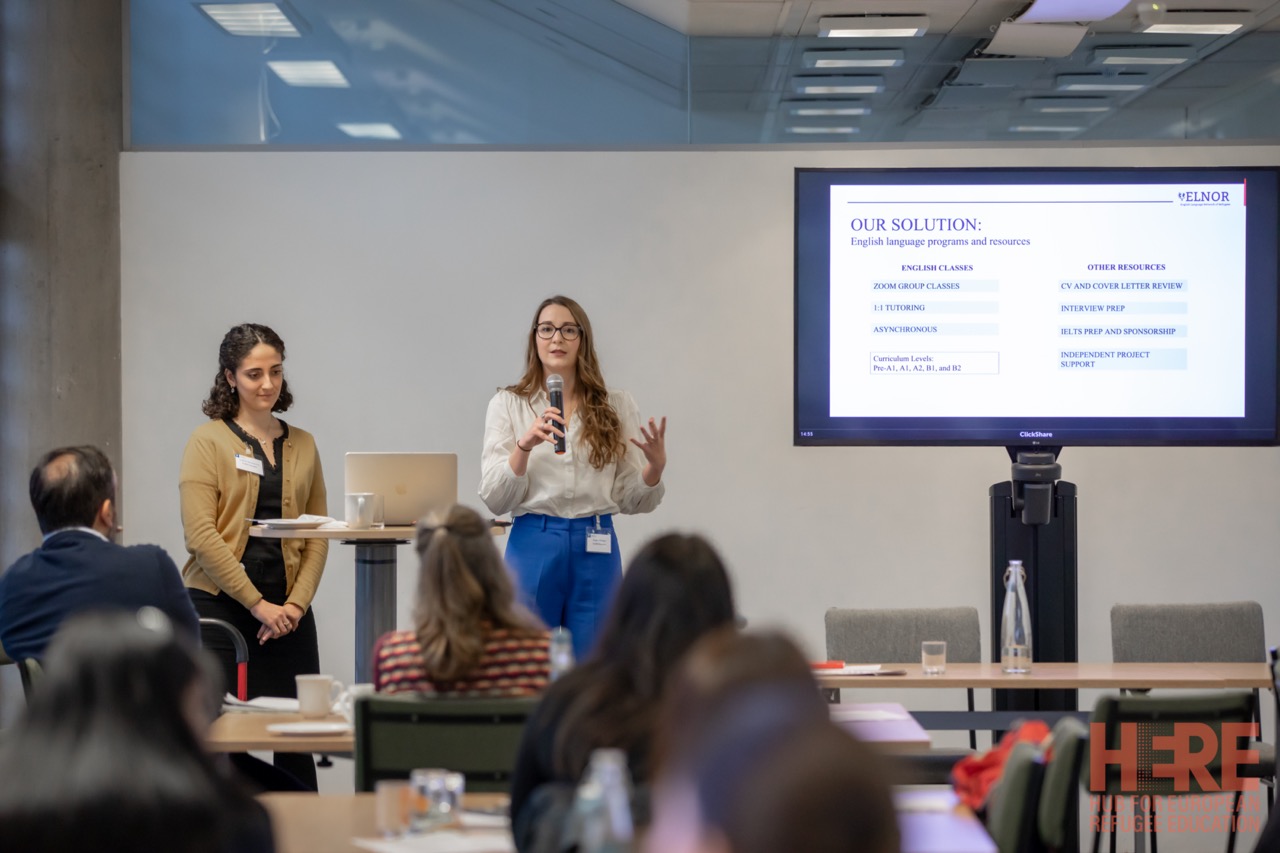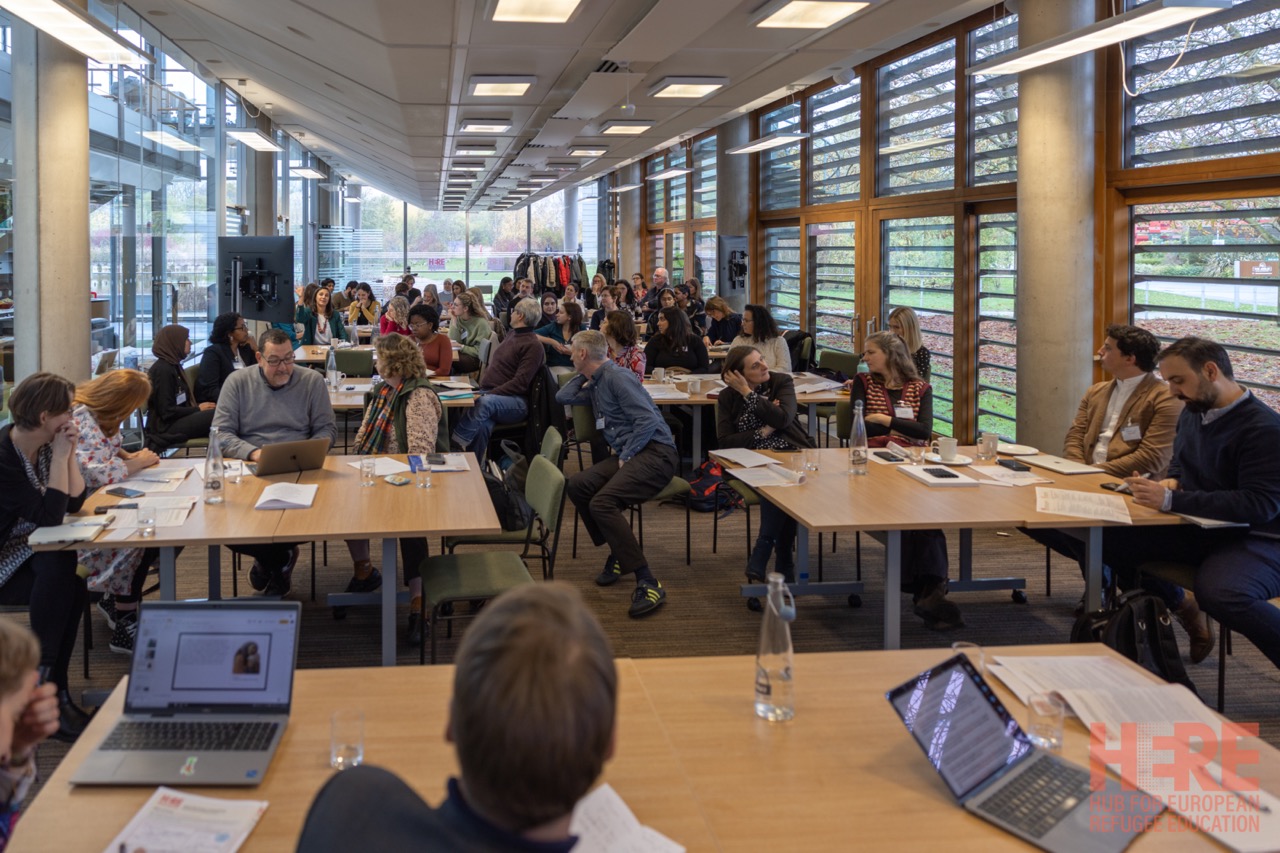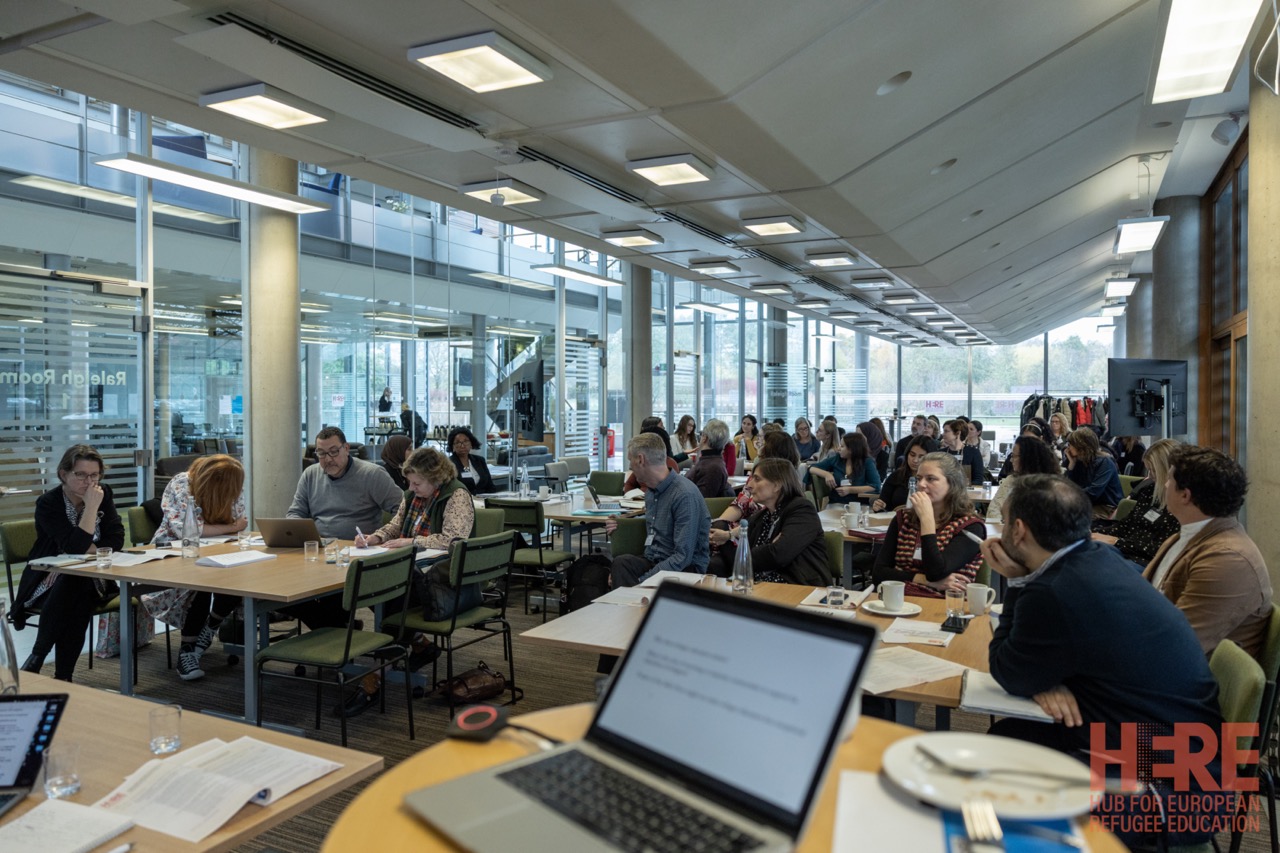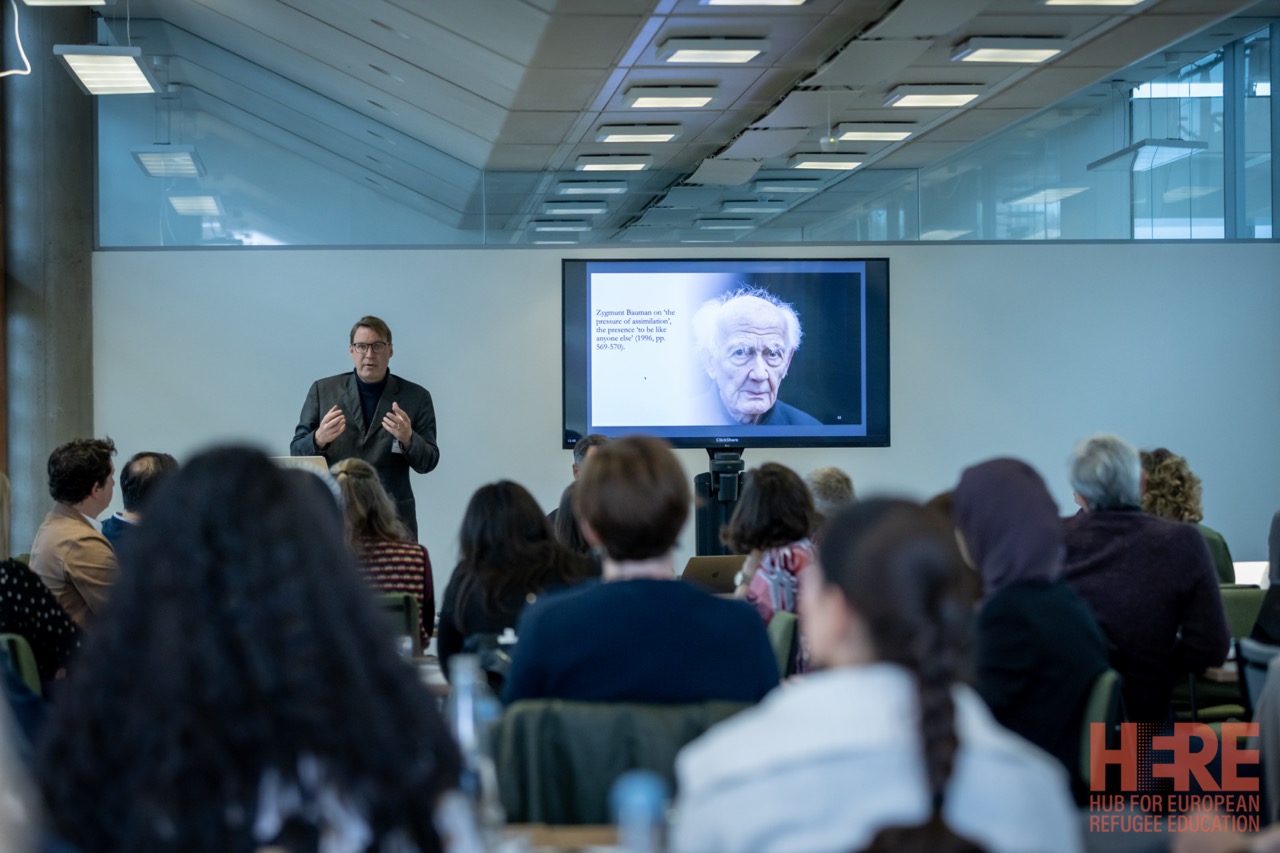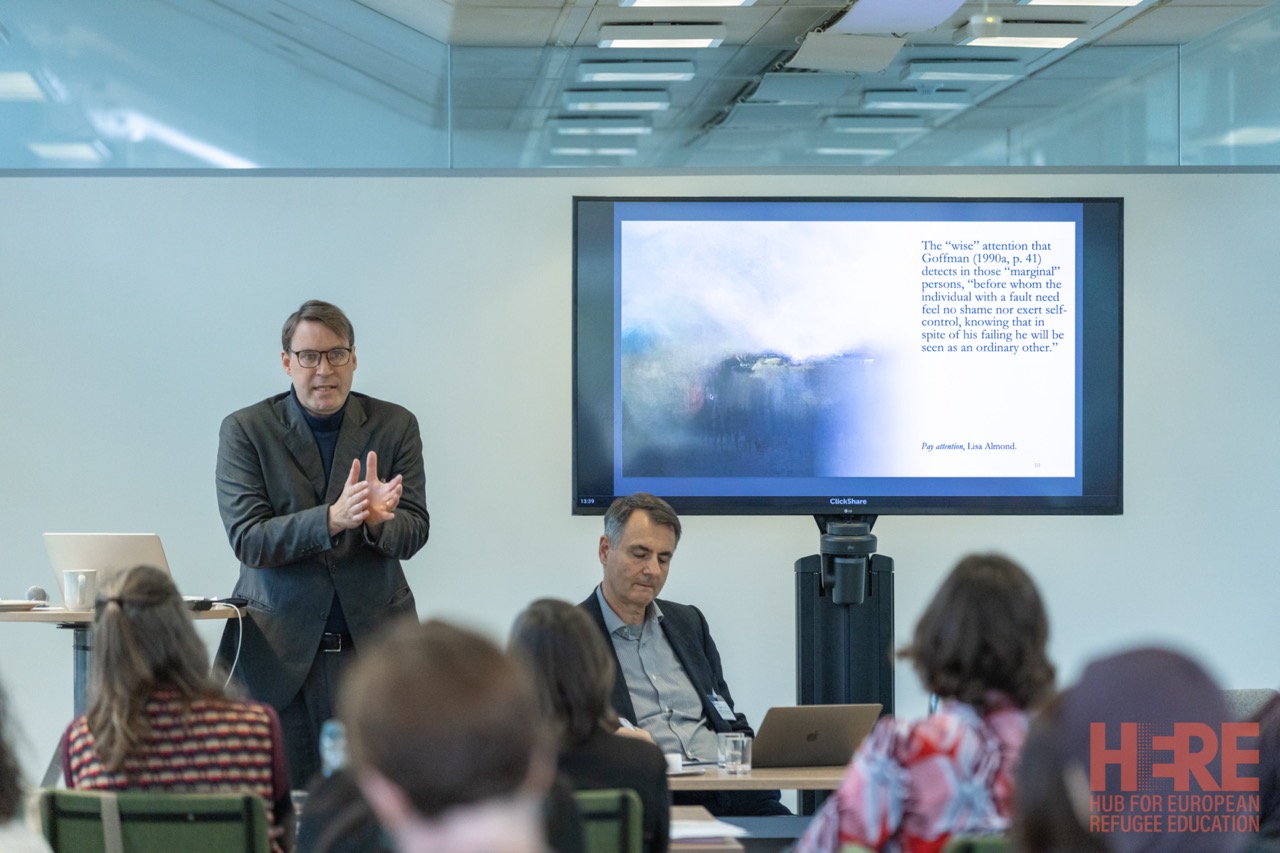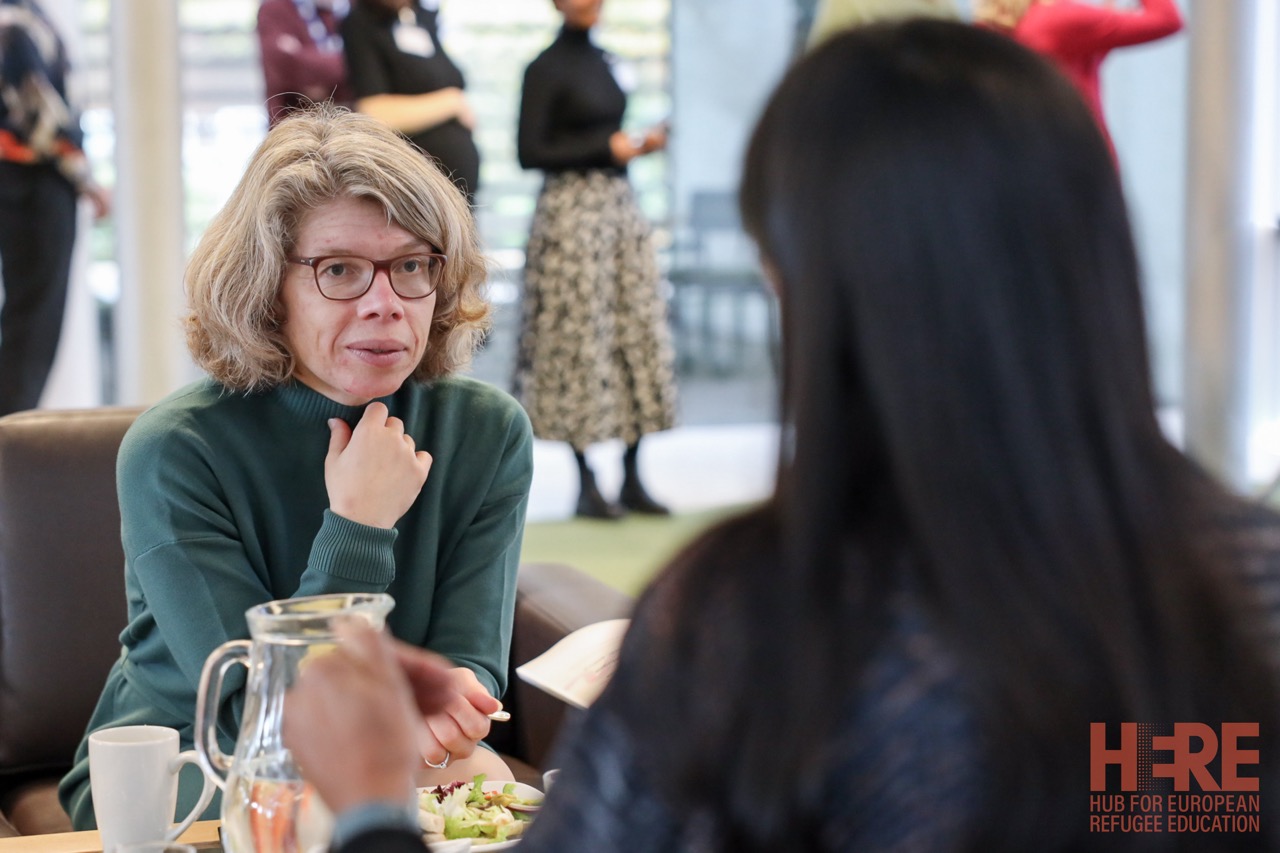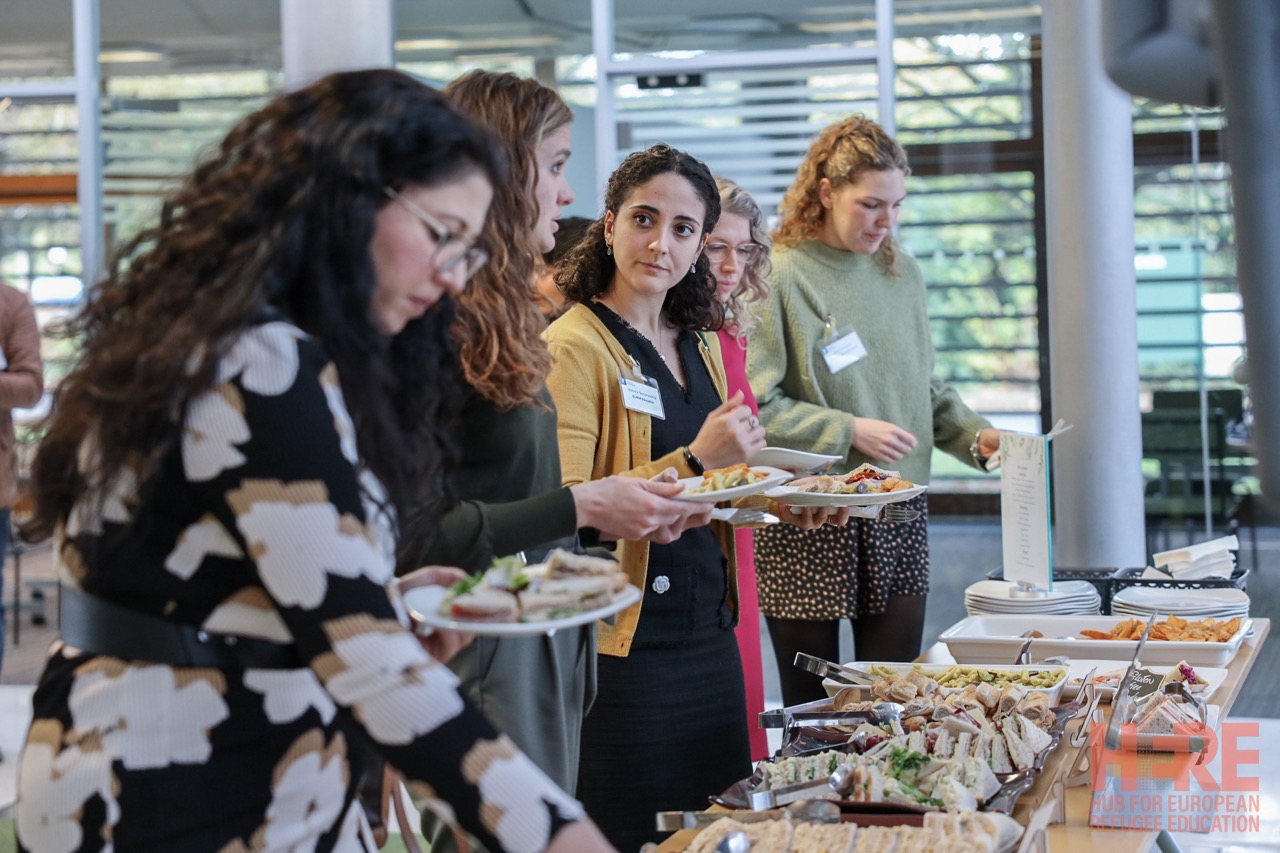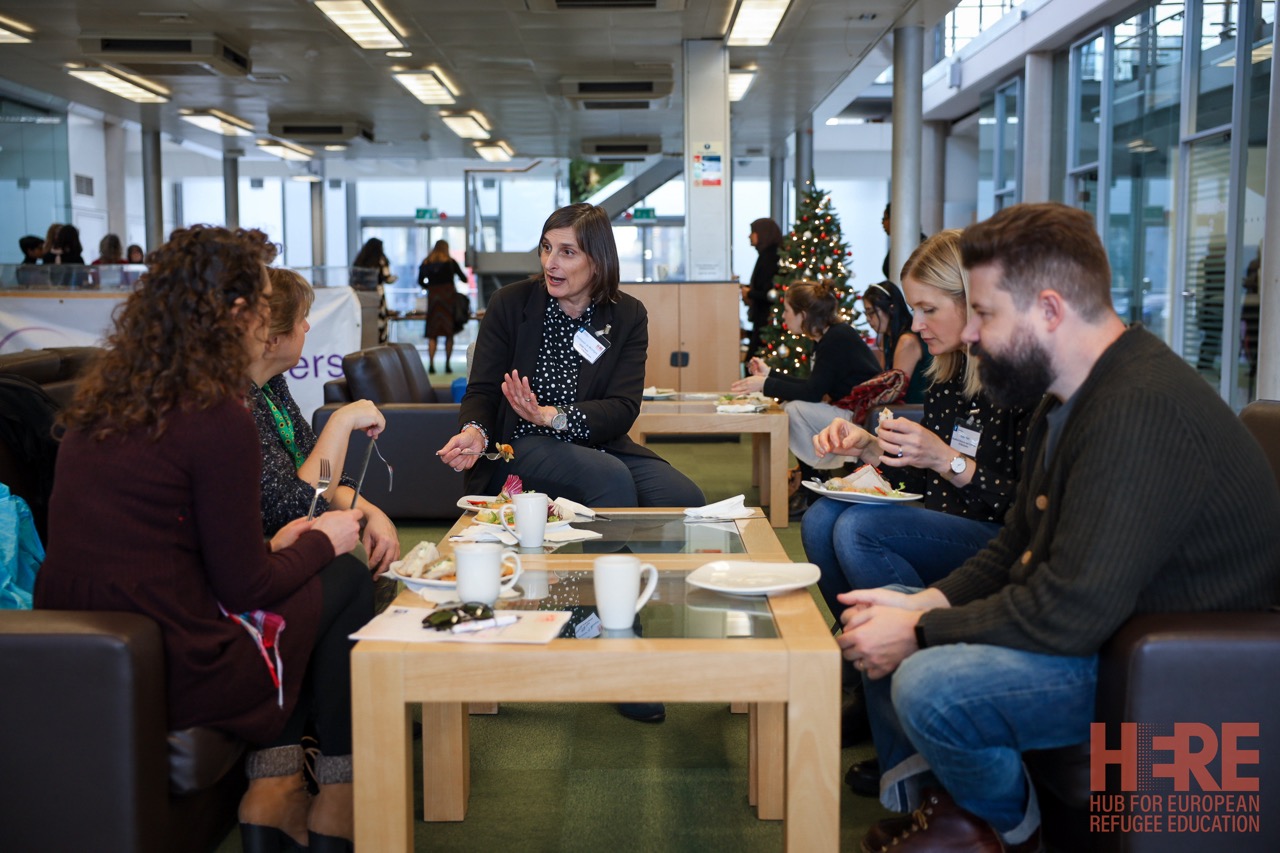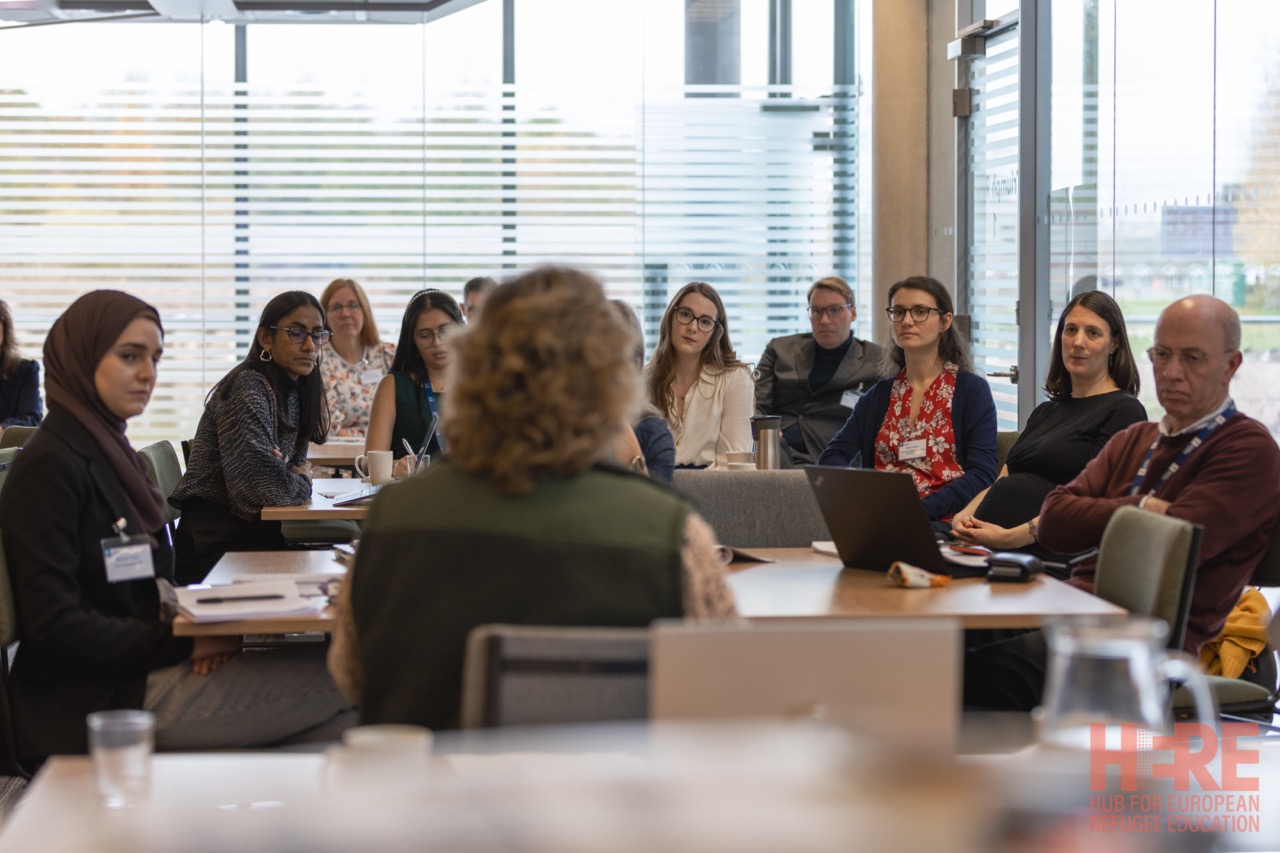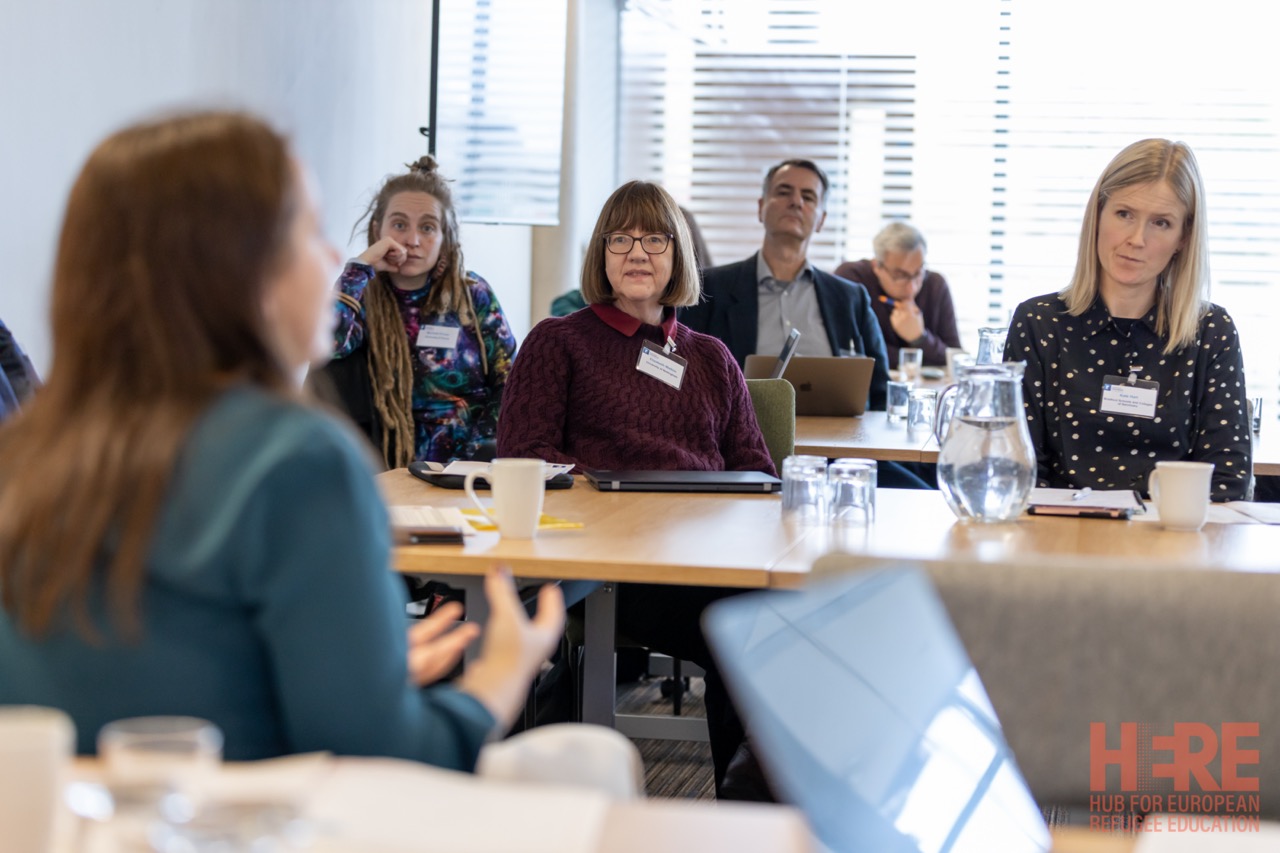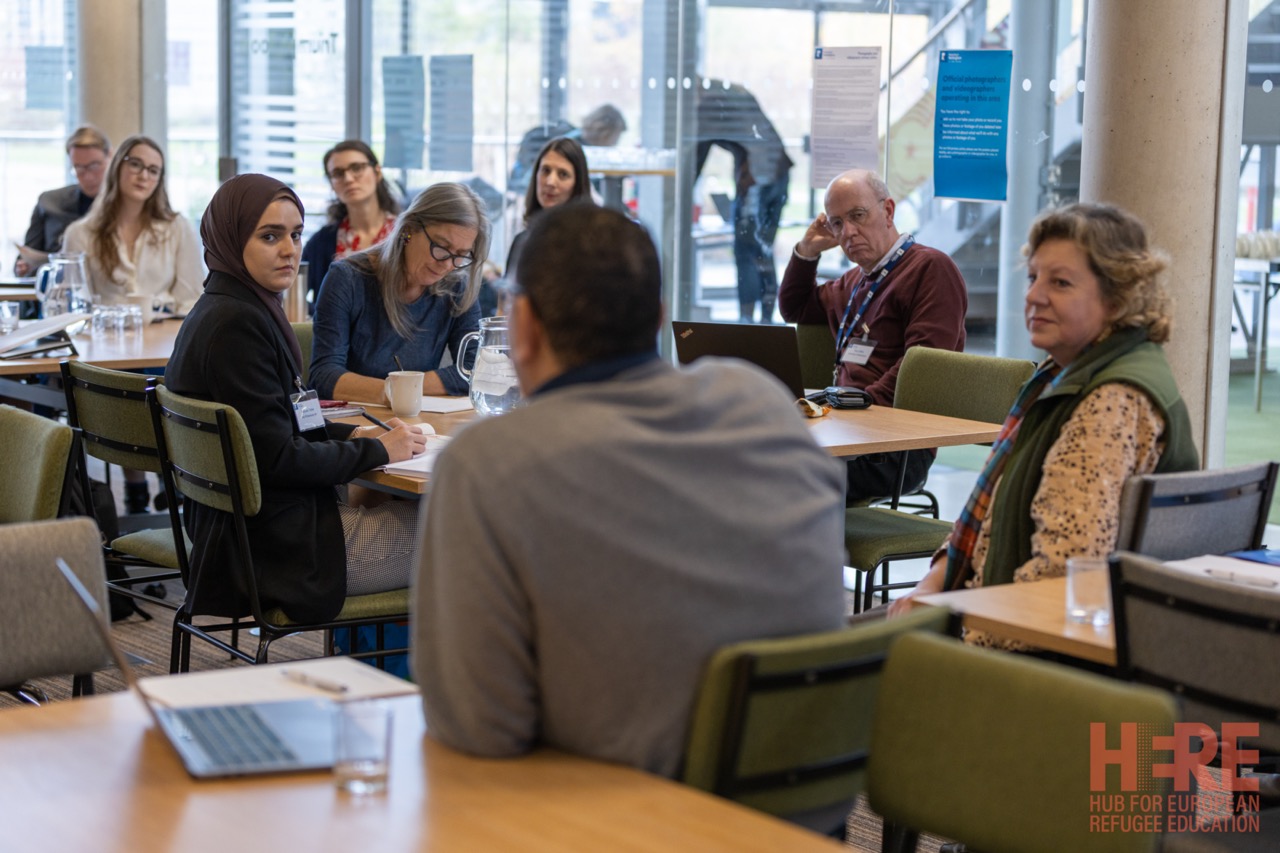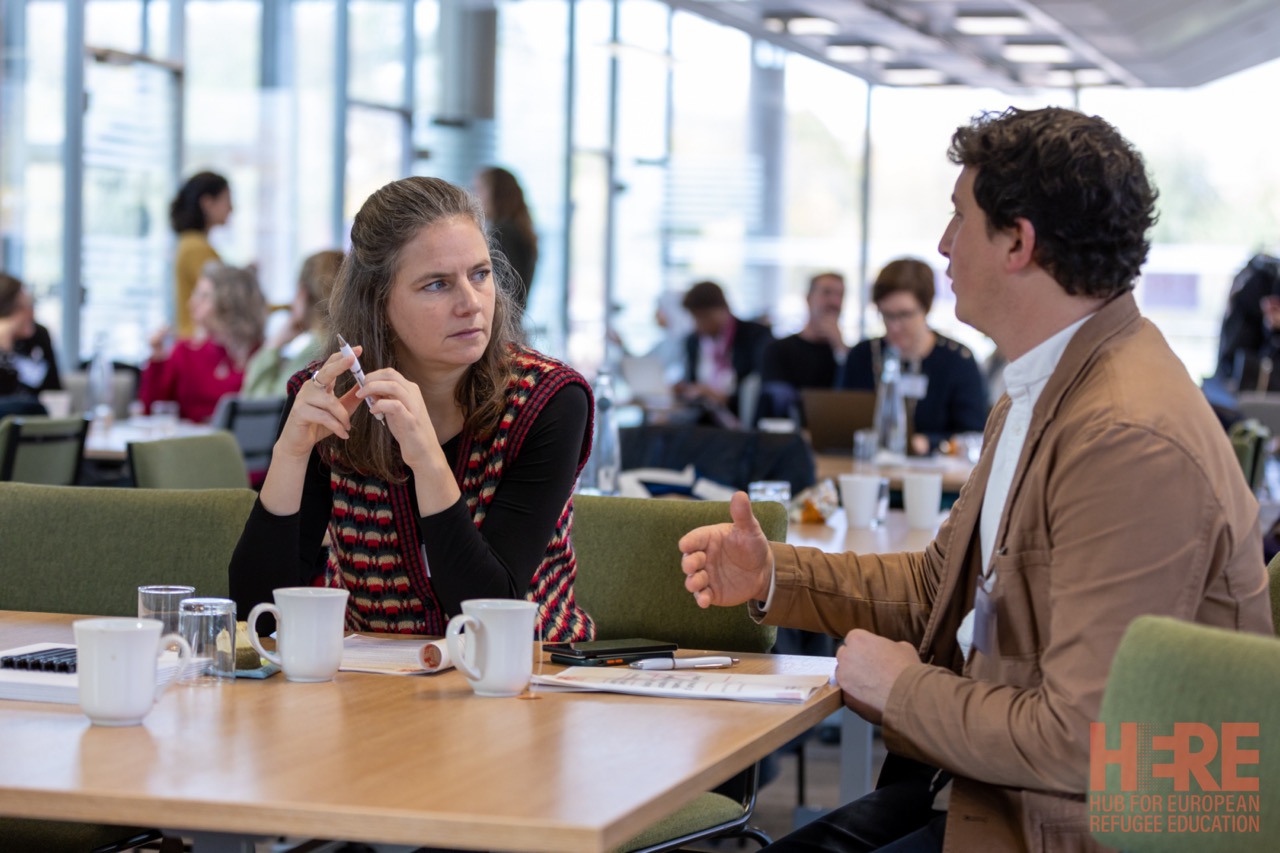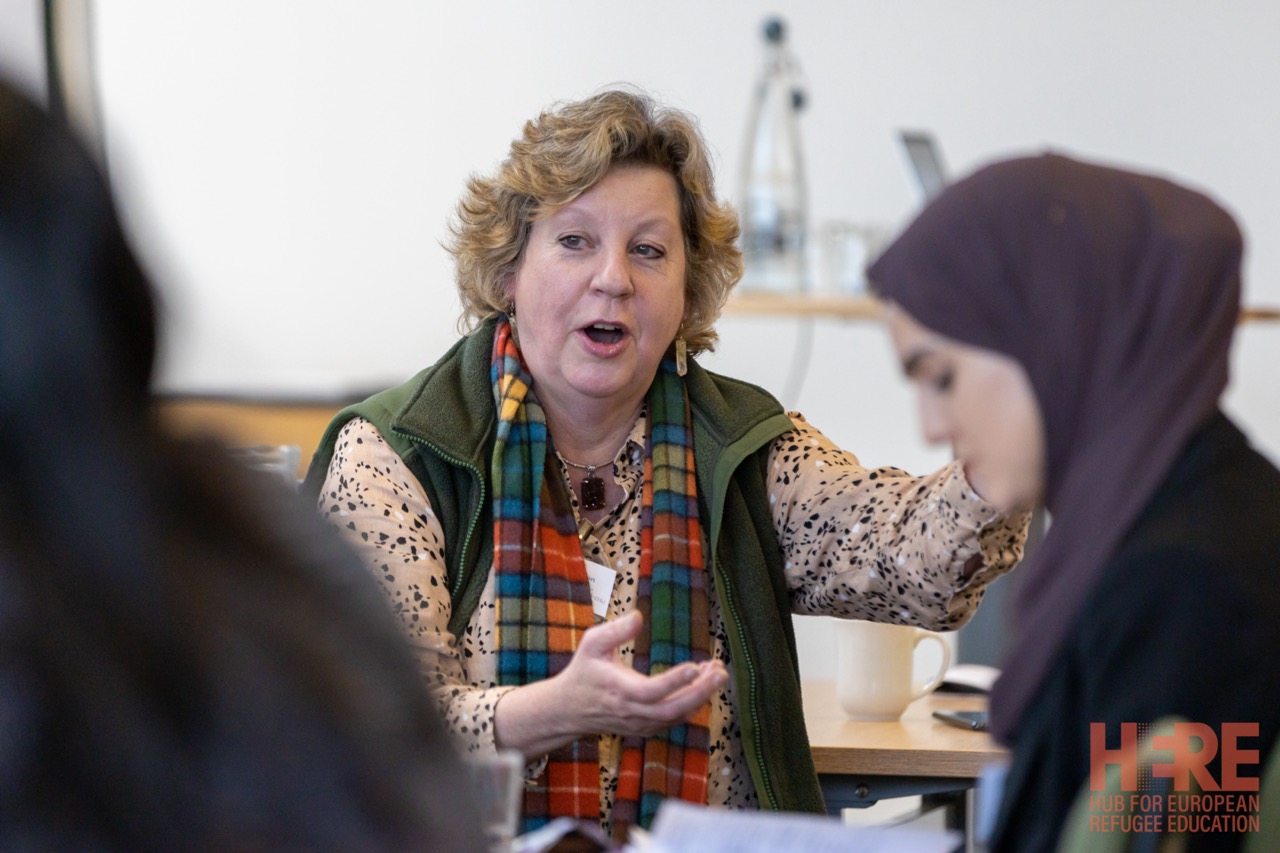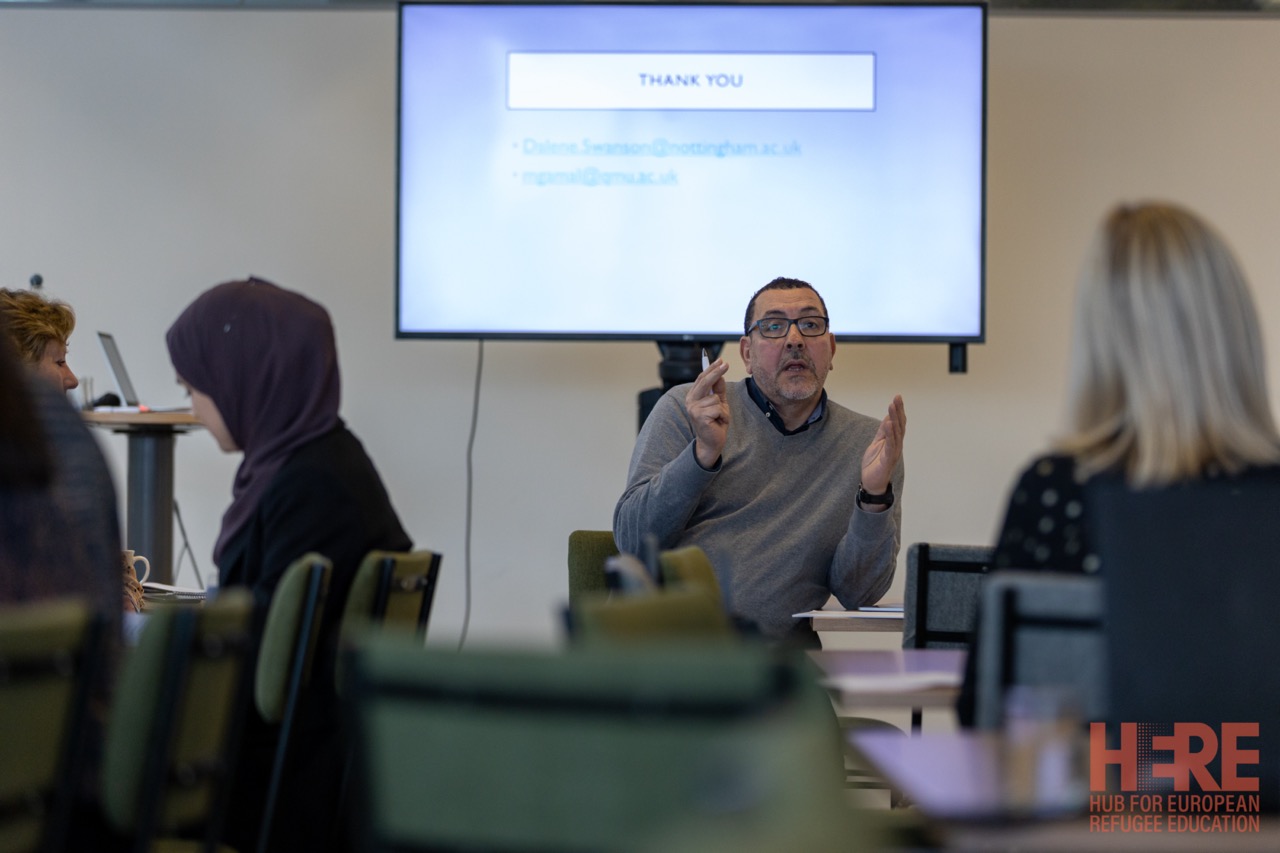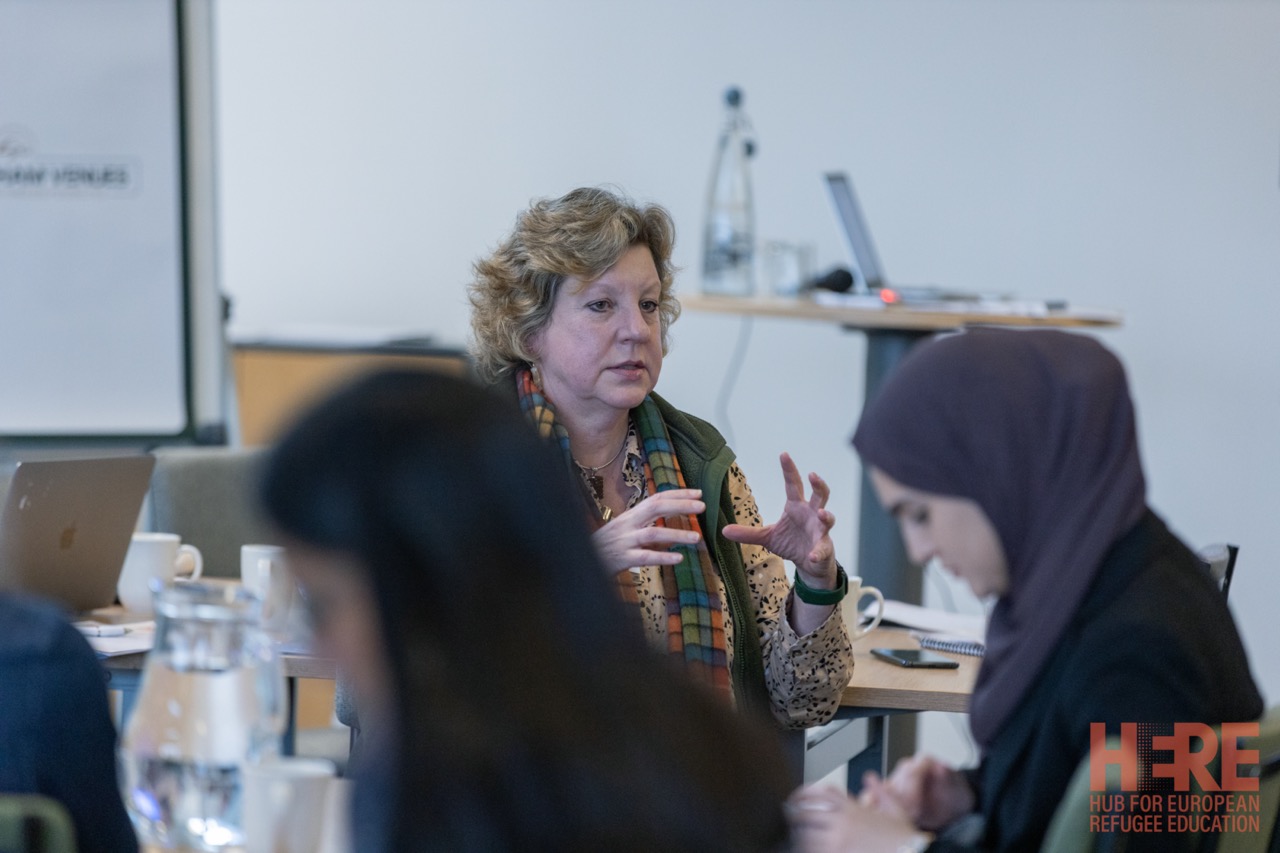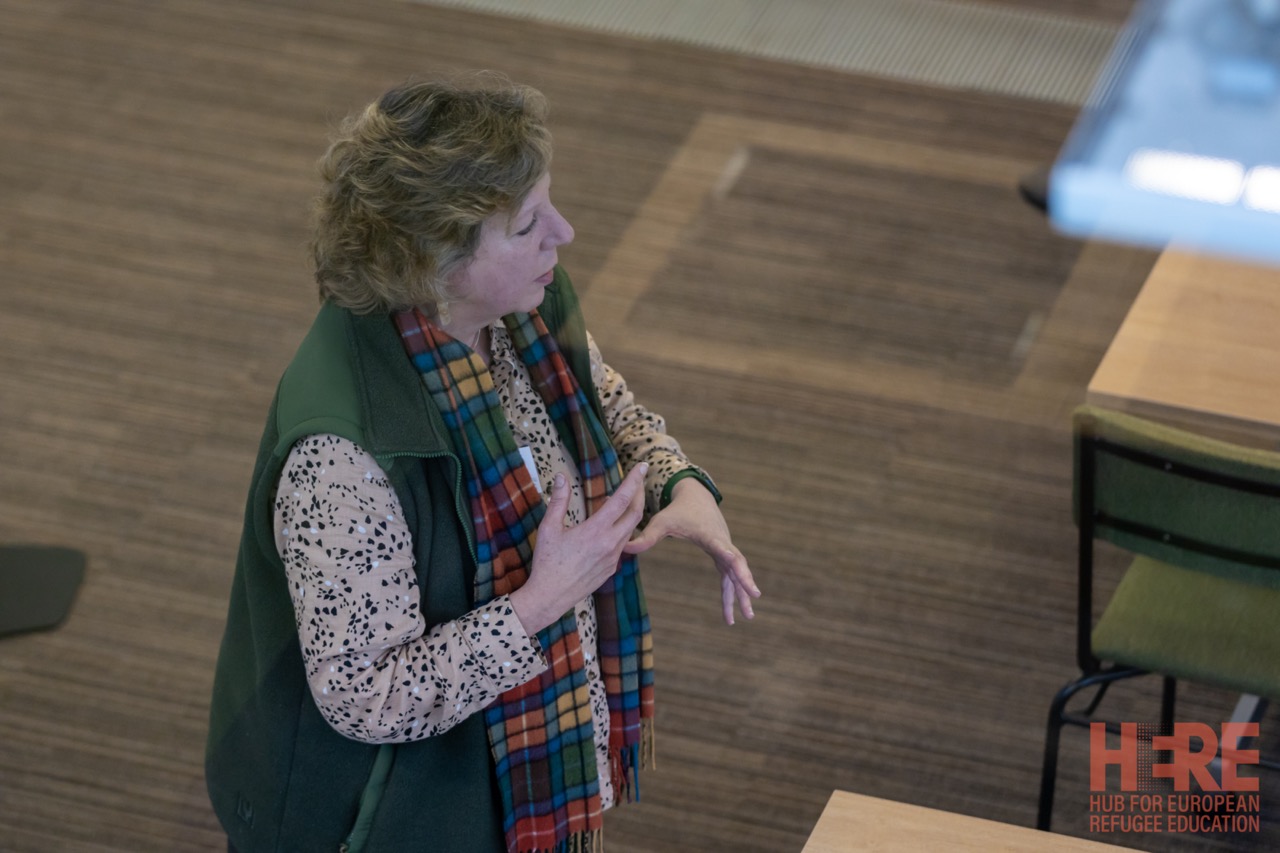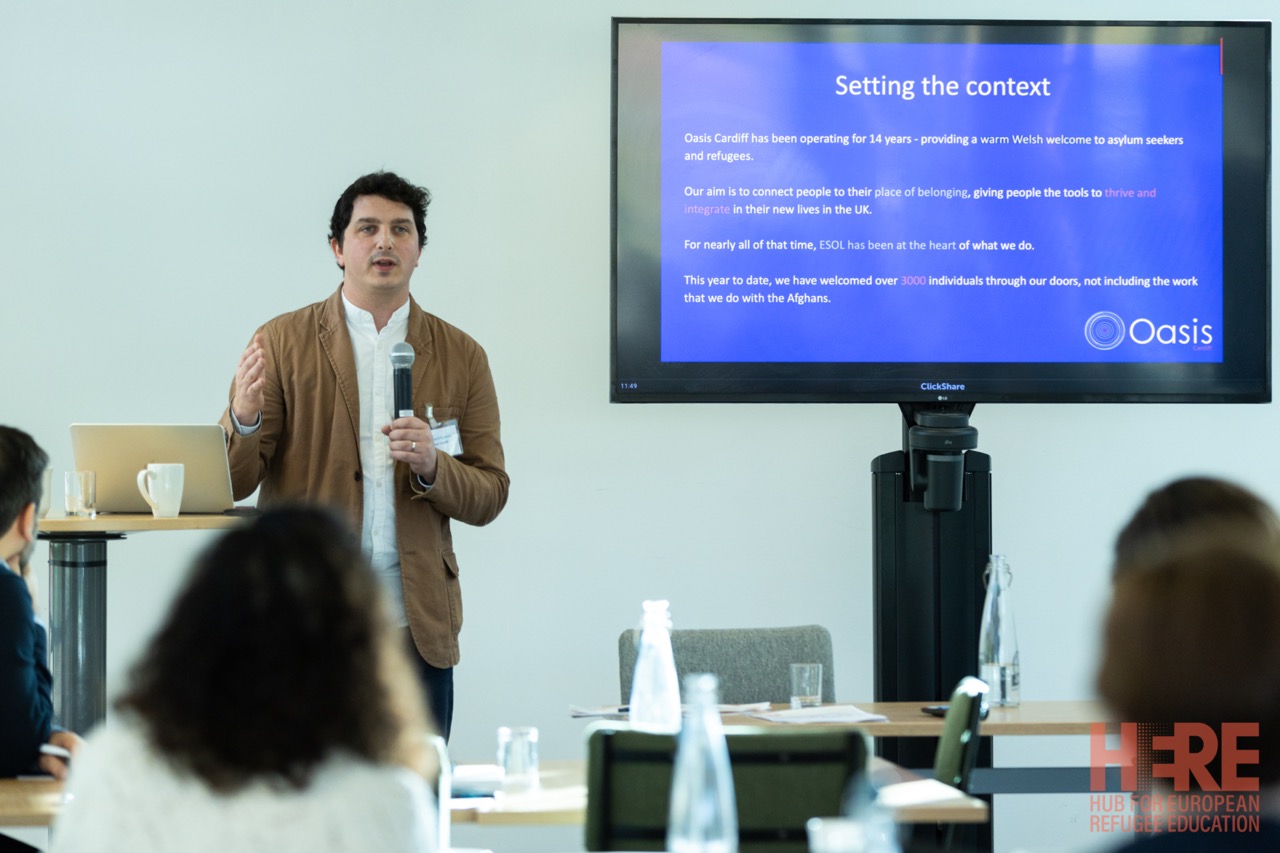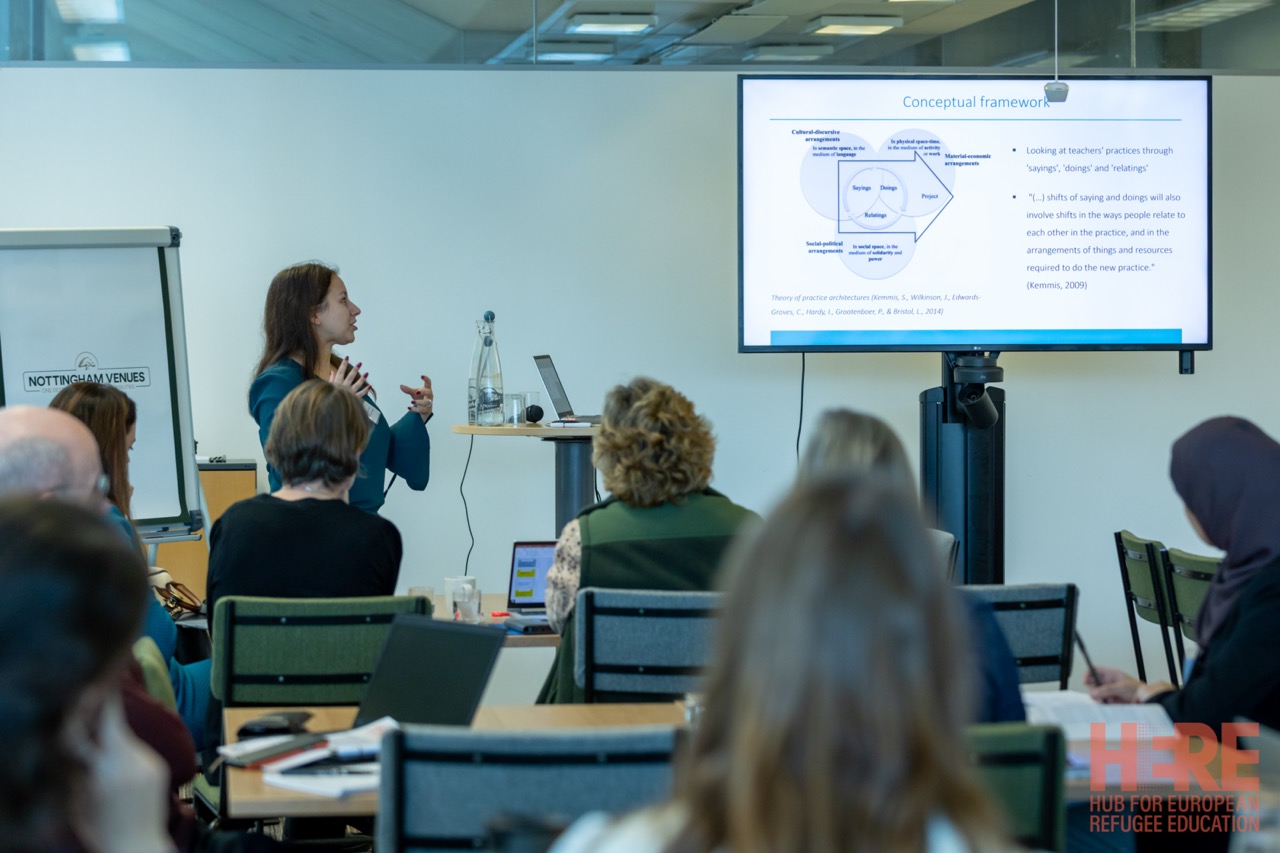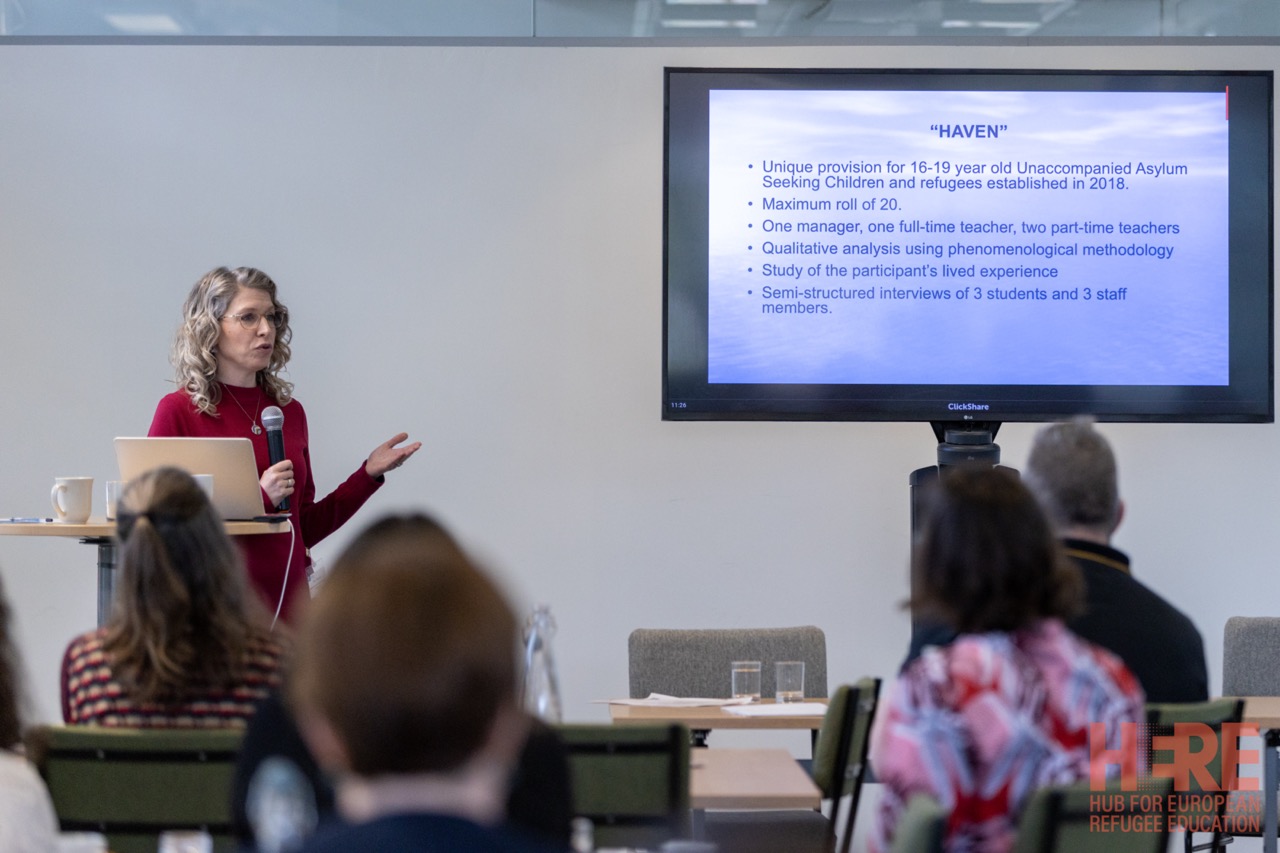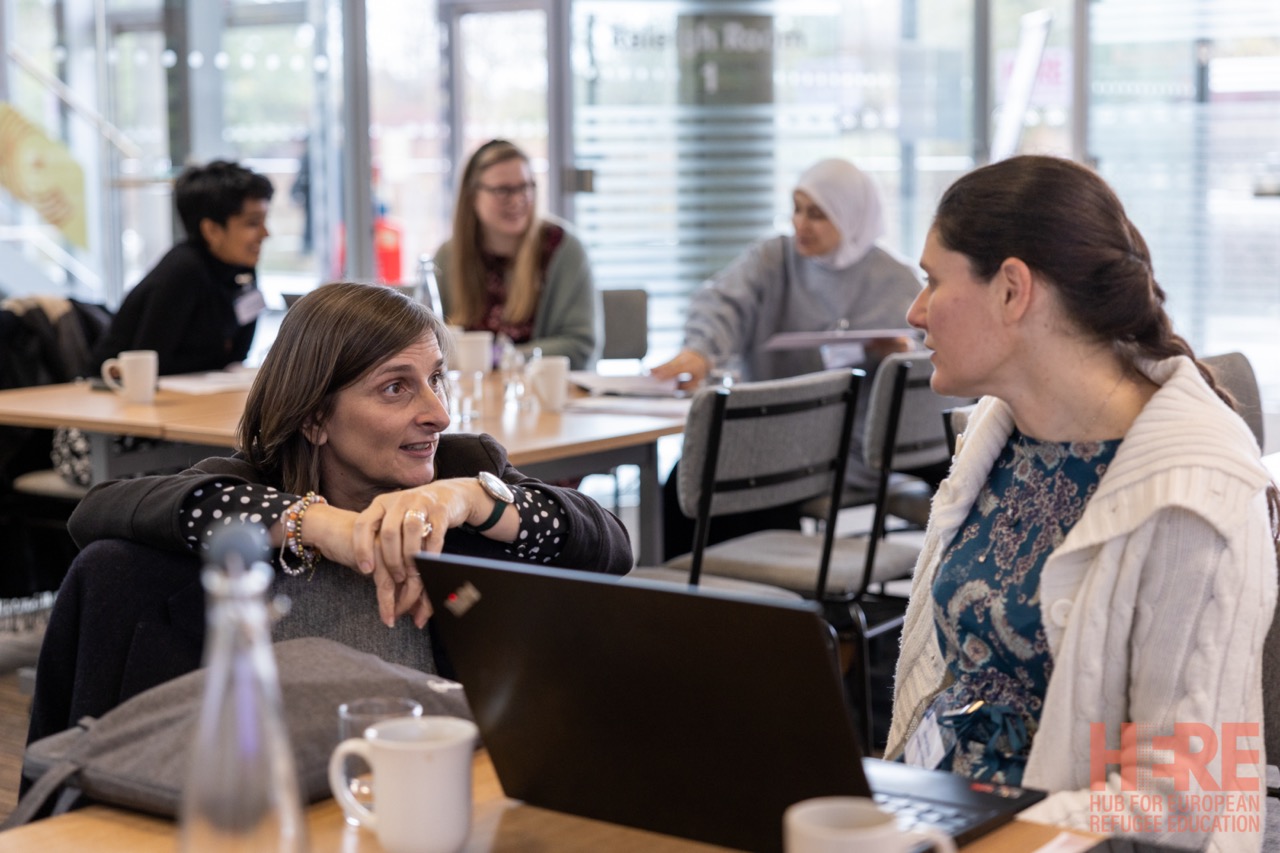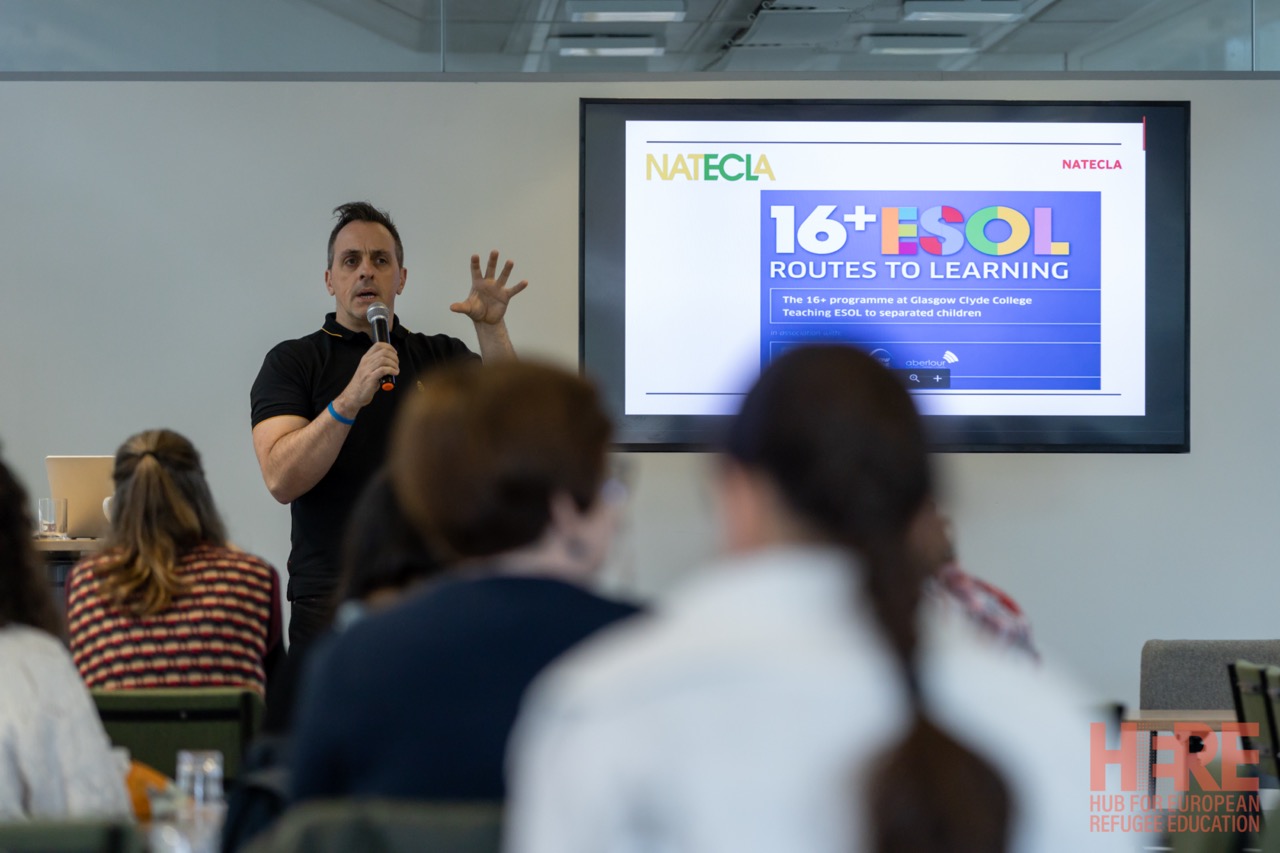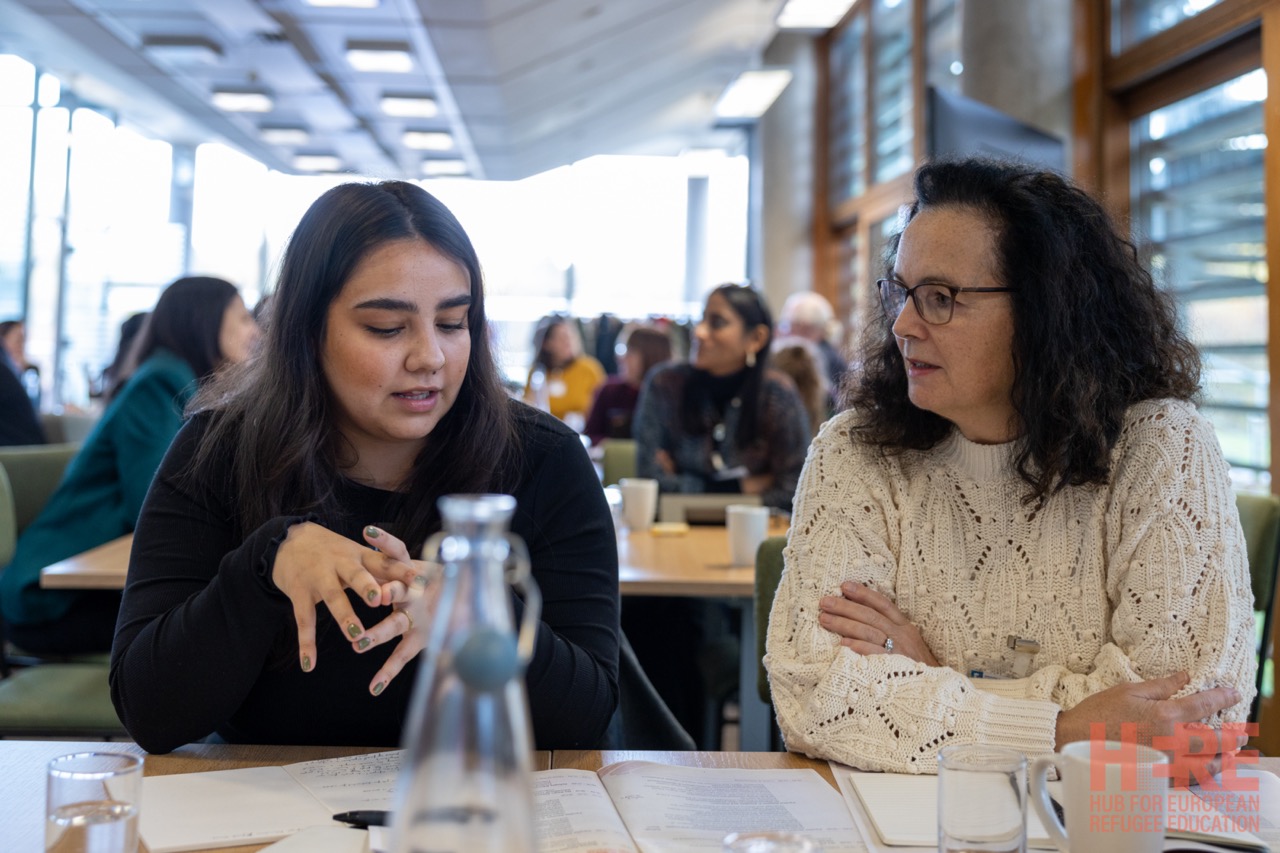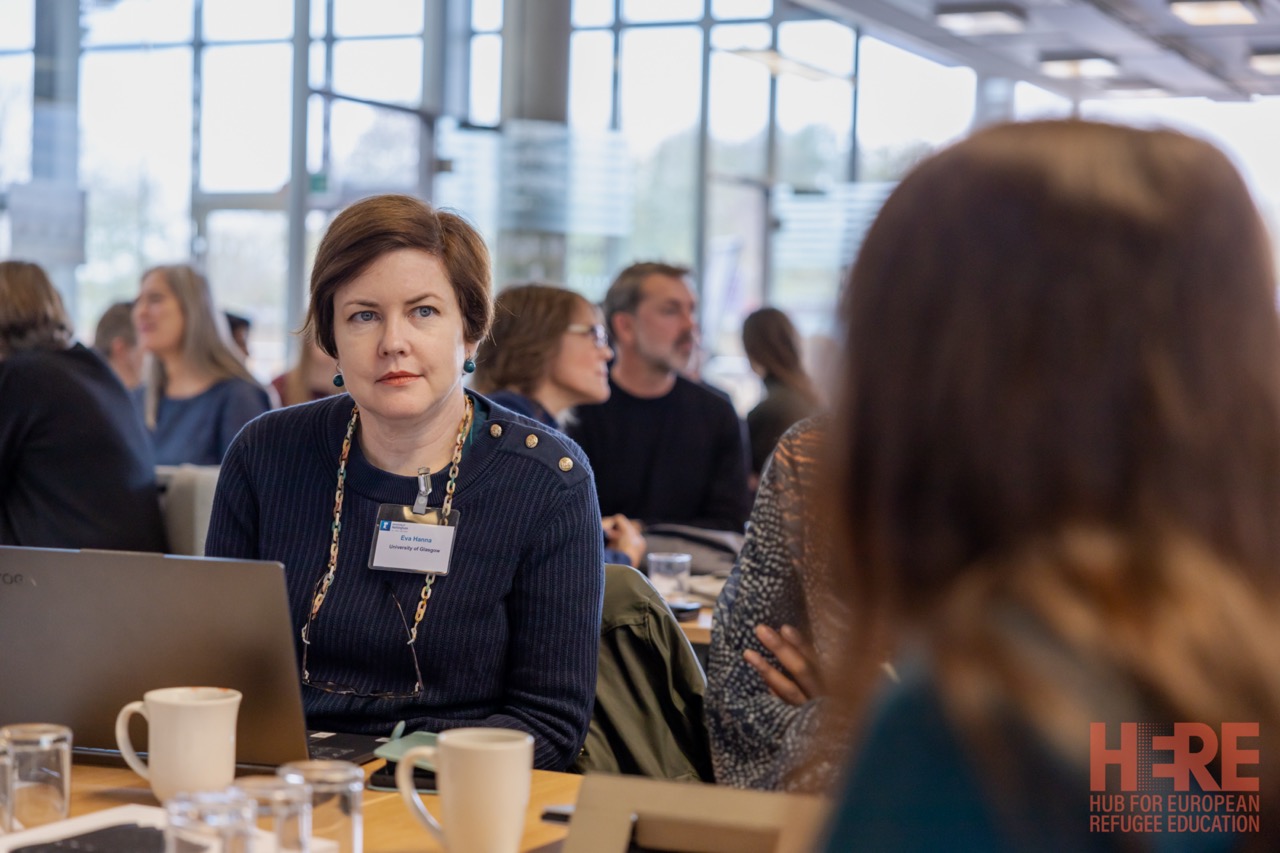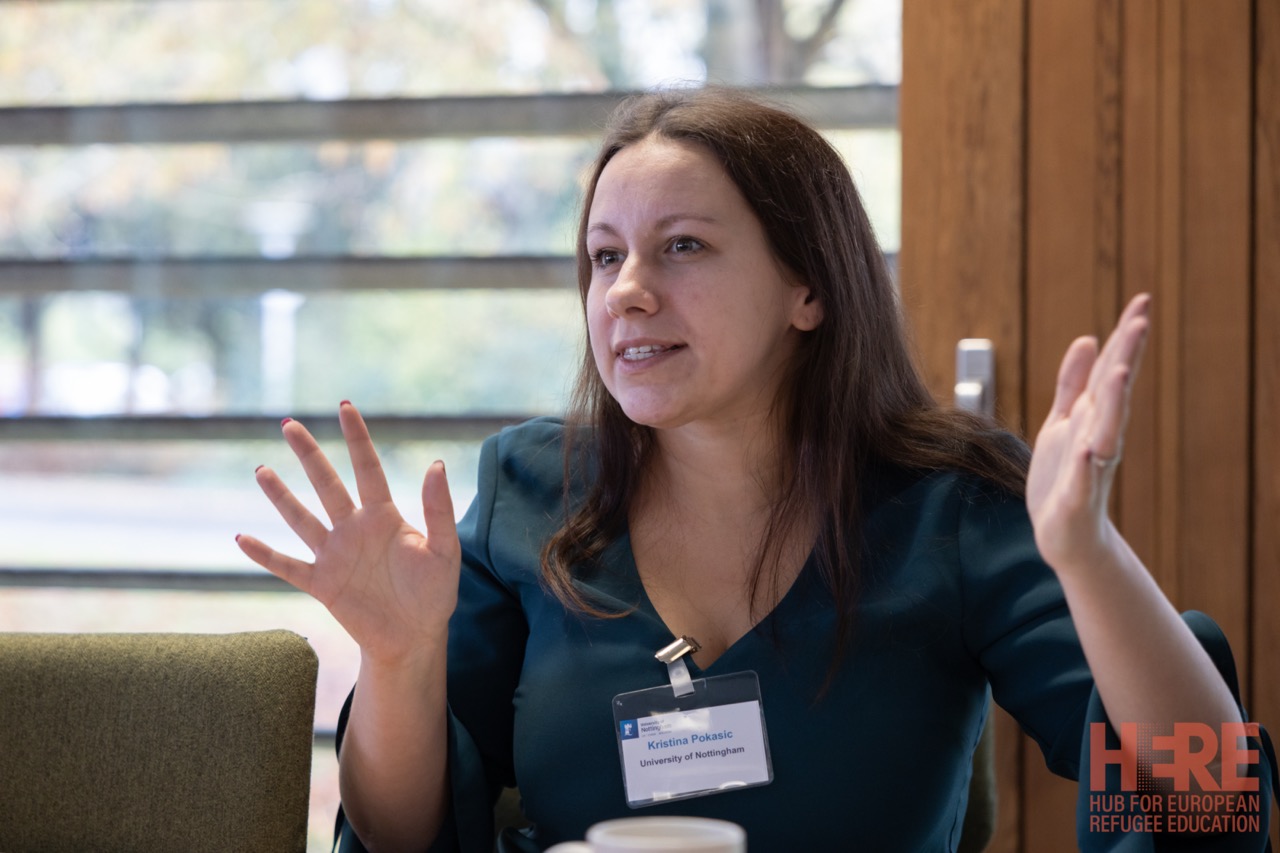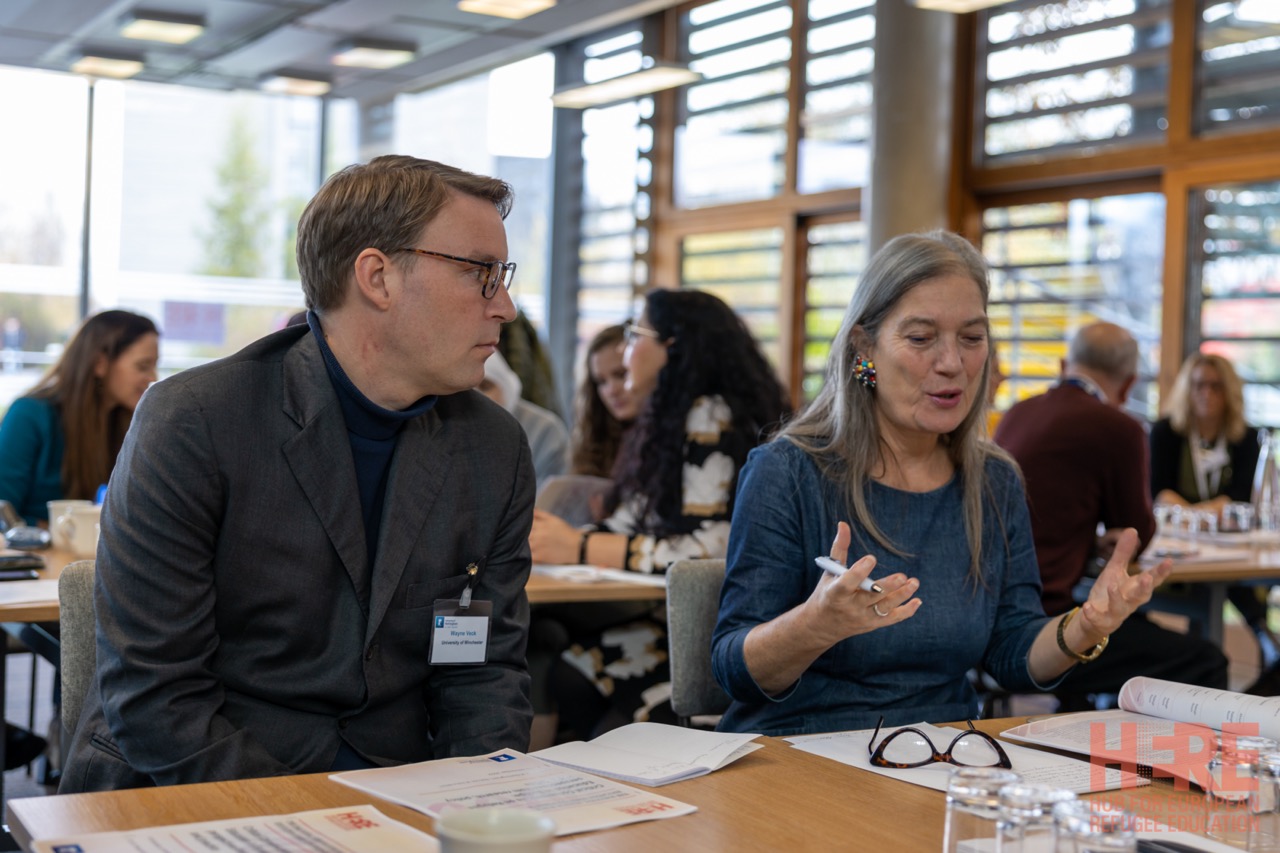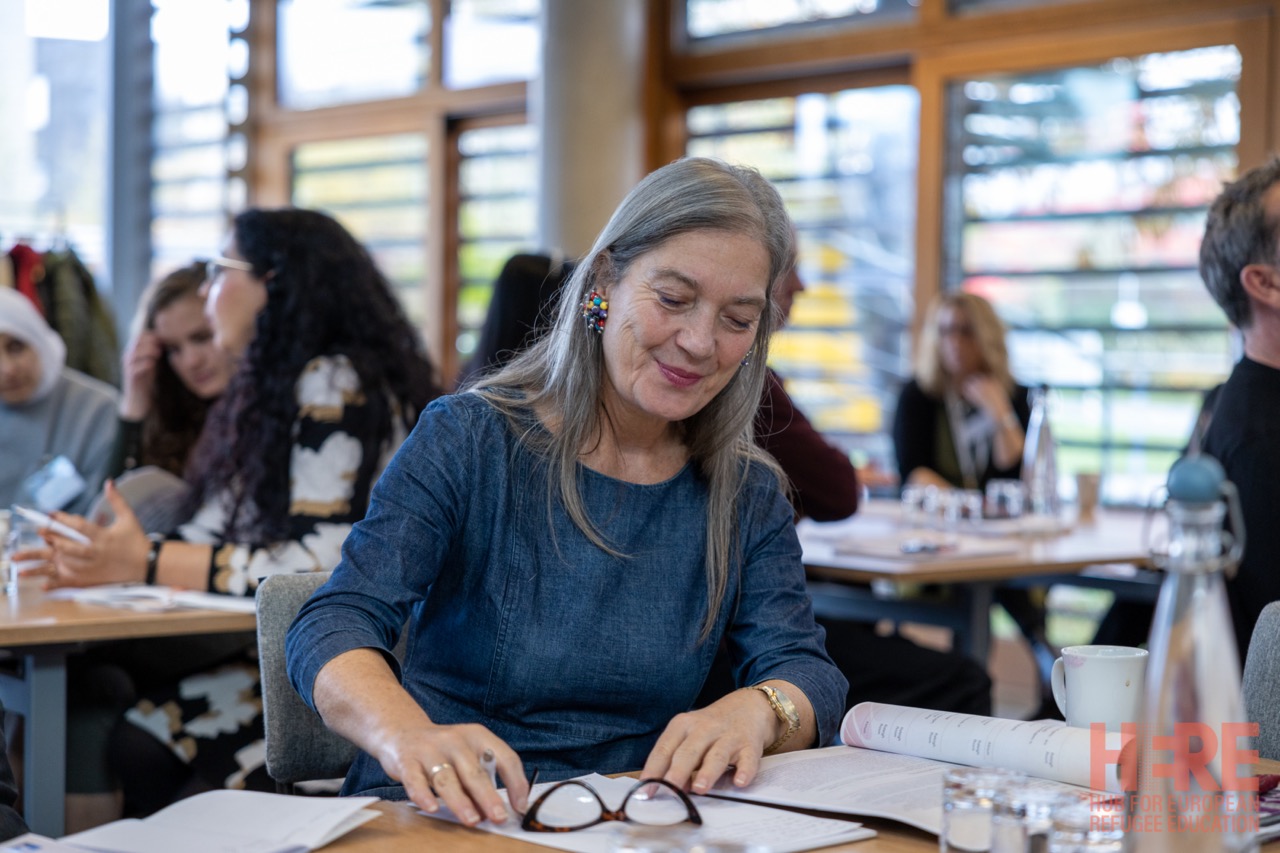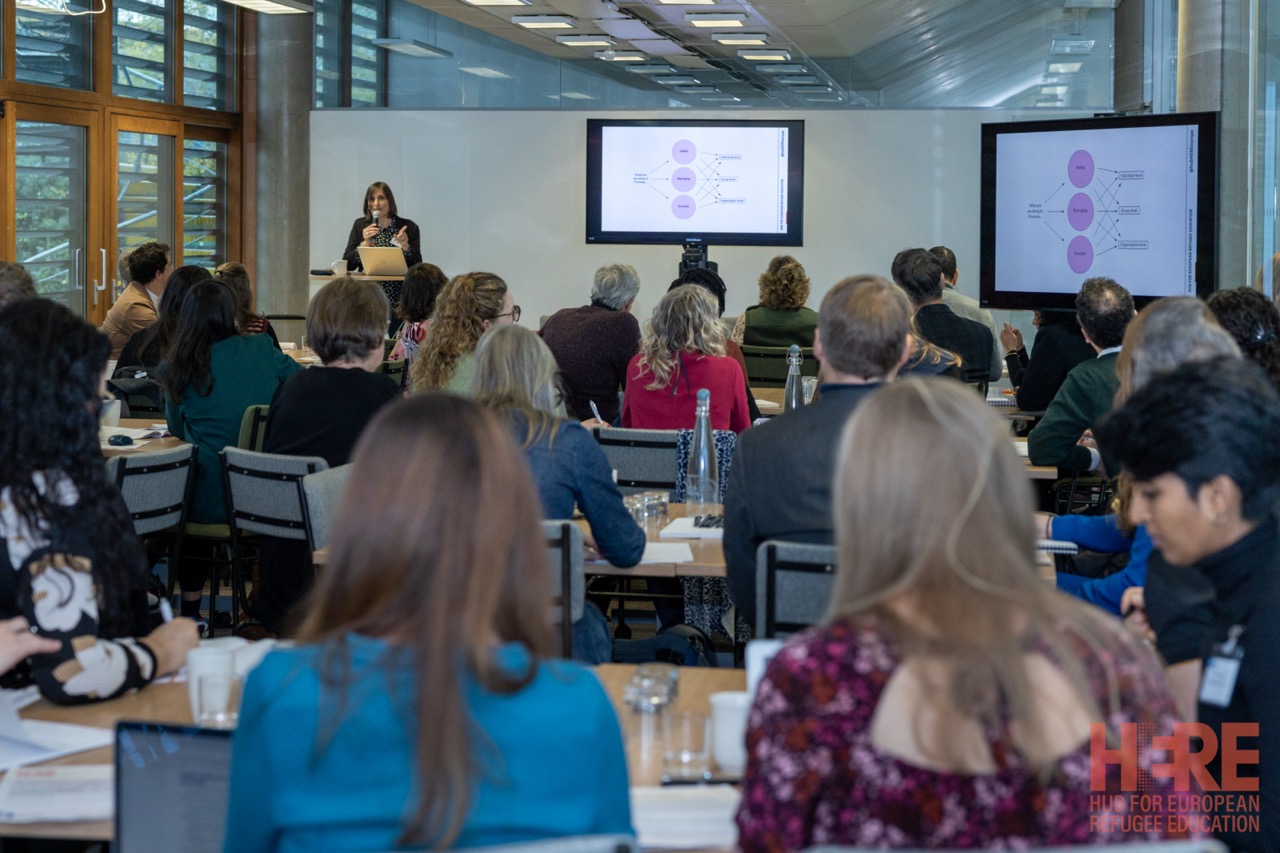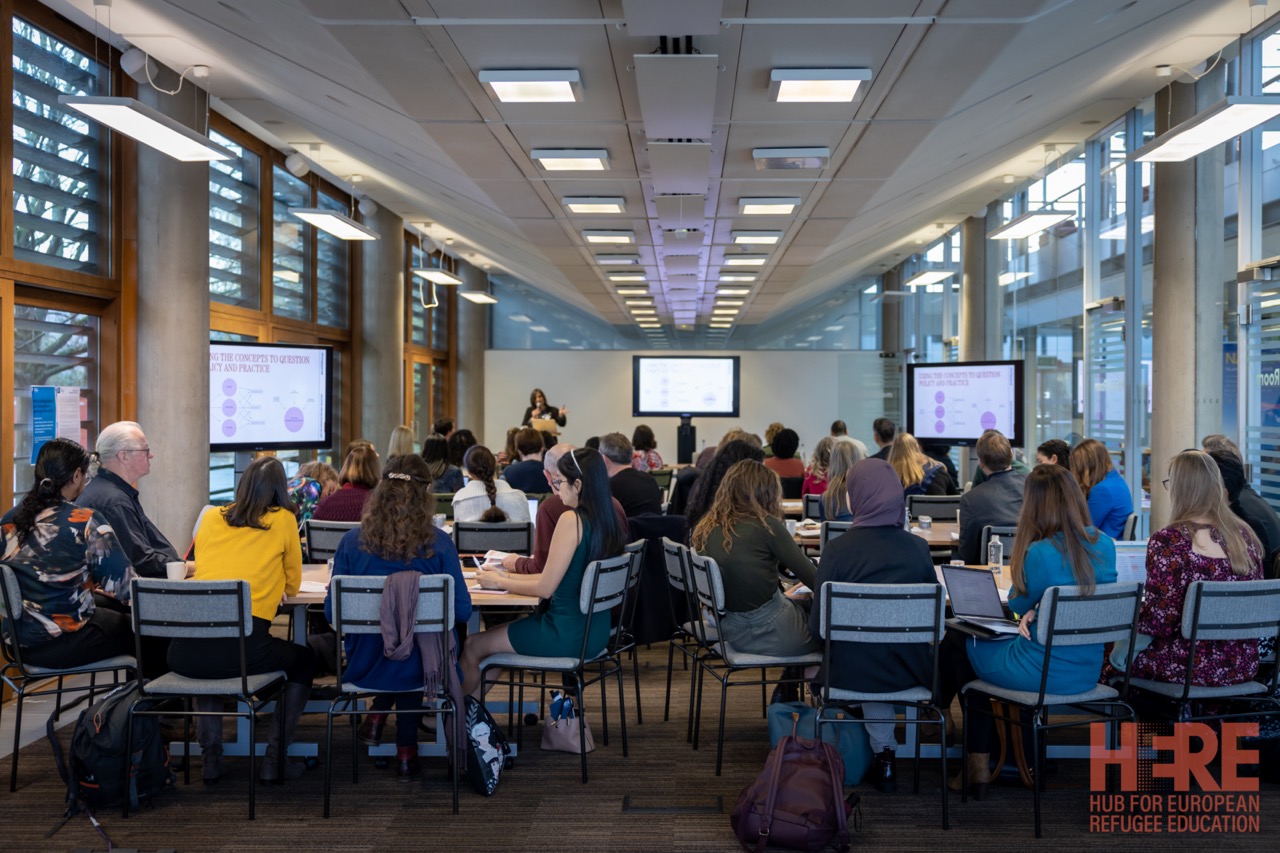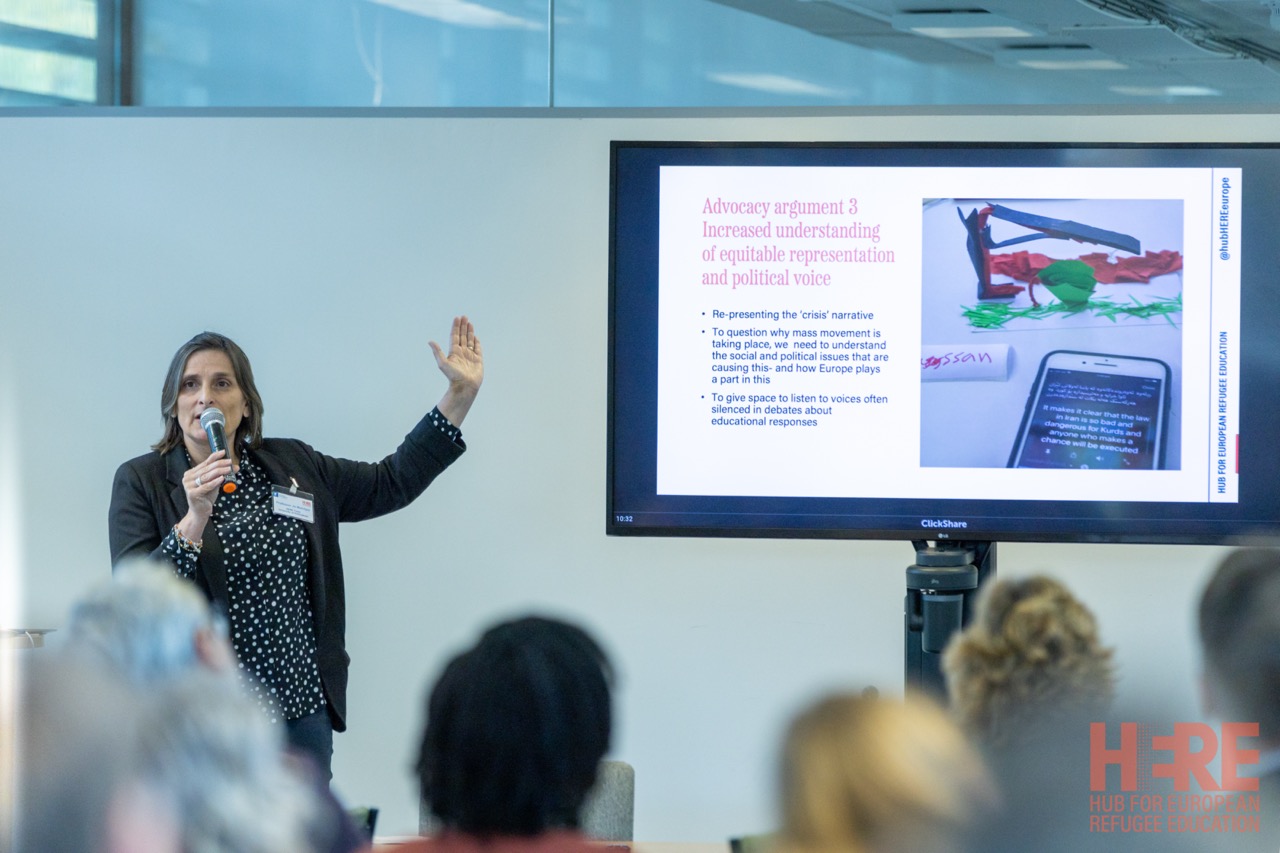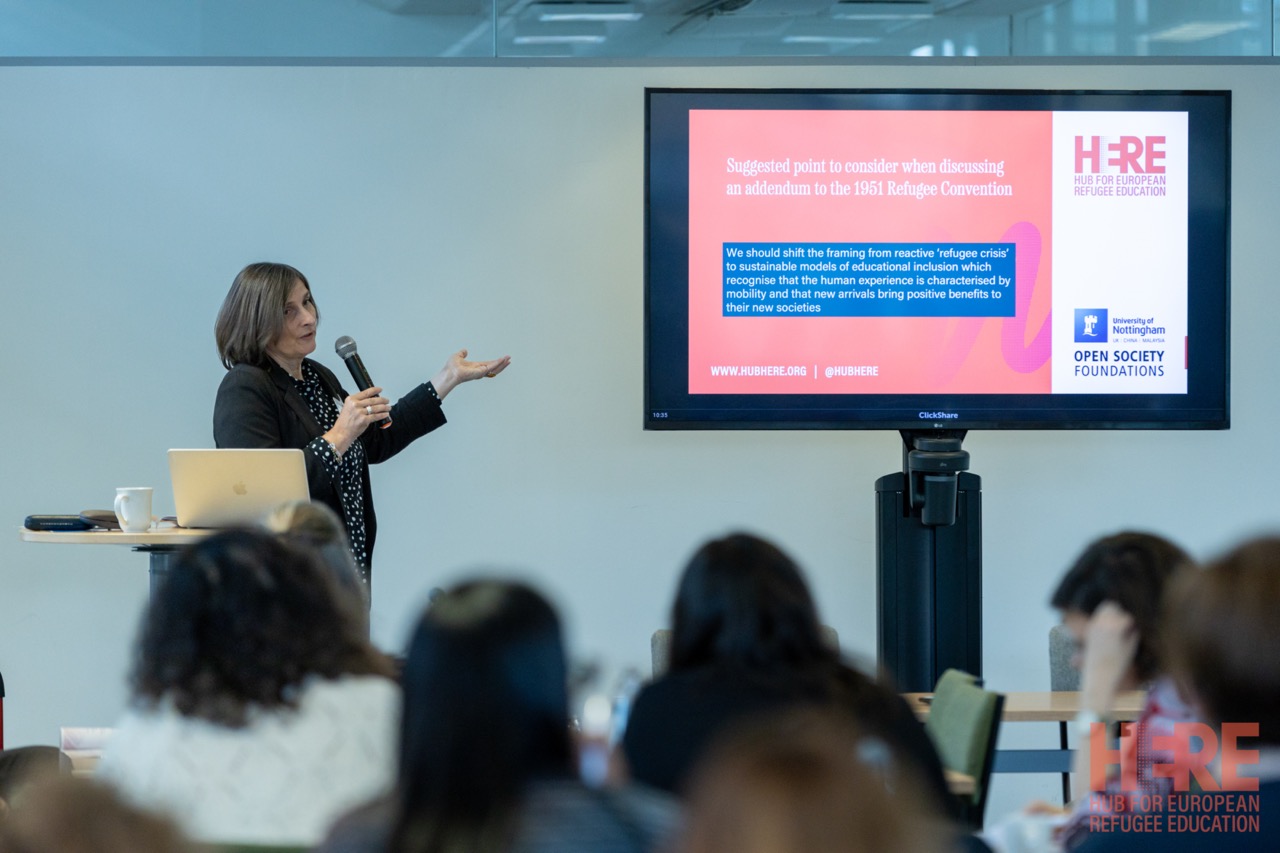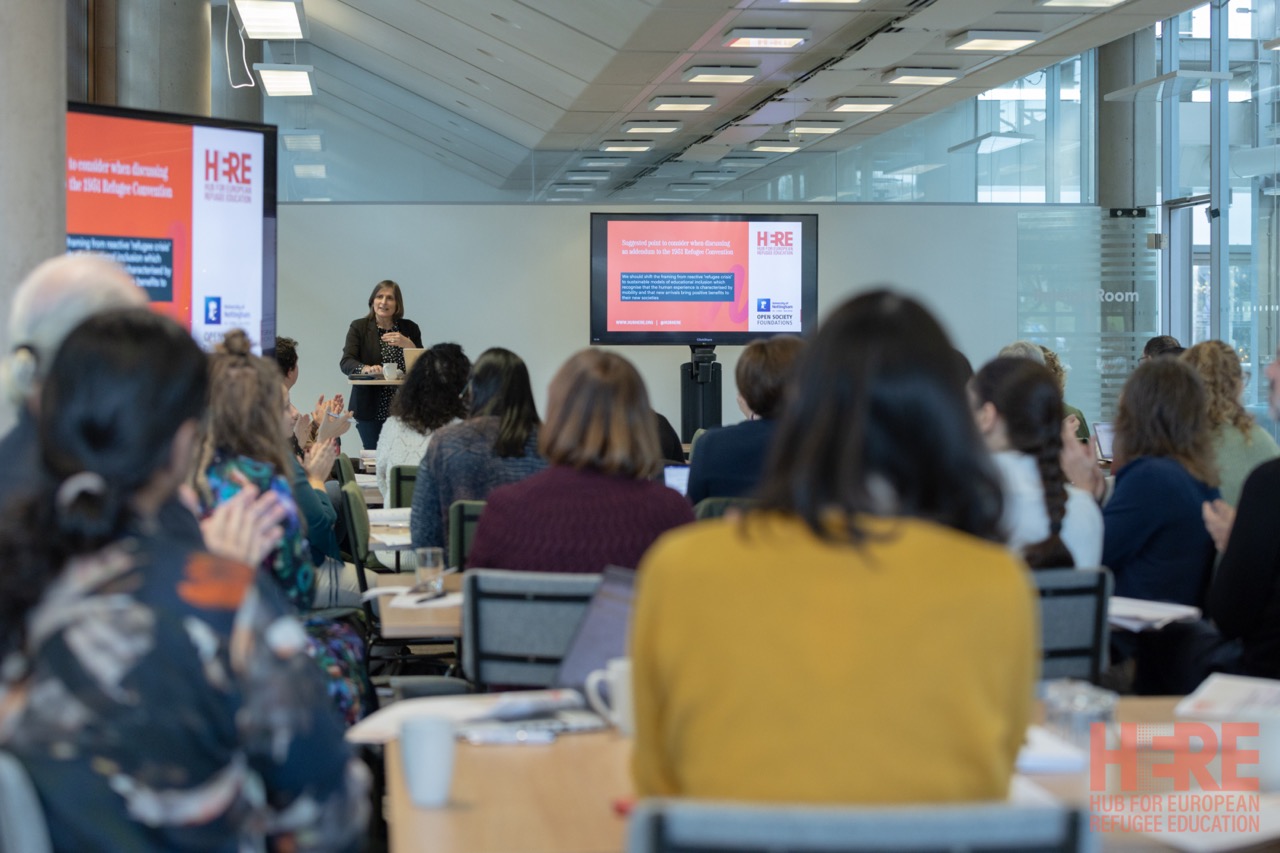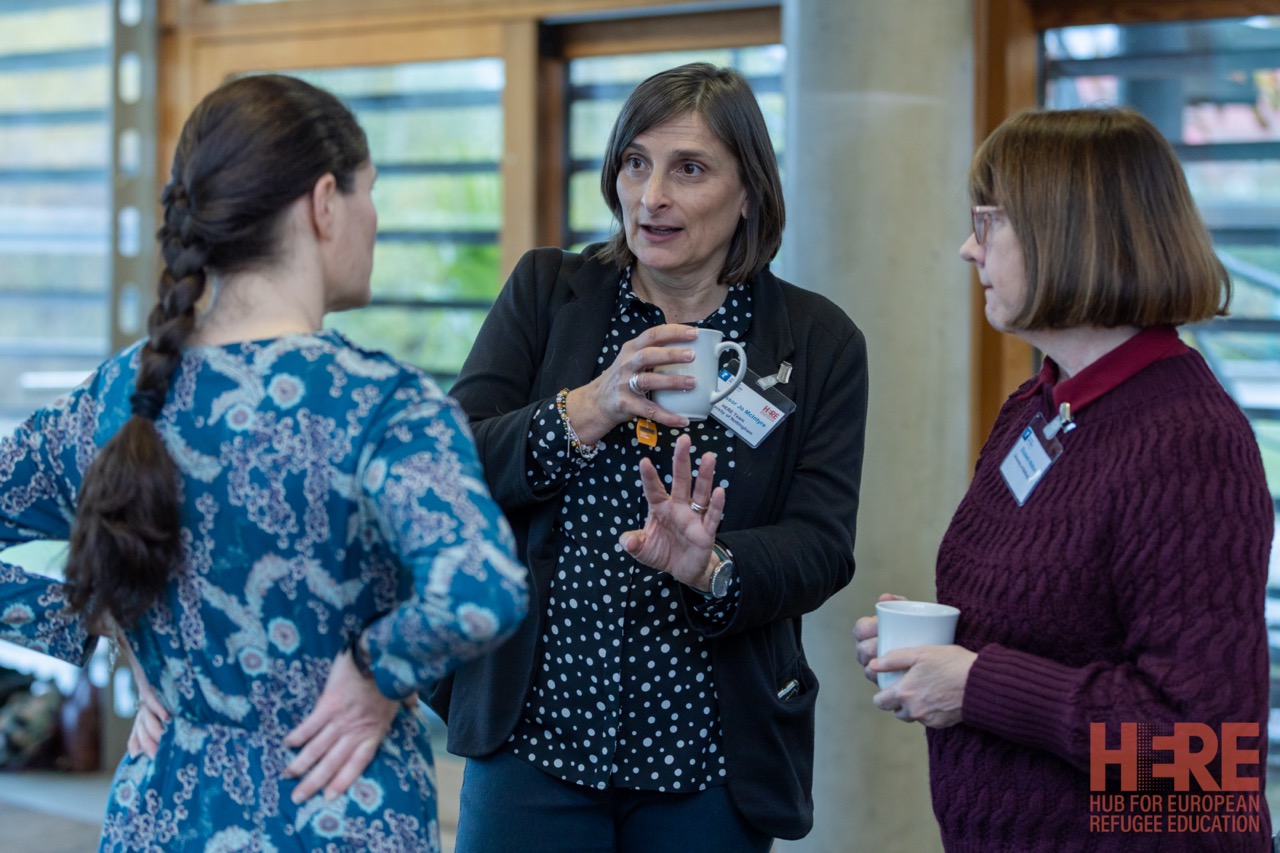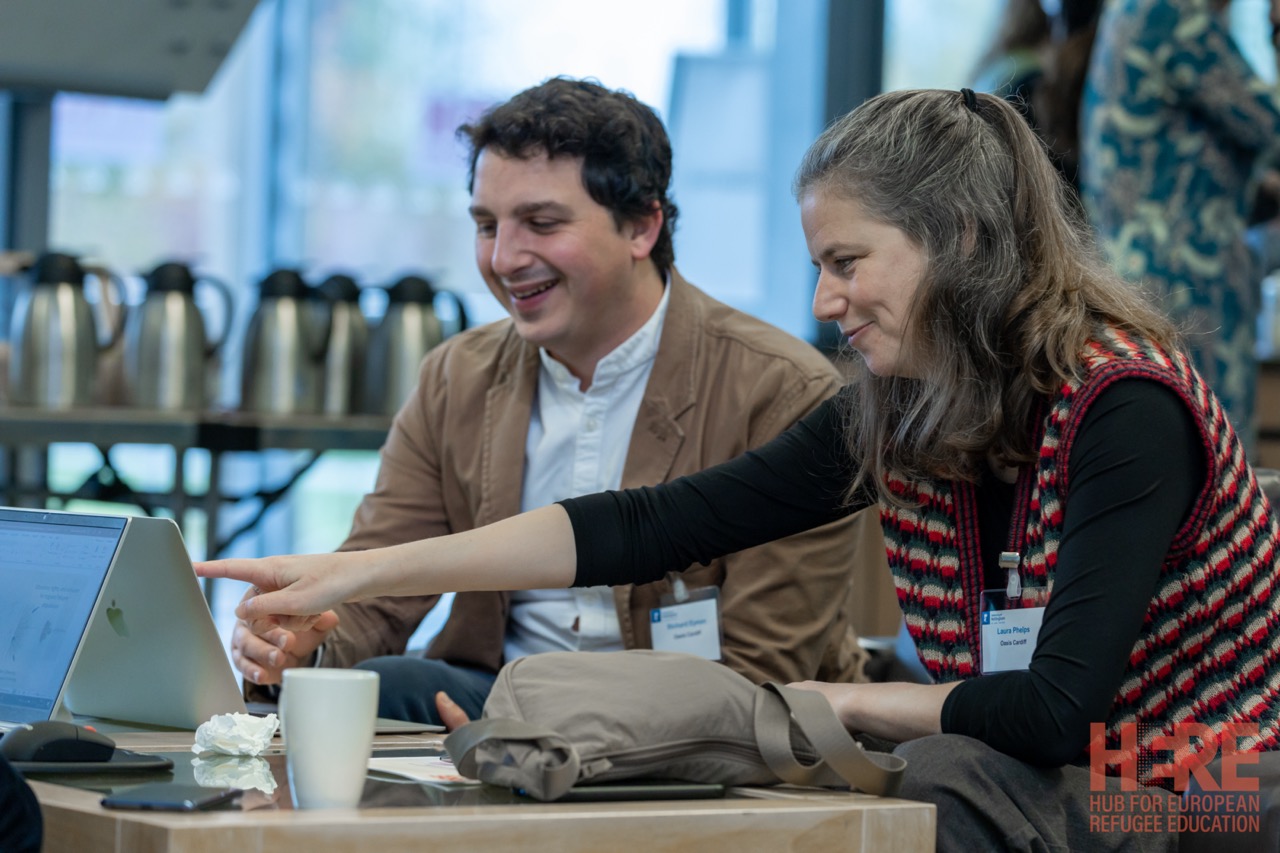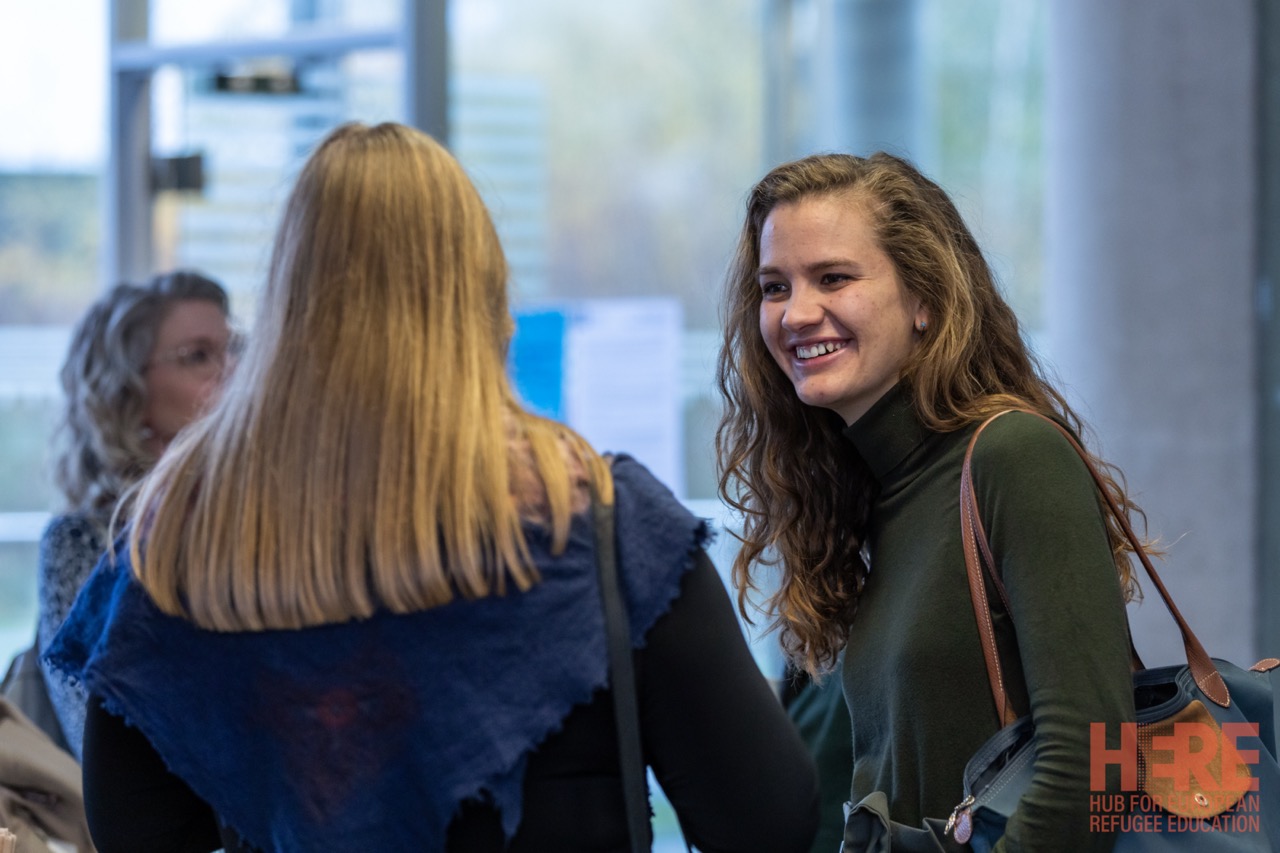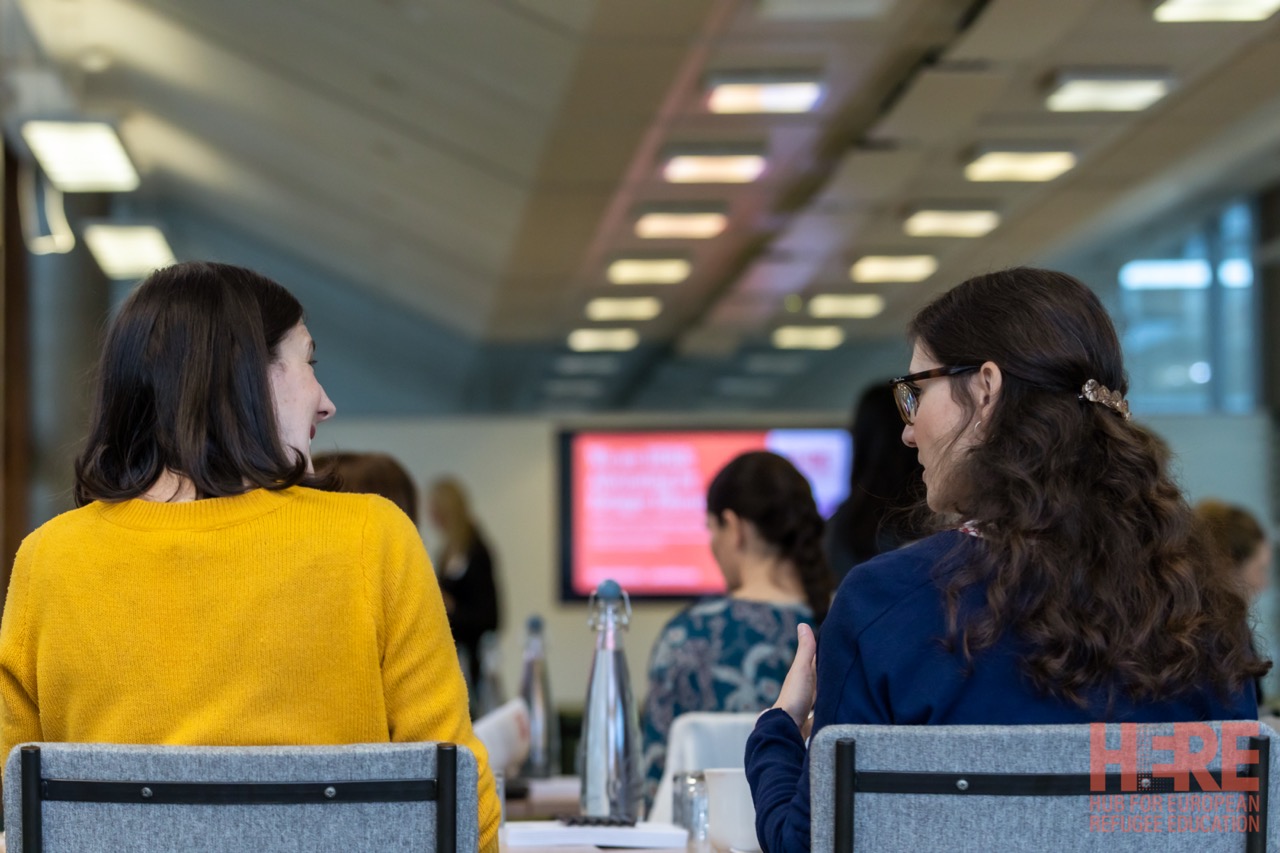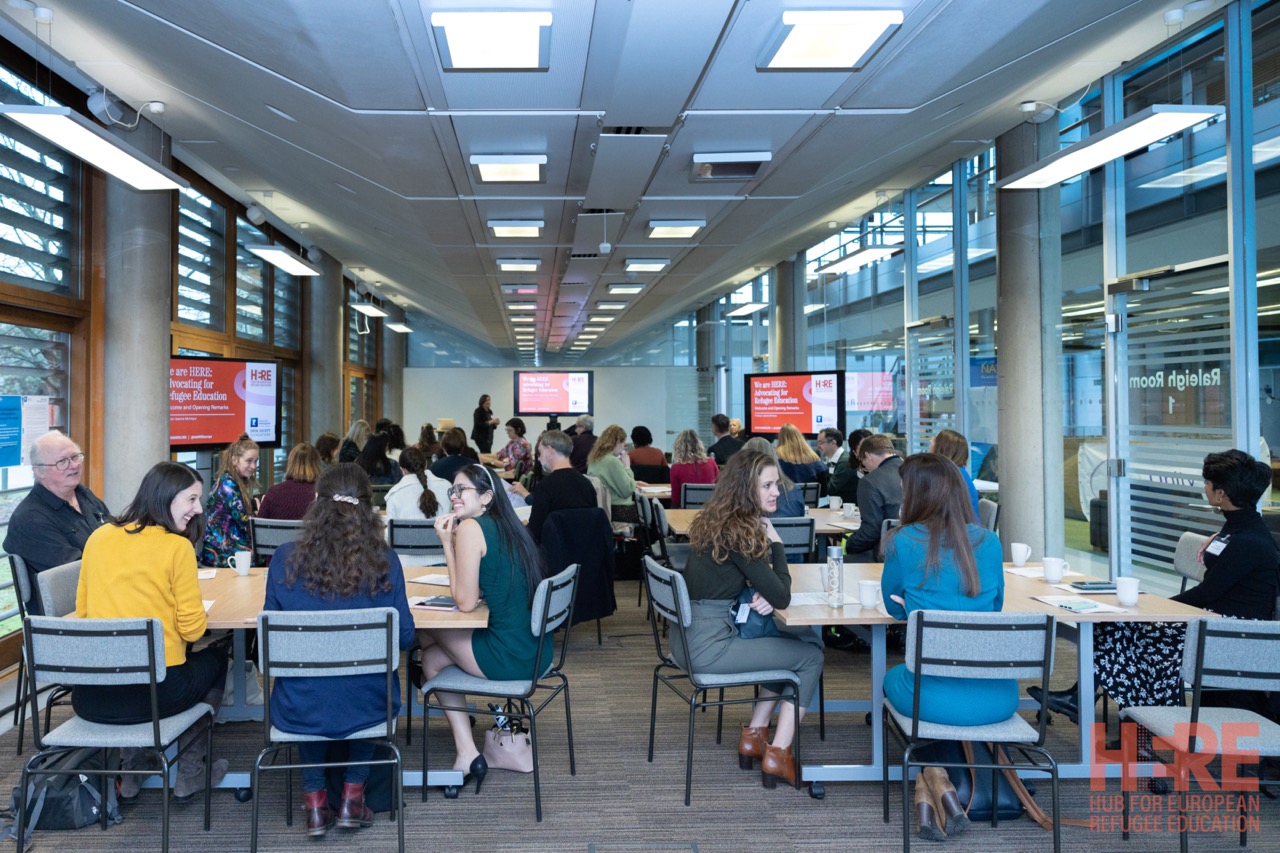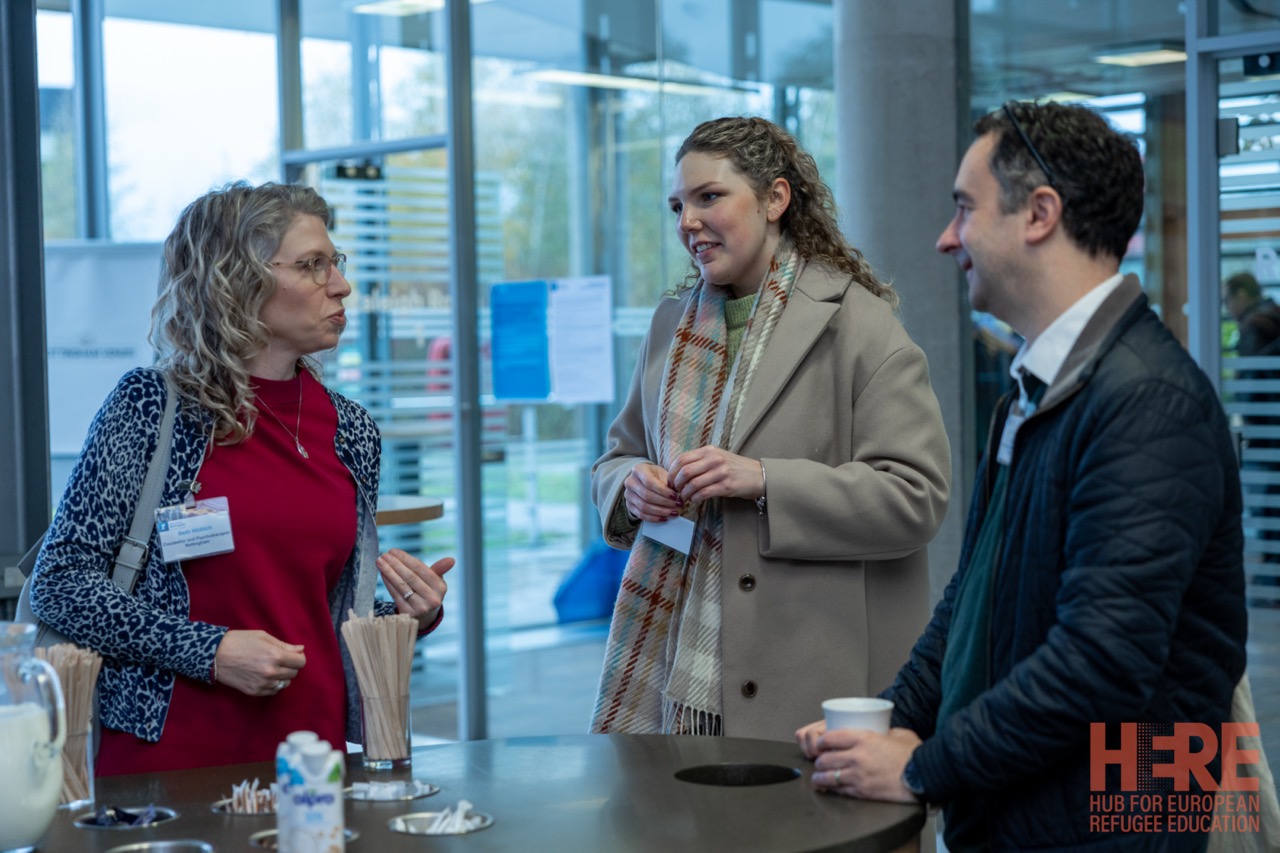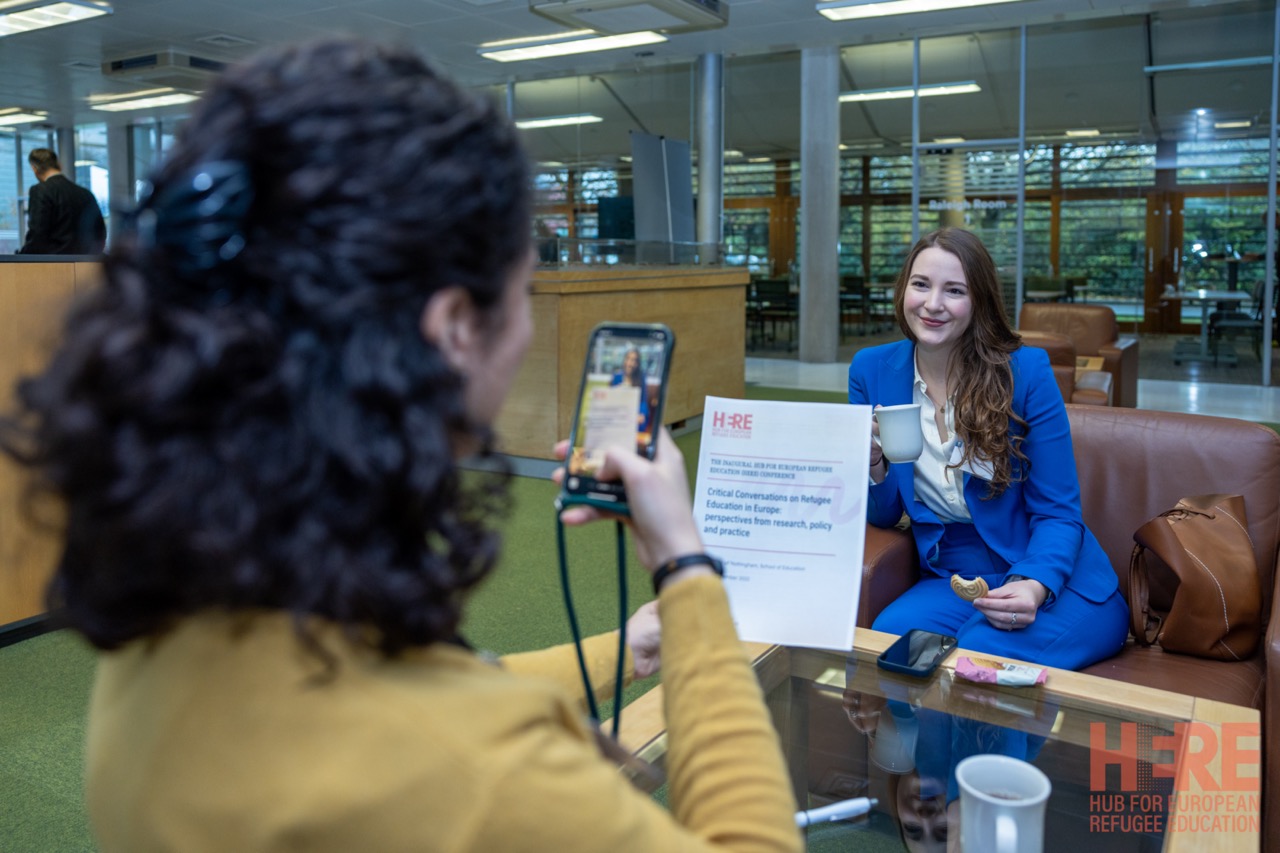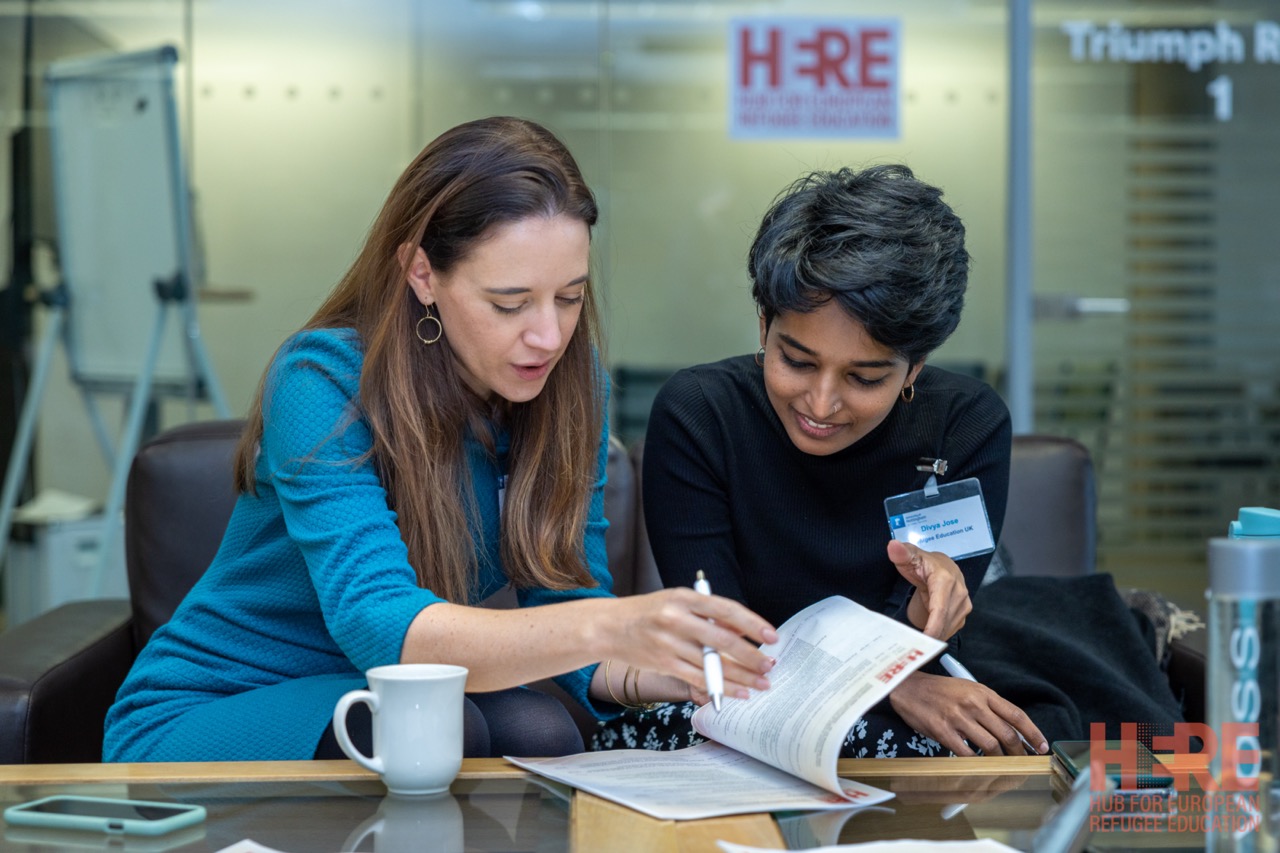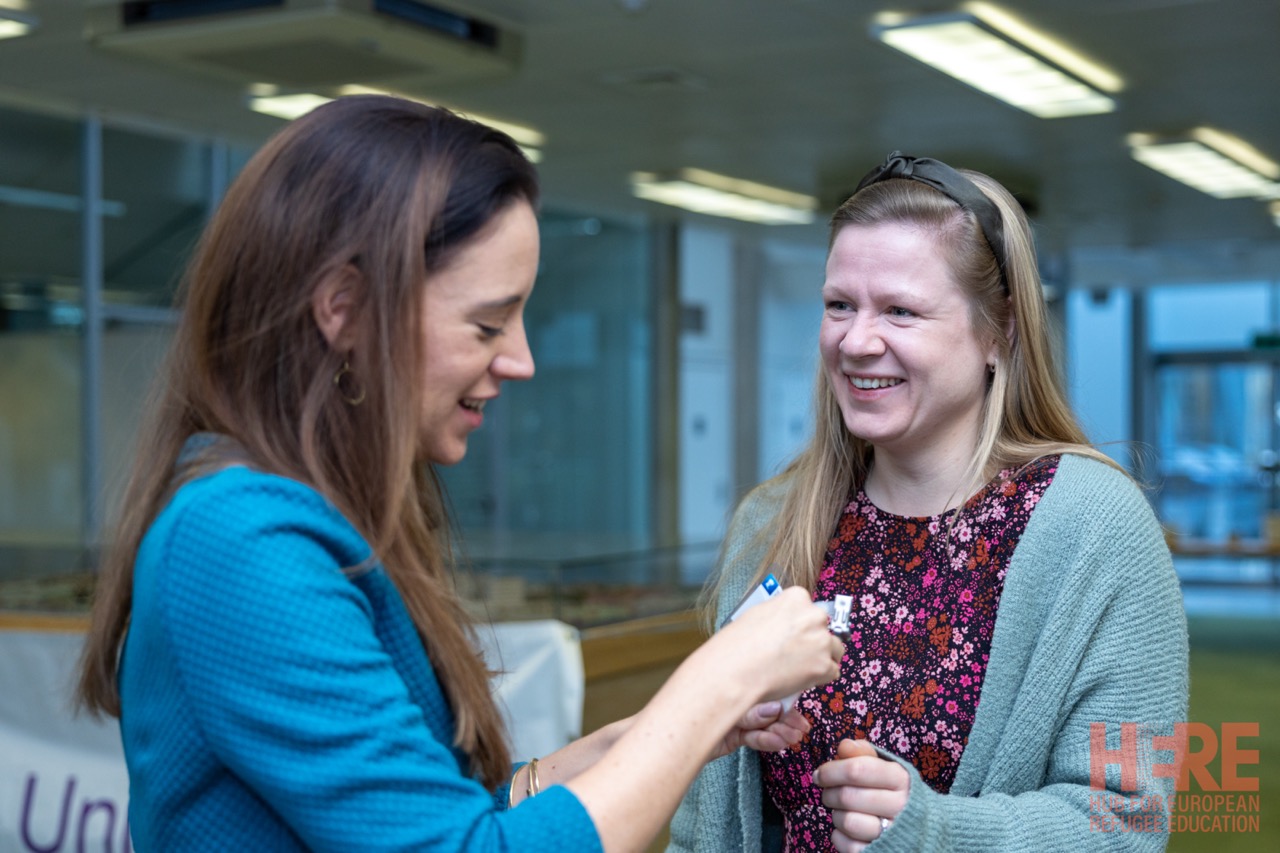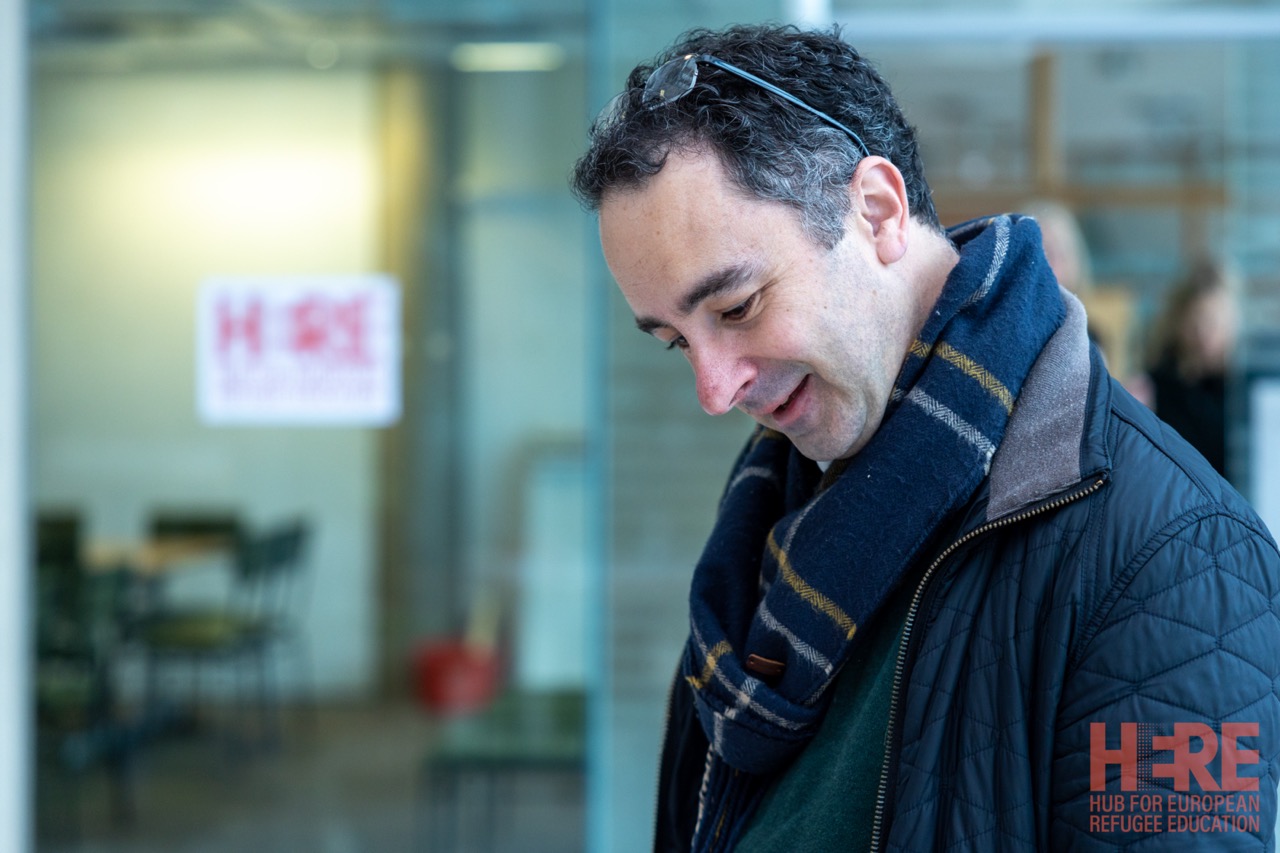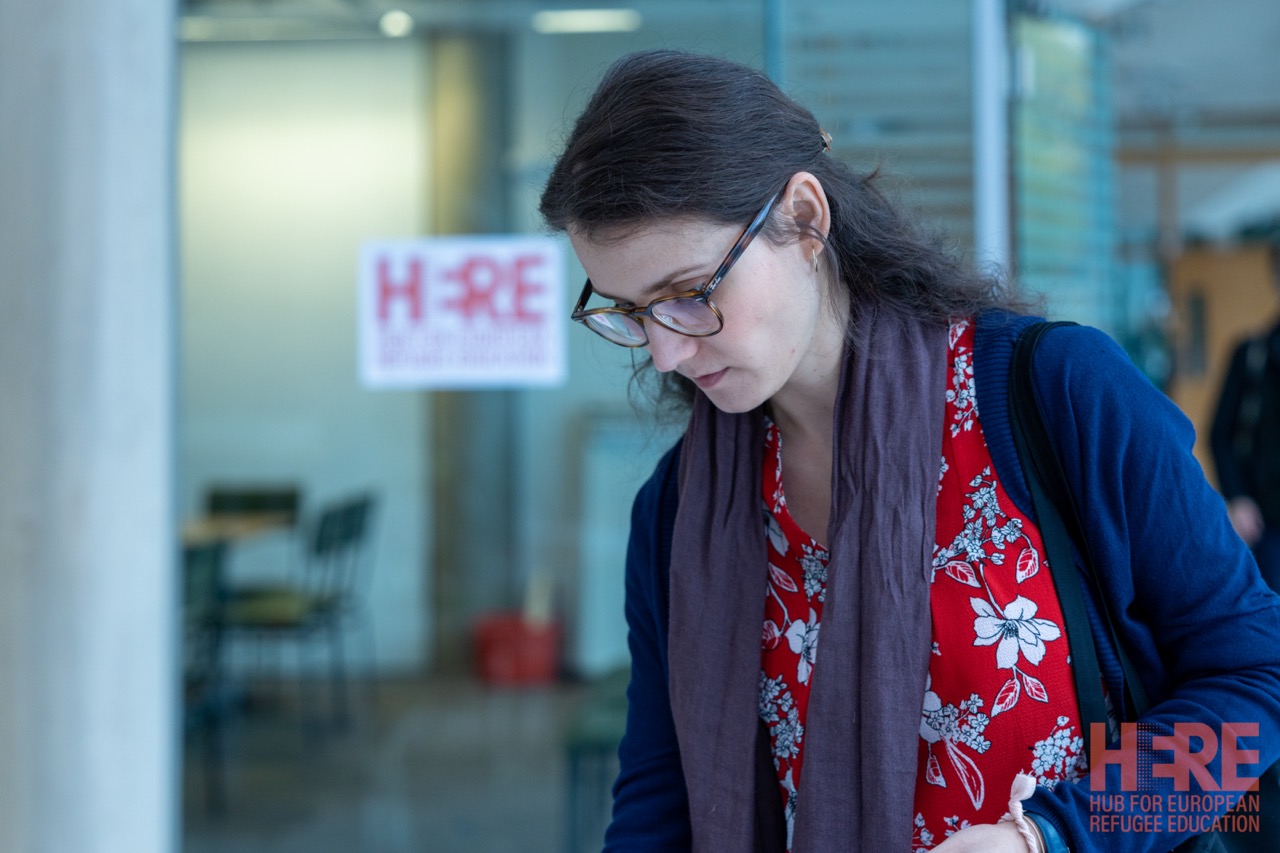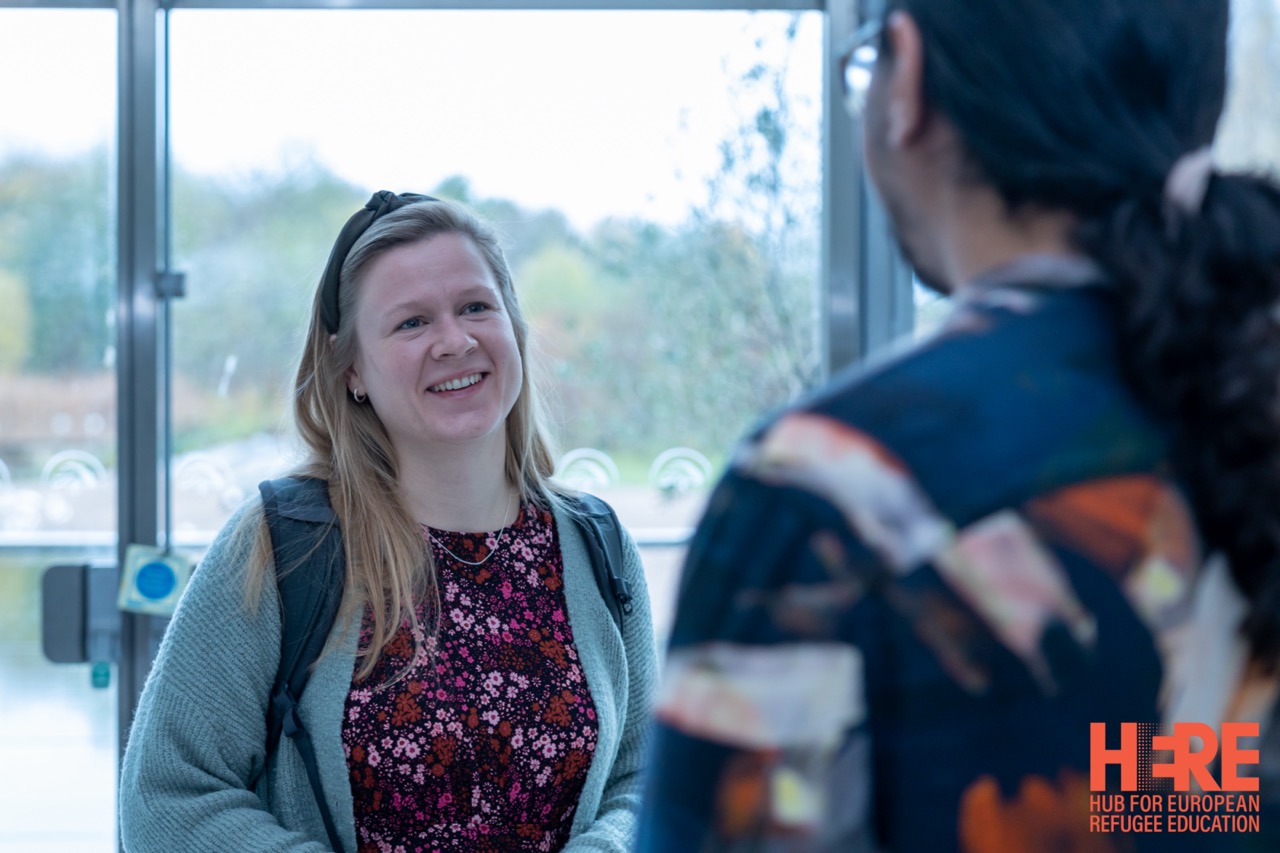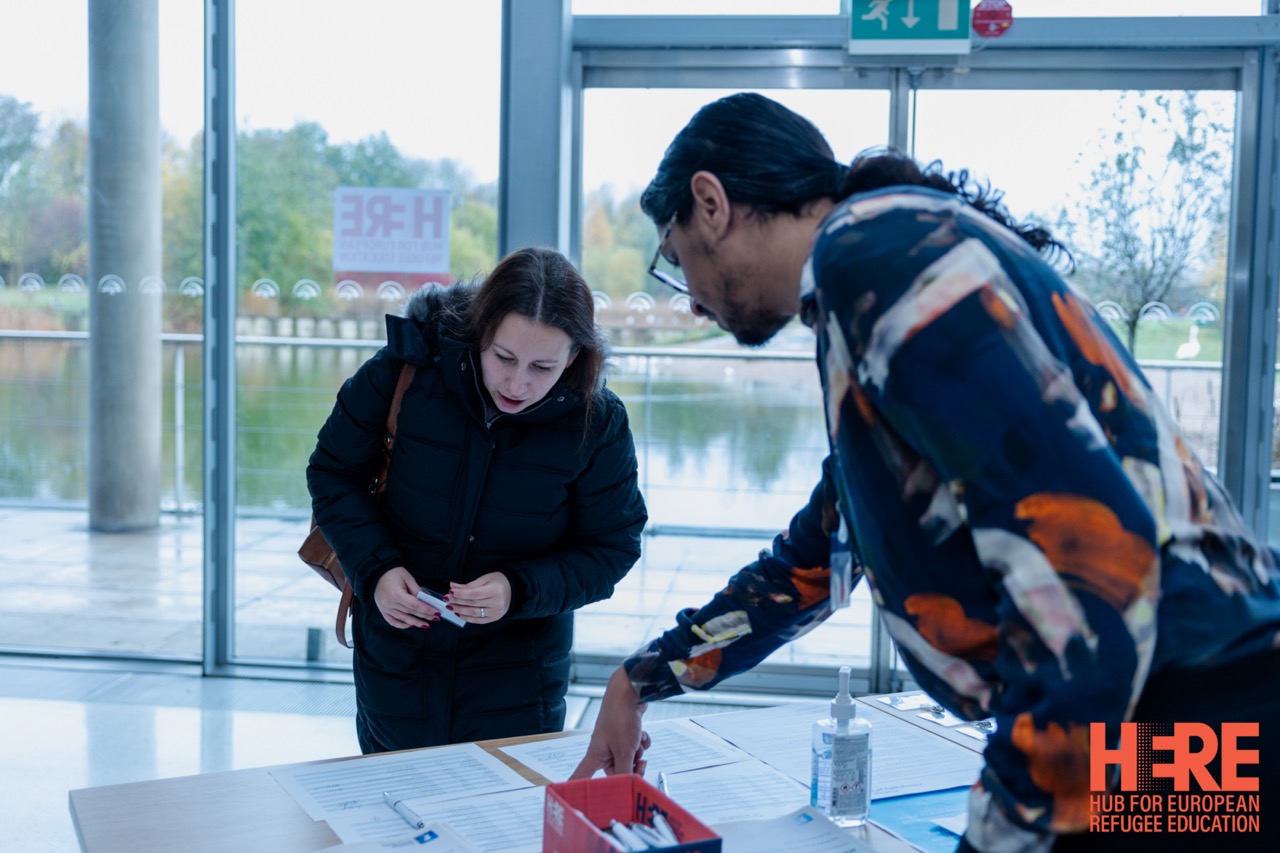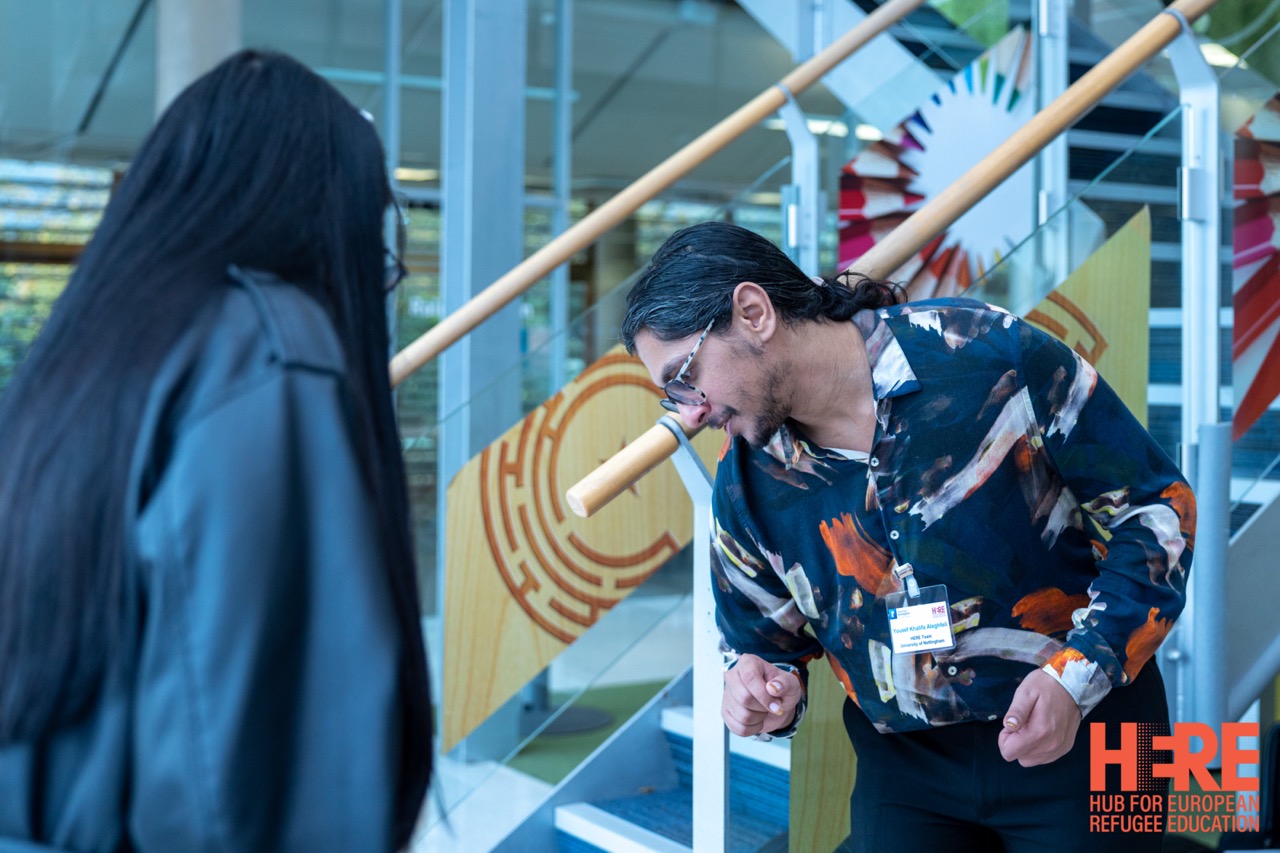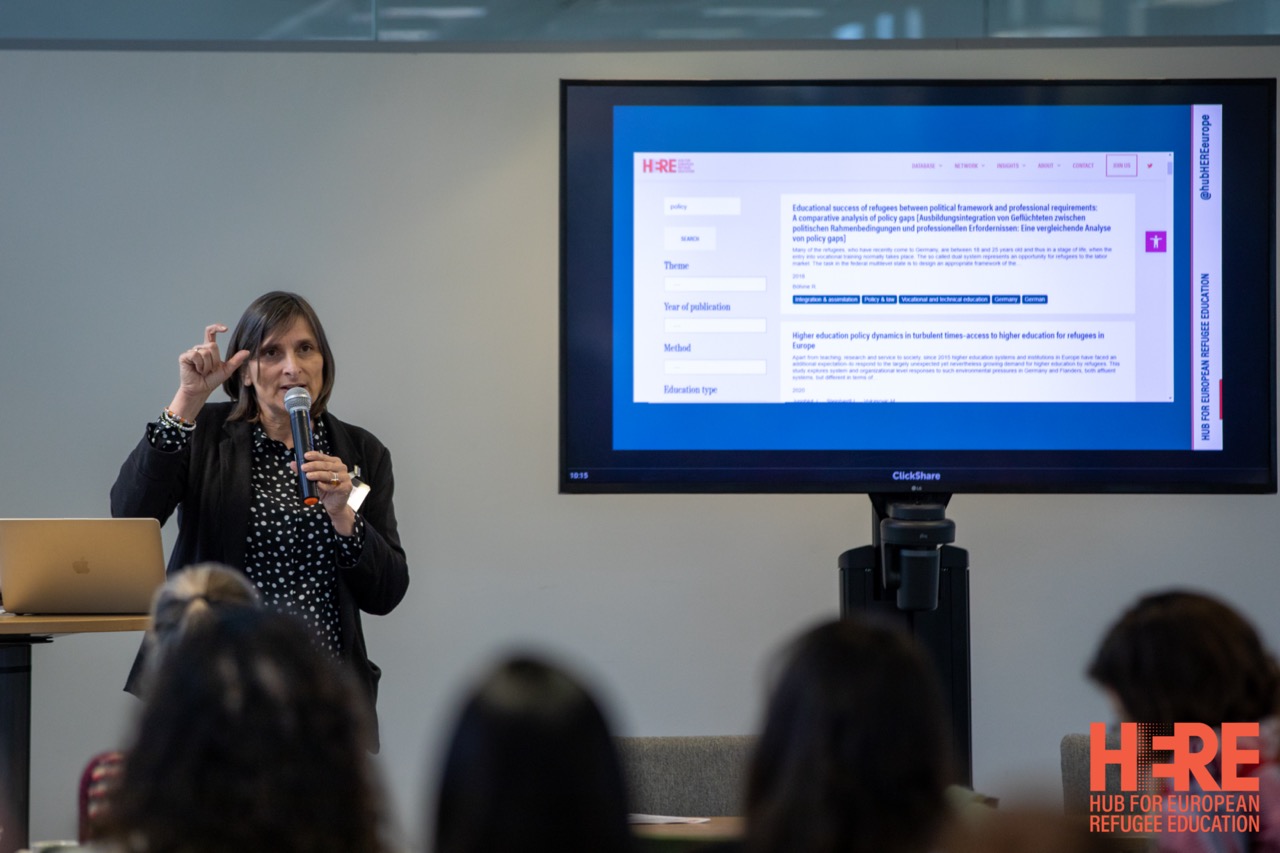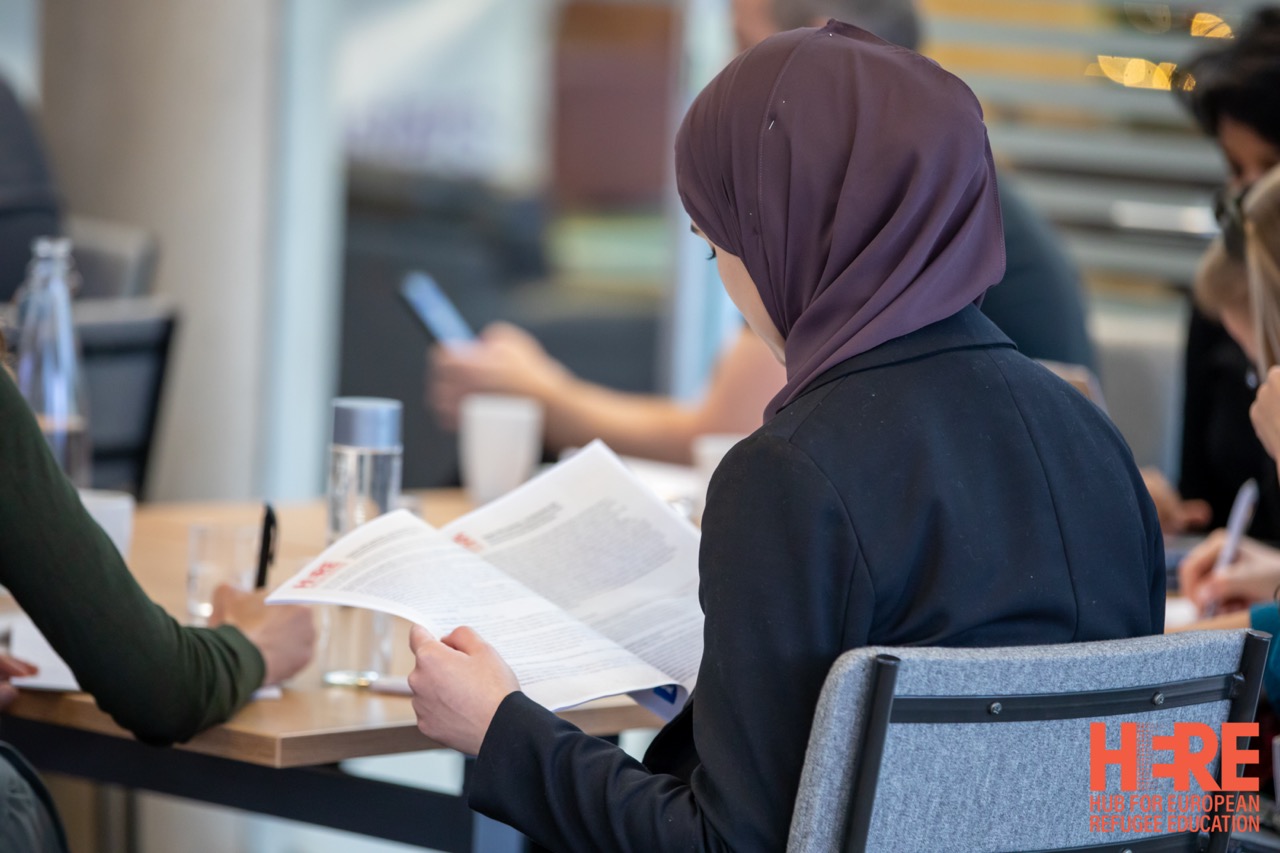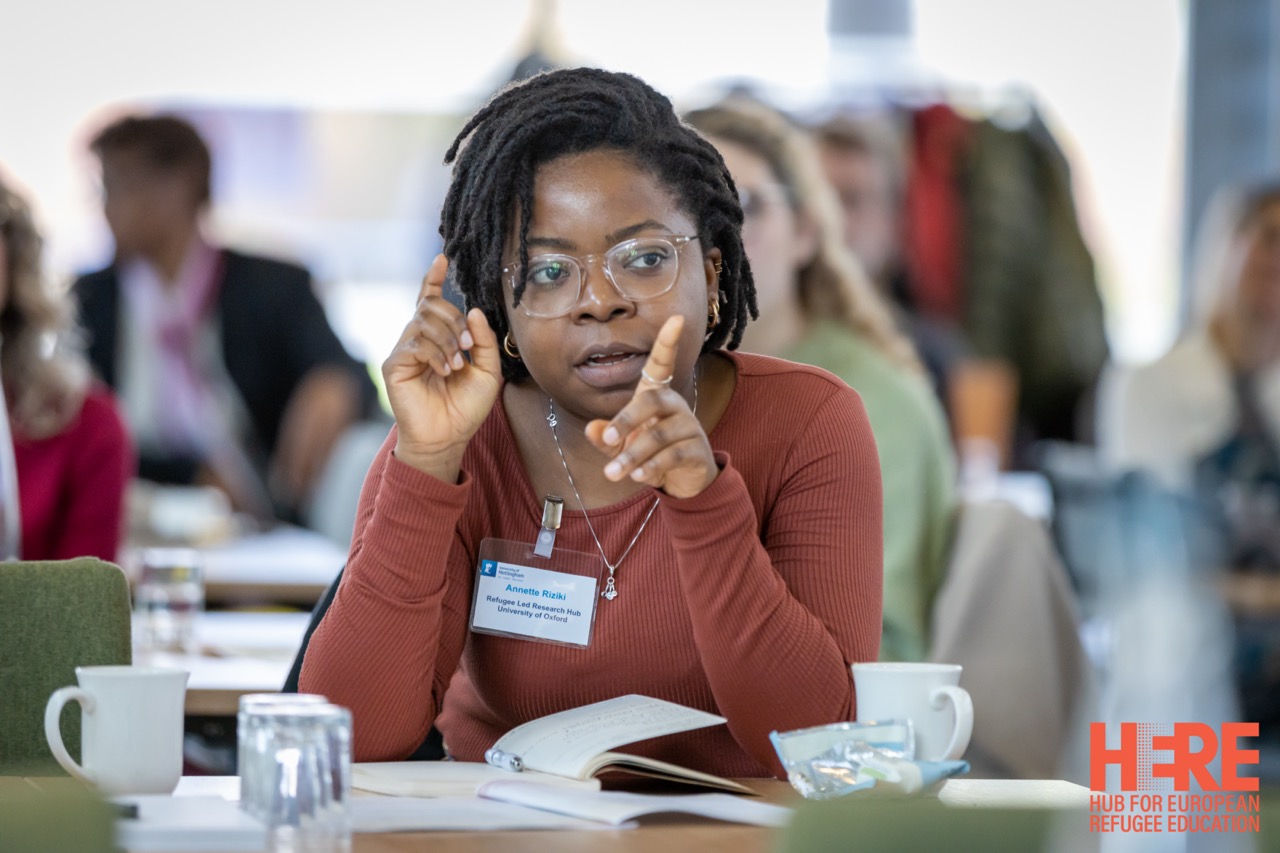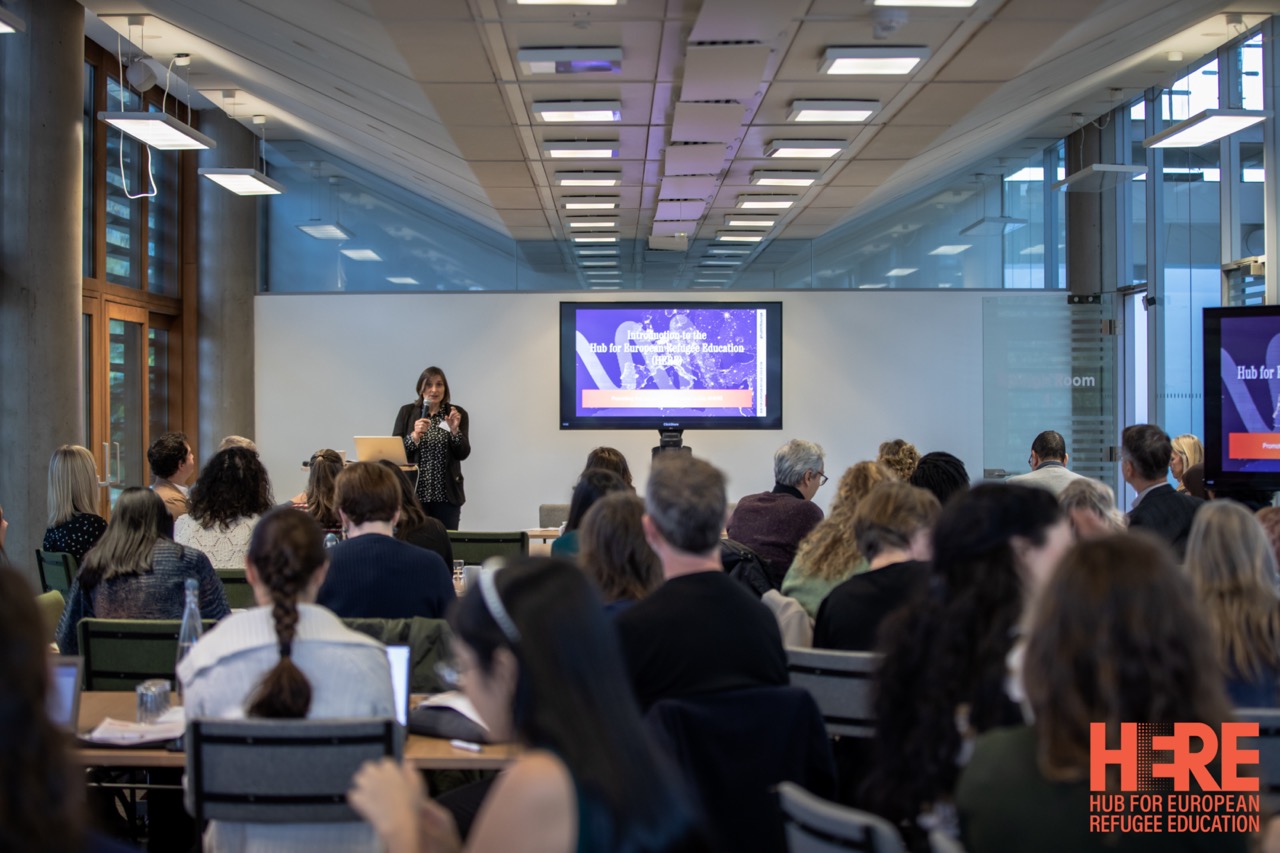Introduction
The Hub for Education for Refugees in Europe (HERE) held its inaugural conference on 22nd-23rd November 2022: a Europe-wide gathering of researchers, policymakers and practitioners involved in refugee education and committed to building sustainable educational trajectories for refugees and displaced peoples in Europe. The HERE Team would like to take this opportunity once again to acknowledge the input of all who attended what proved to be a hugely successful launch for the HERE Network.
What follows is a brief summary of the feedback provided by conference delegates, the positivity of which is both humbling and rewarding. You can download the Conference Guide, with summaries of each presentation for the benefit of those who could not attend. We will be encouraging conference delegates to develop their presentations as HERE Insights in the coming weeks and months. So, please watch this space!
Conference Guide
What was the Conference about?
The inaugural HERE Conference involved keynote speakers, invited presentations, academic papers and networking activities focusing on refugee education in Europe. The event provided opportunities for those with lived experience of forced migration to discuss their experiences and present their thoughts. There were also attendees from research, practice and policy backgrounds. One participant presenting their work provided a very positive summary of the conference:
“I though the event was very well organised. In addition to keynote speeches and paper presentations, the event provided a number of structured opportunities to discuss issues, to network, to provide feedback/suggestions for amending the Refugee convention. Perhaps more importantly, it provided the opportunity to listen to and engage with the experiences of refugees and refugee organisations.”
A total of 20 presentations took place in curated sessions within the following broad categories: Language and Wellbeing; Equality and Inclusion; Online and Remote Education; Tertiary Education; Pedagogies and Methodologies; Schools of Sanctuary. According to one academic, “Each session was thought provoking, and helped me reflect on ideas and conversations I can have with colleagues and in the practice of my work.” This is part of the purpose of HERE – to provide spaces for reflection and ongoing conversations, particularly across professional boundaries. A PhD student in attendance remarked: “I liked hearing opinions around refugee education from different viewpoints and people working in different settings/having different experiences.” For those whose work with refugees in this context is more practice orientated it was, “Really interesting to get different practitioner perspectives and knowledge [which] helped to expand my own ideas and knowledge.”
The event also provided a space for individuals with lived experience of forced migration to share their perceptions, which is vital to our understanding and to challenging prevailing discourses. A delegate who works in the field of language provision for refugees, “[was] glad there was space to hear from people with lived experience.” Representatives from the Unity Sisters in Glasgow showcased an educational resource built around a video highlighting the experiences of the ‘New Scots’, as the women involved in the group identify themselves. The final contribution of the conference was given over to a youth panel of Refugee Education UK (REUK) youth ambassadors who responded to questions that had been collected during the course of the event. For one practitioner, “Hearing the young people’s voices was particularly important and impactful.” This was seconded by an academic who thought, “The lived experience panel session was so powerful,” and wanted to say, “Thanks to all the speakers for sharing their thoughts and experiences.”
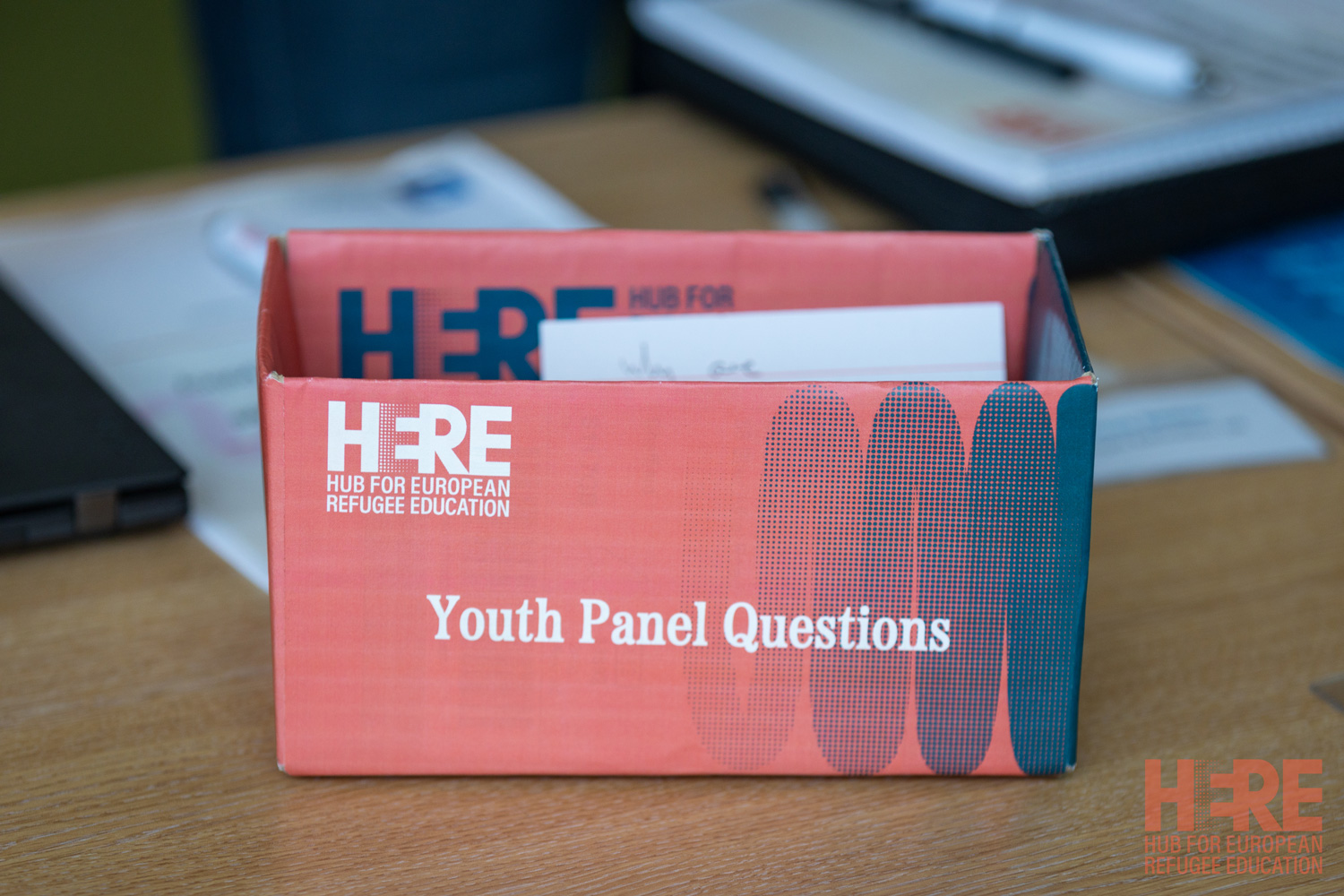
Building Critical Conversations
The event was designed around a number of opportunities for attendees to participate in ‘critical conversations’ surrounding the provocation that the limited references to education within the 1951 Refugee Convention were no longer useful or appropriate. Each presenter was asked to conclude their presentation with any thoughts they had in this regard. These were collected to form the basis for critical conversation sessions throughout the conference which, “enabled wider discussion rather than the limited discussion that is usually possible in the few minutes at the ends of each session.”
Participants thought it was, “Great to have a thread running through,” because, “having a focus/theme across the conference of article 22… provoked conversation and focus.”
One academic summed up the value of designing the conference in this way:
“It was great to interact with fellow conference participants throughout the conference in a structured way – by responding to specific questions. I think the set up worked very well as it enabled everyone to contribute in a way that was not daunting, moreover, the recurrence of the critical conversations meant that there was a common thread running through the event.”
Furthermore, it added to, “the collegiality… welcoming atmosphere and collaborative spirit,” which it is hoped will continue to feature strongly across the HERE Network as it develops. As a keynote speaker observed: “I have noticed at other conferences that PhD students or newcomers to the field can be rather isolated. This innovation ensured that didn’t happen. It also led to some wonderful and useful conversations.”
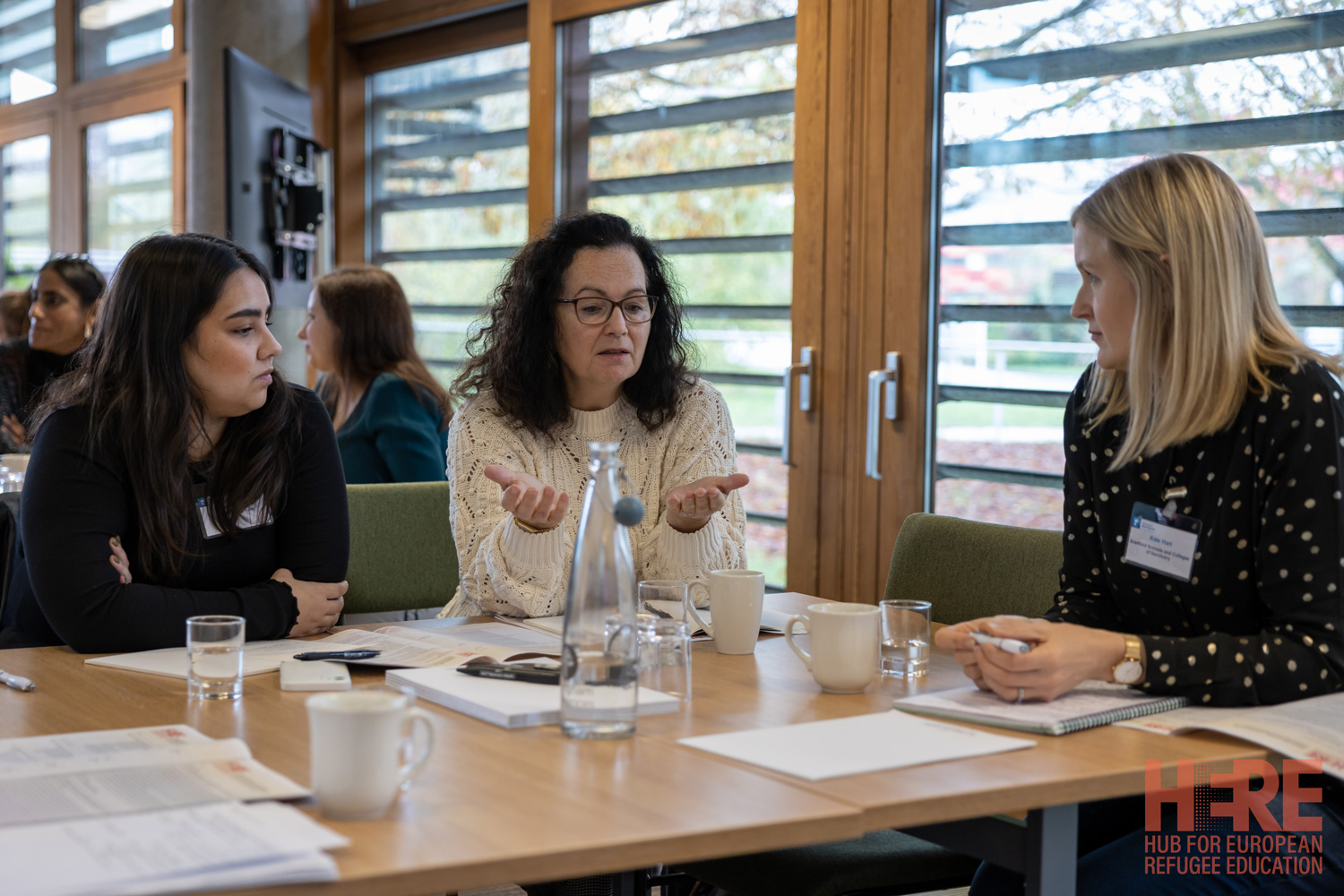
The outcome of these critical conversations is a wealth of information that the HERE Team are collating and aim to refine into some kind of practical recommendations that can be taken to policy makers. There will be further HERE Insights about such developments as well as the potential for more focused events, because, “We perhaps needed more time for those critical conversations to develop – we only really warmed up to them on day 2!”
There are, of course, improvements that can be made and participants’ suggestions about the conference have been taken on board. More time will be provided in the future, “for discussions after presentations and particularly after the youth panel.” As the project develops, other events are planned with the aim of connecting different stakeholders together and will, wherever possible, provide opportunities to “encourage collaborative work on real-world issues in refugee education.” This is, though, as much about providing a platform for others to suggest, organise and promote such occasions through membership of the HERE Network.
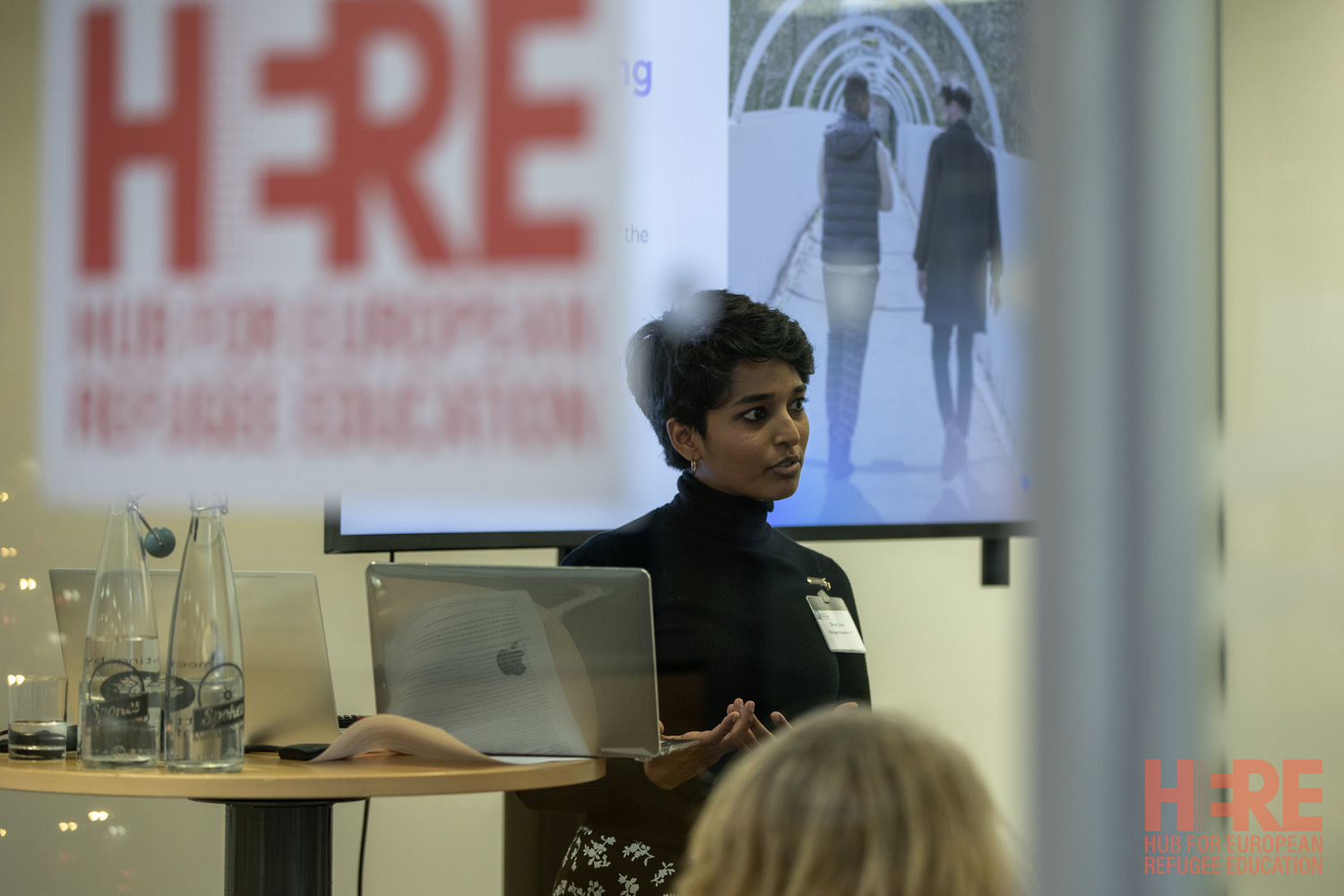
Developing the HERE Network
It is evident that for refugees themselves and for those working to support them in their educational needs and aspirations, current contexts across Europe can be very challenging. It was particularly pleasing that the conference, and hopefully the HERE Network as it develops, could celebrate the collective spirit that is driven by a passion for supporting refugees, whose experiences can at times be devastating as well as inspirational. An experienced academic in the field of refugee education felt that the conference was invaluable for, “forming really fruitful connections in terms of actions for refugees and for exploring research possibilities. At a personal level, the sense of solidarity is priceless.” And from a practitioner’s perspective, “It was inspiring to meet so many experts in this field. It was such a good opportunity to meet others in this field of work, which can often feel quite isolating.” It is very much intended for HERE to act as, “a convenor for all stakeholders and interested parties around refugee education. Offering discussion spaces to speak with others working in the field to identify opportunities for collaboration.”
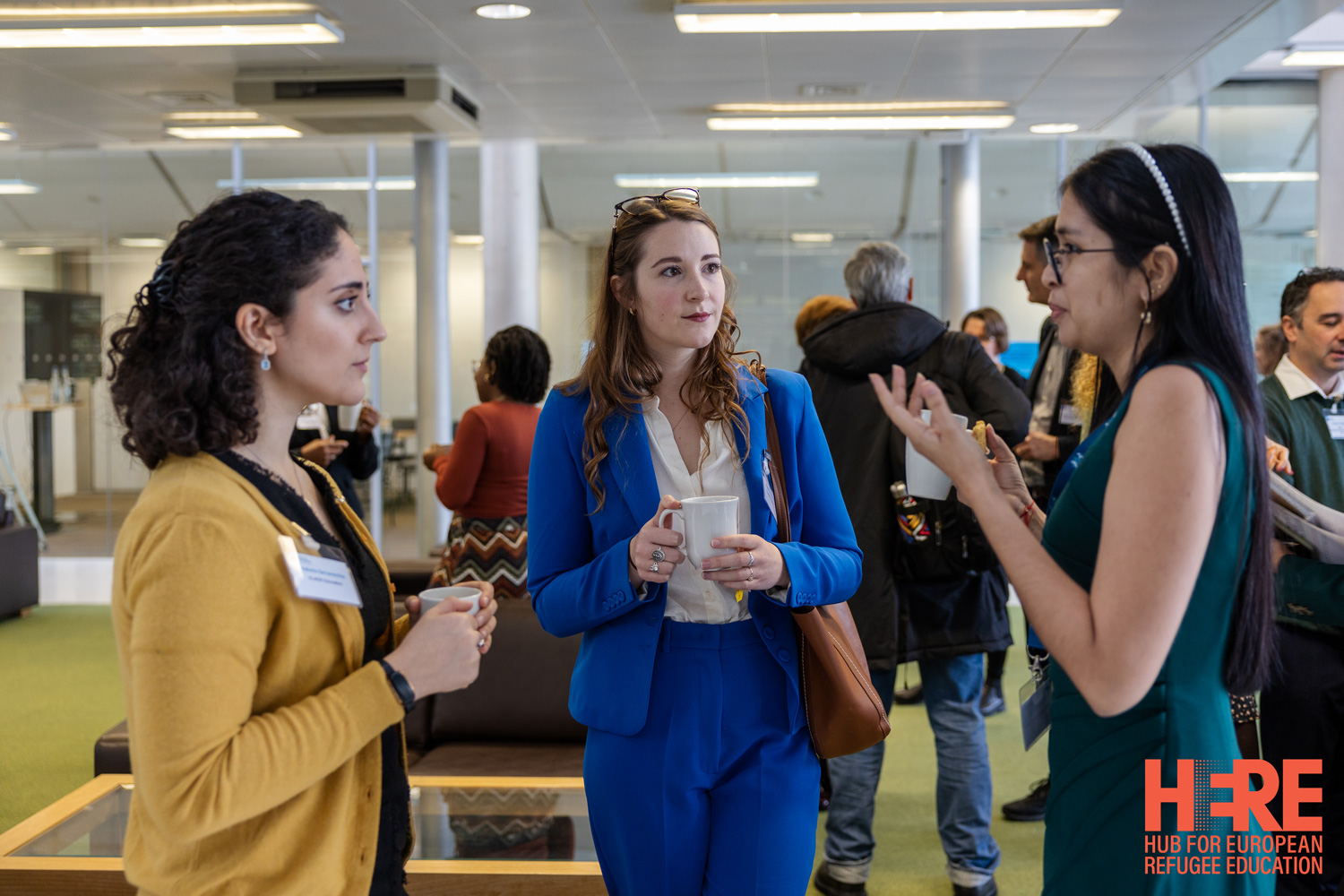
Photos From The Conference
